NEWSLETTER OF THE DELEGATION OF THE EUROPEAN UNION TO THE REPUBLIC OF MOLDOVA





Roberta Metsola, the President of European Parliament, in visit to Europe Café
A new group of Members of the European Parliament visited Europe Café in Chișinău
A Cup of Europe with the Ambassador of France in the Republic of Moldova
Young people from both banks of the Nistru river build their career in the restoration and conservation of cultural monuments
European Union supports 16 civil society development projects on both banks of the Nistru river
Beloci water mill restored with EU support
Child protection social workers trained with EU support EU4Youth: „School Garden” - from seed to fruit and back to seed
EU High Level Advisers’ Mission: nearly 200 students and pupils learned about the benefits of the teaching career
The teaching career awareness raising campaign „Good teachers, prosperous country. Choose to become a teacher” reached Bălți
22 employees of daycare and placement centres for the elderly from the Republic of Moldova trained with the support of an EU-funded project
Children with special needs in Ștefan Vodă have better rehabilitation conditions, thanks to the EU support
Over 500 Moldovan pupils have tested their professional future on the Takeover Day, organised with EU assistance
With the support of the European Union, over 16,000 citizens of the Călărași town benefit from better water supply and sanitation services
Water Supply and Sanitation in Cahul with EU and Team Europe support – work in progress
Vulnerable groups and civil society organisations supported by the European Union during the COVID-19 pandemic
With the support of the European Union, an informed and resilient civil society will be built in the region highly affected by the war in Ukraine
European Union supports the efforts of the Republic of Moldova in fighting propaganda
French Government donated twelve electric generators to hospitals in Moldova
Costing of public policy documents: comprehensive capacity building activities held in September and November 2022 with EU support
EU supports the efficient enforcement of the competition law and policy in the Republic of Moldova
The Moldovan Parliament delegation learned about the role of the Croatian Parliament during the EU accession process
Approximation of national legislation with the EU acquis – working sessions for the civil servants of the Republic of Moldova
Representatives of the Equality Council of the Republic of Moldova have benefited of an exchange of experience with Romanian institutions on antidiscrimination practices
Public presentation of the Guide for assessing and processing hate speech cases in the Republic of Moldova
Exchange of experience between Local Authorities from the Republic of Moldova and France in the Regionalisation of Local Public Services
EUBAM: Moldovan customs officers strengthened their capacities of X-ray image interpretation
EUBAM working together with Moldovan, Romanian and Ukrainian customs to handle emergency and alleviate the pressure on the border in ReniGiurgiulești-Galați area
EU High Level Advisers’ Mission: public discussions on public administration reform strategy
EU continues to support the institutional development of the Customs Service of the Republic of Moldova
The EU High Level Advisers Mission 2019 - 2022 comes to an end
Women leadership for the good governance in the Republic of Moldova –strengthened with EU assistance
The normative framework for the functioning of social canteen services in the country has been developed with the EU assistance
Training sessions on spatial data for the representatives of the Moldovan Agency for Land Relations and Cadastre
European Union awarded grants to 50 civil society organisations to improve social accountability mechanisms in 10 districts of the Republic of Moldova
Pilot session on Aid Management Platform brings transparency in aid management in Moldova one step furthe
Training course for the representatives of the Ministry of Finance on the EU Budget Support Instrument
The first international conference dedicated to the perspective of the Republic of Moldova’s accession to the Single Euro Payments Area took place in Chișinău
Women entrepreneurs from the left bank of the Nistru river launched businesses in digital and robotics with EU support
The European Union and Sweden support the launch of three social enterprises in Moldova
The Social Entrepreneurship Gala – organised with the support of the European Union and Team Europe
Business Skills Hub inaugurated in Bălți with the financial support of the European Union
Four regional Social Business Hubs have been capacitated in the promotion and development of social entrepreneurship at regional level
Public presentation of the study „Knowledge, attitudes and behaviours in the field of social entrepreneurship in the Republic of Moldova” with EU support
Moldova Support Platform: the European Investment Bank (EIB) to continue investing in Moldova
EIB Global supports reconstruction of roads with €100 million Press Tour of Small and Medium Enterprises implementing Eco-innovation
Green Economy finalises the training of RECP experts in Moldova
EU4Environment Action supports promotion of the Eco-Industrial Parks in Moldova
European Union provided new grants to four clusters and 19 businesses from Cahul and Ungheni regions Workshop on successful completion of 18 EU-funded infrastructure projects in energy efficiency and water supply and sanitation
The prospects for private sector participation in infrastructure development and financial sector development in Moldova
European Union and UNDP launch a competition of media articles on debunking myths in the energy sector
By using biomass boilers in public institutions, the gas consumption may be reduced by up to 20 million m3 of gas a year
Over 370 children expressed their artistic vision on the solutions to the energy crisis
EU and German support for Moldova in improving energy efficiency in schools and ensuring access to water and sanitation
EU – Moldova cooperation for the protection and sustainable use of the Prut and Danube waters
EU supports the sustainable use and protection of the Nistru River basin
Transboundary cooperation on the Nistru and Prut rivers between Moldova, Ukraine and Romania New EU4Climate study highlights EaP countries’ commitment to climate action at COP 27
Inhabitants of Edineț district will benefit of better drinking water quality with the EU and Team Europe support
Sustainable lifestyle: from waste management to urban mobility, promoted by EU4Environment Green Economy in Moldova
EU Commissioner for Environment, Oceans and Fisheries, Virginijus Sinkevicius, paid a first working visit to Moldova
Virginijus Sinkevičius: “Make your voice heard, push politicians for solutions to reduce damages and effects of their decisions on the environment”
EU4Moldova: Startup City Cahul: Nine entrepreneurs from the south of the country participated in the Digital Upgrade programme to develop their digital skills and learn more about innovations in business development
EU4Moldova: Startup City Cahul launched the first Tourism Accelerator in Moldova to support the digitalisation of tourism businesses
Awareness to action: developing women’s entrepreneurship in the Eastern Partnership
EU4Digital Telecom Rules activities reviewed in first meeting with EaPeReg
The Moldova LEADER IT Soft working group gathers to discuss and validate future actions on the development of the software aimed to digitalise the LEADER approach in Moldova
A trip to the digital world: 33 pupils from the south of the country discovered the technologies of Tekwill and Technical University of Moldova
The „Digital School” concept will be implemented in 25 educational institutions in the Republic of Moldova with EU support

Roberta Metsola, President of the European Parliament, visited the main EU Information Centre in the Republic of Moldova on 11 November 2022. In the Europe café premises, Roberta Metsola was expected by the Young European Ambassadors who took the chance to address questions related to the EU membership status of Moldova, energy security, digital agenda and opportunities for youth.
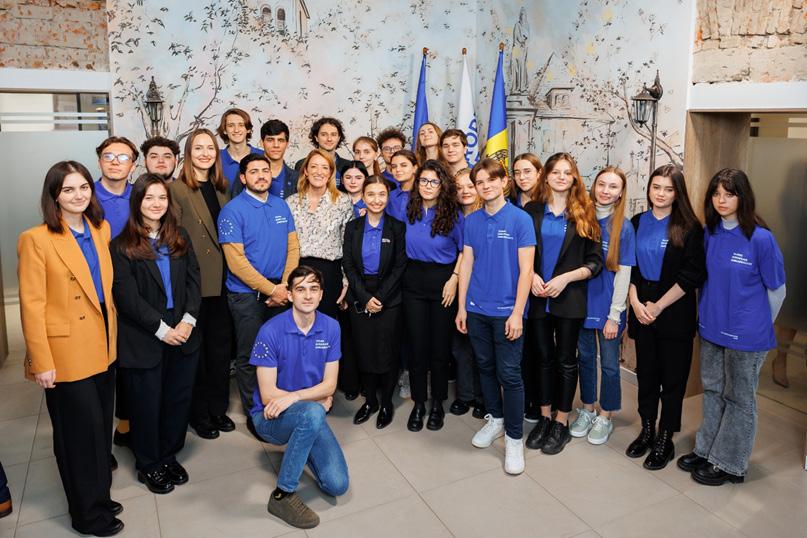
“Pretend that everybody who is in front of you doesn’t know anything about the European Union. We (European Union) need to explain more of what we do.”
Roberta Metsola, the third woman to lead the European Parliament, explained that the ”European Union needs to listen more to people’s needs”.
Roberta Metsola encouraged the Young European Ambassadors to embrace an active role in shaping the European perspectives of Moldova, to take the initiative and stand for what really matters.
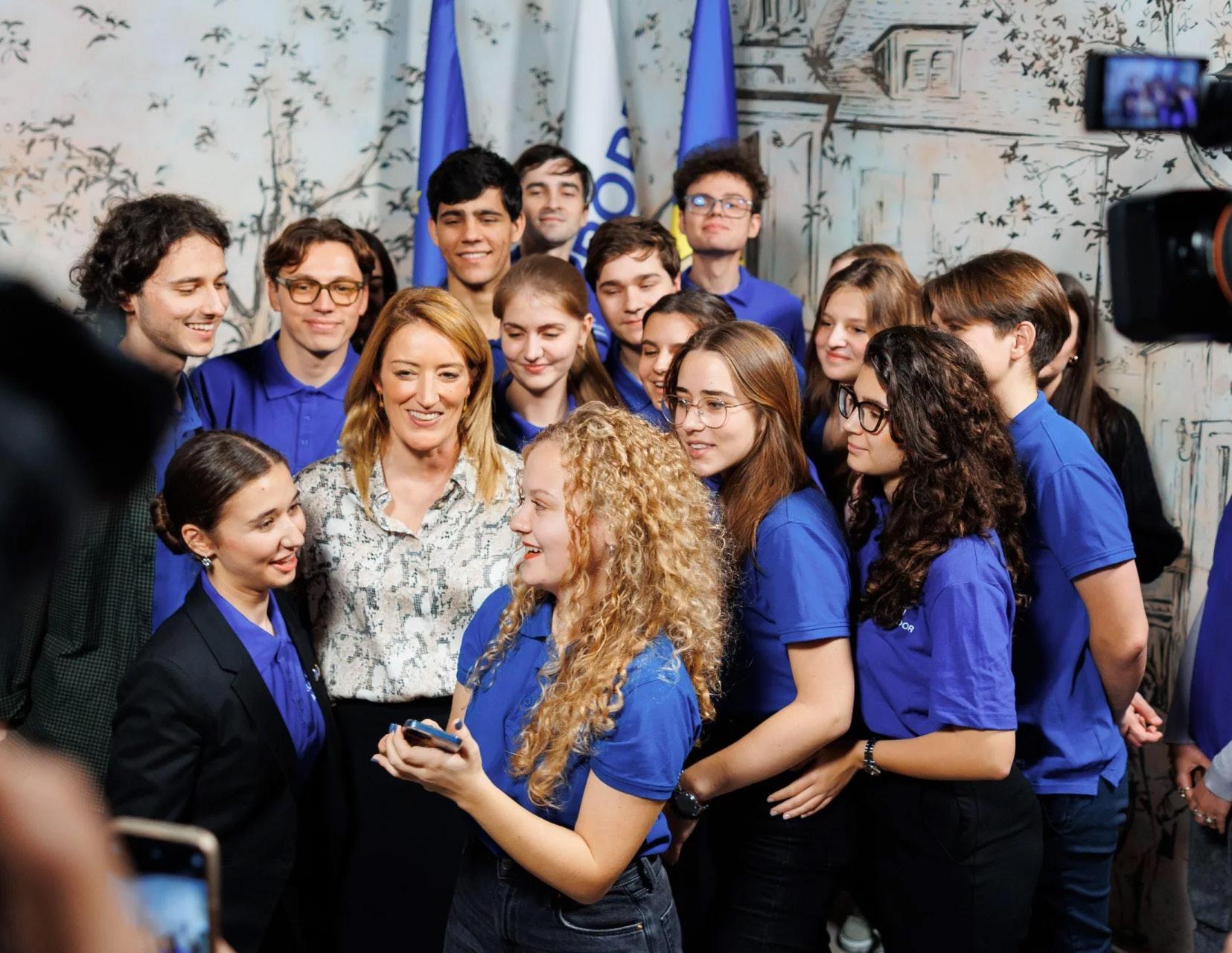
“You are not the future; you are the present. Explain all to the people who doesn’t know anything about the European Union. It is all about convincing people and presenting your arguments. Debate anything you want to debate”,
mentioned the European Parliament’s president.
Roberta Metsola shared insights about her own path, inspirational ideas and useful tips during her visit at Europe Café. She even recounted how she got connected to the politics and the challenges she faced back then.
On the occasion, Roberta Metsola offered interviews to the local media outlets.
A new group of Members of the European Parliament visited, on 12 November 2022, the most important EU Information Centre, Europe Café, to meet the Young European Ambassadors.
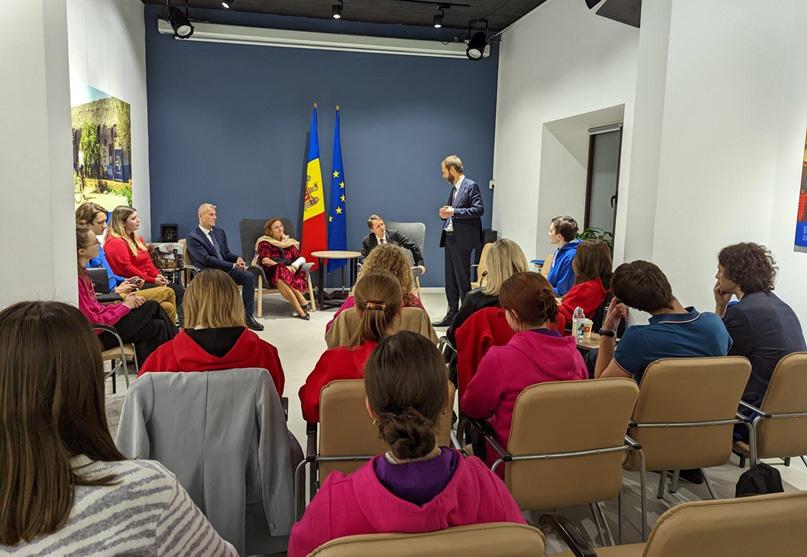
The visit was part of the 12th meeting of the EU-Moldova Parliamentary Association Committee organised in Chișinău.
Siegfried Mureșan (Romania), Maria Grapini (Romania) and Helmut Scholz (Germany), along with the EU Ambassador, Janis Mazeiks, answered even the most curious
questions about the EU membership perspective of the Republic of Moldova, regional and energy security, rule of law and democracy, digital and green transition.
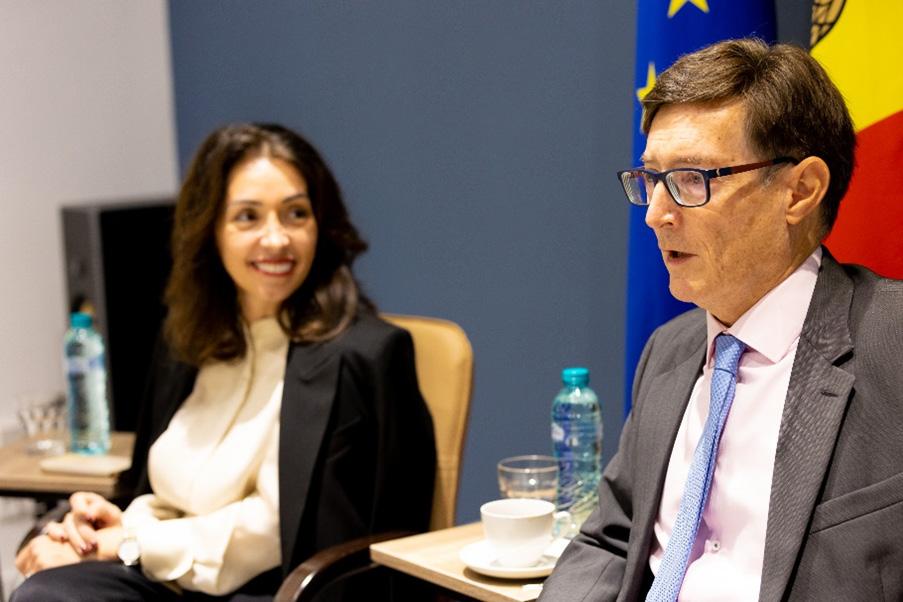
Despite heavy November rain, Europe Café received the visit of more than a dozen of young people from EU Info Centres (EUIs) and EuroClubs of Moldova State University, Moldova Academy of Economic Studies,
Moldova International Free University, “Alexei Mateevici” College, “Spiru Haret” Lyceum for “A Cup of Europe” and warm coffee with H.E. Graham Paul, Ambassador of France in the Republic of Moldova.
Ambassador Graham Paul opened the afternoon with a brief history of the European Union, the shared values of its member states and the advantages of acting together in the competitive economic and political environment in which states have more to gain as a union rather than standing alone in the face of the big political and economic players.
The participants continued with pertinent questions about France’s foreign policy, its position in relation to the Russian aggression in Ukraine and the consequences of the frozen conflict at the border of Moldova for its European path.
Discussions also touched on topics such as the Carbon Border Adjustment Mechanism and the risk of carbon leakage caused by the asymmetrical climate policies of the nonEU countries, with climate change policies that are less ambitious than those of the EU members, international trade and other diplomatic measures in addressing crisis situations.
“A Cup of Europe” is a series of events for the EUIs and EuroClubs aimed to provide concrete information about the EU Assistance to Moldova and the EU shared cultural values across its member states and first-hand experience from the EU MS Ambassadors and diplomats.
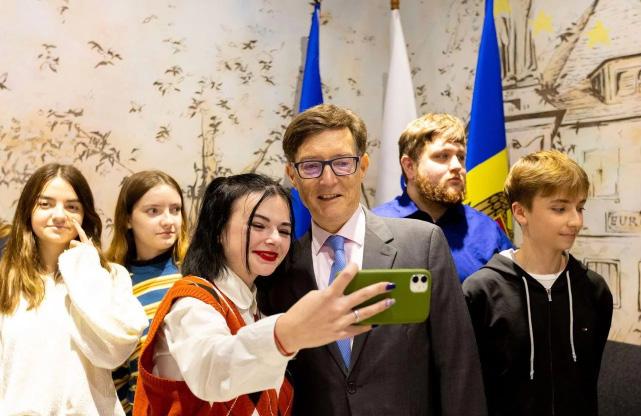
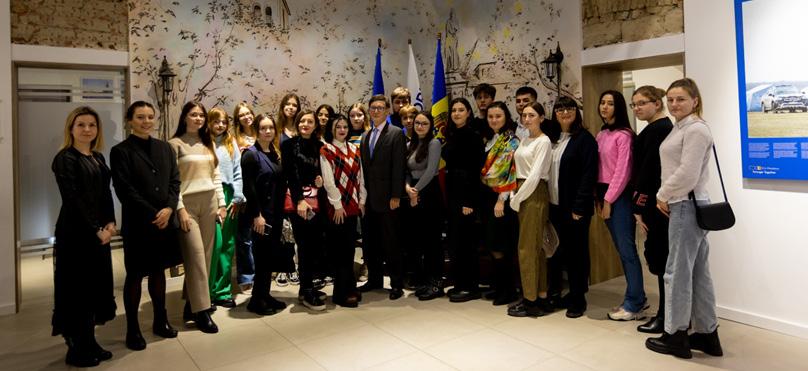
A first apprenticeship for young people in restoration and conservation works took place at the Tighina (Bender) fortress, with the financial support of the EU Confidence Building Measures Programme, implemented by UNDP Moldova.
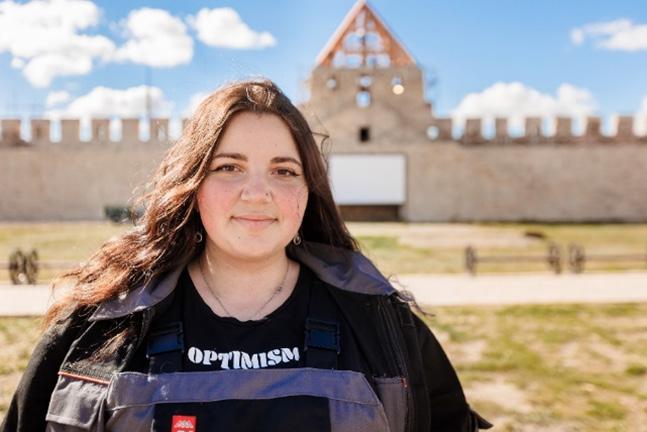
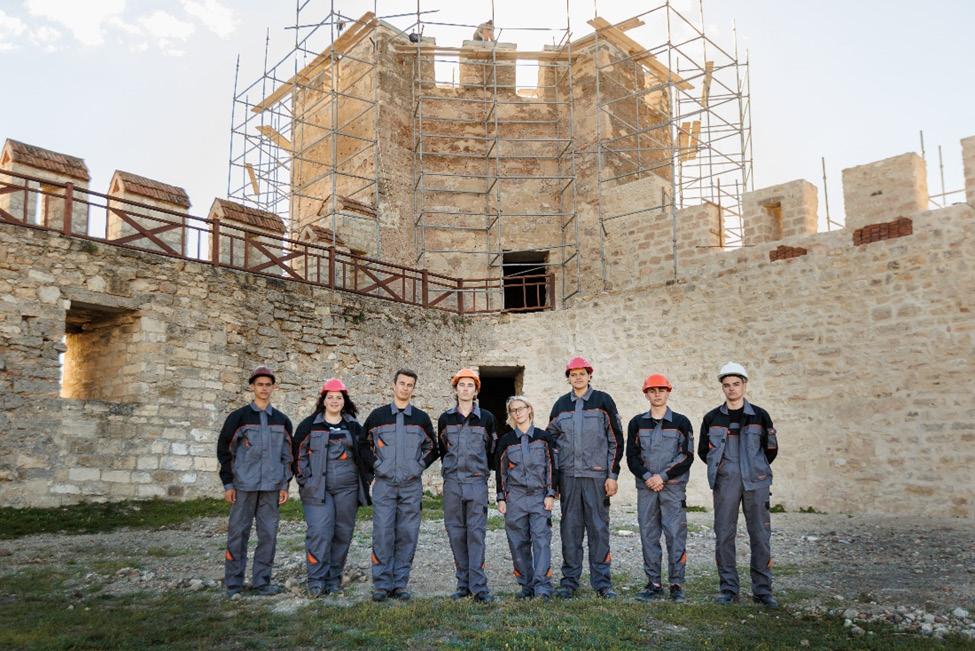
Eight young people from both banks of the Nistru River participated during 3-14 October
at a first restoration and conservation apprenticeship at the Tighina Fortress (Bender).
The programme started with an introduction to the history of the Tighina (Bender) and theoretical lectures which set the essential basis for the practical work.
“It’s very interesting to see how such constructions were made in the old days. It’s impressive. At the college we took theory courses, however participating in the restoration process is a whole different thing,” says Iulia Răilean, a student at the Centre of Excellence in Construction.

Young people from both banks of the Nistru river build their career in the restoration and conservation of cultural monumentsIulia Răilean, a student at the Center of Excellence in Construction
The young people learned from experts what practical restoration and conservation methods are used internationally. They also had the rare opportunity to participate in some of the conservation works carried out at the Tighina fortress.

“In reality, it’s much more difficult to restore a building than to build a new one. The responsibility of the site supervisor is enormous, because the building’s durability in the future will depend on the quality of the works carried out. This way we can preserve history and our descendants will be able to admire buildings, constructions made centuries ago,”
says

Ruslan Amoașii, a student at the Centre of Excellence in Construction.
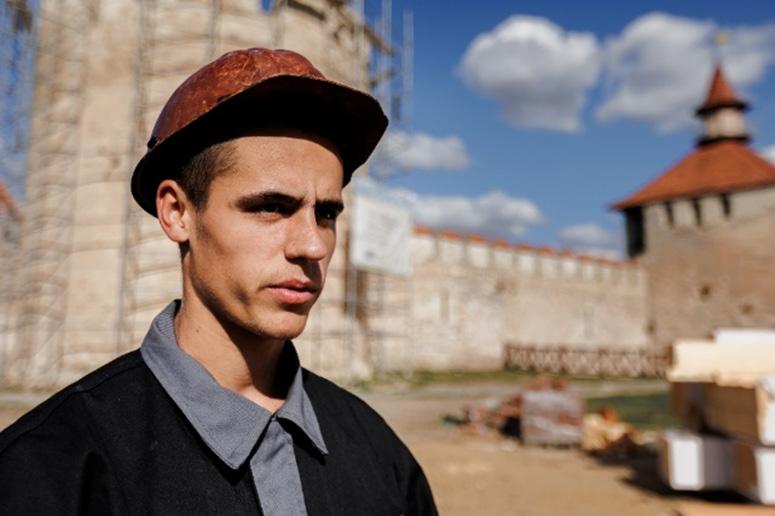
about three metres. It’s curious to find out how the passageways and tunnels were built,” says Alexandra Codrul, a student at Tiraspol Construction College.
The future restoration and conservation specialists, are eager to save the cultural heritage on both banks of the Nistru river.
“We teamed up with colleagues from Chișinău, so this apprenticeship was a unique experience. We learned about engineering curiosities and how this fortress was built in the old days. Analysing the fortress’s architecture, you get an idea not only of how the fortress was designed and built, but also of the way our ancestors were thinking. The thickness of the fortress walls is incredible:
Over the course of two weeks, the students were involved in masonry restoration work, using the same types of local building materials used in the fortress construction – observing, in particular, their chemical and structural composition, for a good bond between the existing masonry. At the same time, they learned about the roofing of a tower, where wood was used and fixed to the masonry wall by metal elements.
“I live in Tighina and I remember seeing the fortress in ruins. Perhaps not everyone knows about and understands the grandeur of the restoration works that are now being carried out at the fortress – this is absolutely unlike anything that has ever been done to the fortress. The specialists show us all the drawings, they practically demonstrate various restoration procedures, so that in the future we could become restoration specialists and we could even participate in the restoration of other historical sites in Moldova, as there are other fortresses, manor houses or other valuable historical buildings that deserve attention. It is important to pass
on this knowledge to the younger generation, as this is the only way to save our historical cultural heritage,”
says Alexander Subotin, a student at the Polytechnic College of Tighina (Bender).

Between 2017 and 2019, the EU twinning project “Support for the promotion of cultural heritage in the Republic of Moldova through its preservation and protection” was carried out, with the participation of two teachers from the Centre of Excellence in Construction. Inspired by the exchange of experience, they proposed to modify the curriculum.
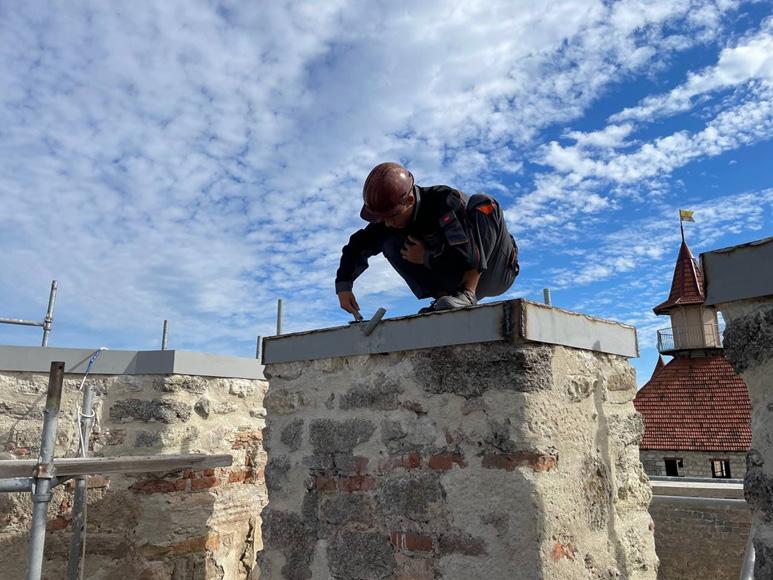
Thus, a theoretical course on the restoration and conservation of monuments was included in the curriculum of the Construction and Operation of Buildings and Structures. The apprenticeship organised at the initiative of the EU Confidence Building Measures Programme, implemented by UNDP, made the participating students more interested in the field of restoration of historical monuments.
The students would like to get more involved in the restoration projects in the future. In Moldova, to become a specialist in restoration and conservation of architectural
The EU Confidence Building Measures Programme, implemented by UNDP Moldova, carries out the restoration and conservation of 12 cultural-historical sites on both banks of the Nistru river, including two major buildings: the Chișinău Circus and the Tighina (Bender) Fortress. The programme contributes to building trust between people on both sides of the Nistru river by involving
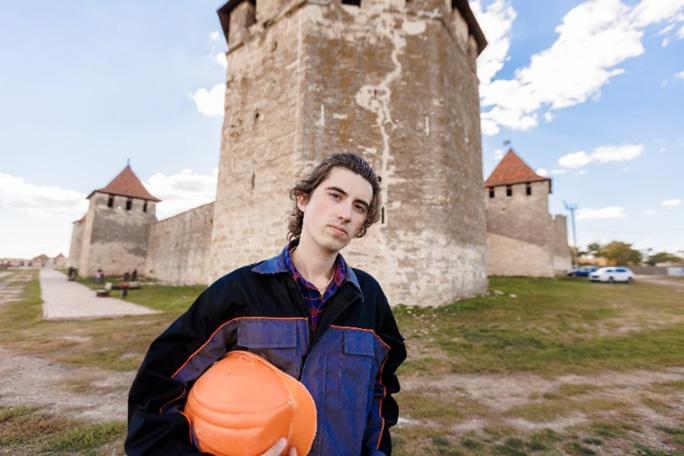
Sixteen civil society development projects on both banks of the Nistru benefitting 30,000 people will be funded by the European Union under the Confidence Building Measures Programme implemented by UNDP.
The total value of these projects is more than €290,000. The initiatives were selected through an open competition, where 90 applications were submitted.
“The 16 small grants that we are awarding today will produce positive impact on approximately 30,000 people from both banks of the Nistru river for conducting activities related to education, sports, health, environment, and culture. Just as an example, the awarded projects include communication campaigns to promote international mobility opportunities for the youth, bottom-up initiatives to act on environmental issues like the poaching on the Nistru, activities for active aging of the senior population of the region, festival and events to promote material and immaterial cultural heritage. Only in the last four years (from 2019 to 2022), the EU and UNDP have supported more than 80 civil
society partnerships to implement activities to improve cross-river collaboration,” said the Ambassador of European Union in the Republic of Moldova, Jānis Mažeiks at the grant certificate awarding event, conducted on 15 November 2022.
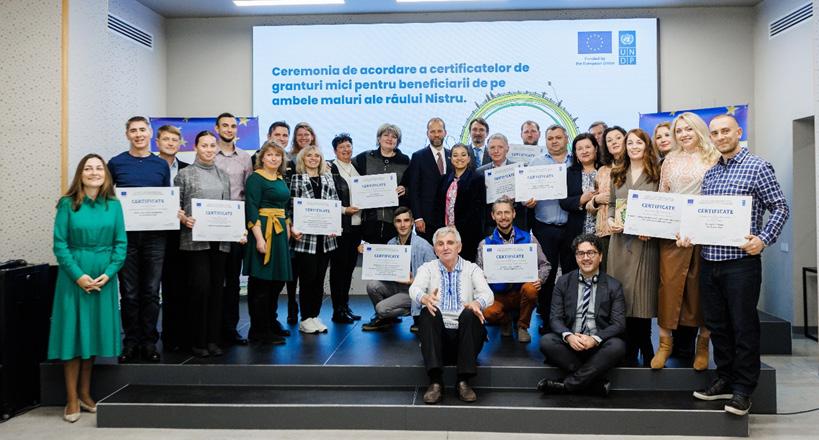
The supported projects address specific needs and local problems through collaboration between the two banks of the Nistru River in the fields of environment, education, health, culture, sport:
» Overcoming language barriers: 25 CSO representatives from both banks of the Nistru river will learn Romanian up to B1 level;
» Development of protected natural areas on both banks of the Nistru river and promotion of ecotourism principles by creating three routes in Țîpova, Saharna and Iagorlîc natural reserves;
» Fostering the development of technical and communication skills, creativity and curiosity in education through innovative techniques, such as virtual reality. Twenty teachers from both sides of the river will be trained how to use these techniques, facilitating learning and understanding of complex concepts for at least 2,000 pupils in the first phase;
» Climbing for all: a mobile climbing wall will be set up for use at sports events in the region as well as festivals, concerts and exhibitions;
» Protecting women’s sexual and reproductive health. Thirty health workers from eight communities will be trained and will provide support to nursery schools on both sides of the Nistru river.
Through its work, the Confidence Building Measures Programme, funded by the European Union and implemented by UNDP, contributes to building trust between the people on both sides of the Nistru river by involving them in joint development projects. The programme was launched in 2009 and the sectoral platforms were created in 2017 as a result of good cooperation between NGOs on both banks.
A water mill dating from the late 19th century has been restored with the support of the EU Confidence Building Measures Programme, implemented by UNDP Moldova. Selected through a public competition conducted by

the EU and UNDP in 2020, the mill is one of the 10 cultural historical sites on both banks of the Nistru river that benefit from restoration and conservation works.
While there are only ruins of water mills left in Moldova, the longstanding Beloci mill is still holding by the Beloci river. This is the biggest mill in the region, which has been preserved fairly well over the years. When it was in operation, the Beloci water mill produced several types of flour.
“Last time the mill was running was in 2000, when because of the frosts we had no power, no heat, not even water. That is why we put the mill into operation to produce flour. Today, if we put enough effort and resources into it,
it could be restored both architecturally and operationally. This is what we intend to do,” says Alexander
Maleandra, owner of the water mill.The construction of the Beloci mill was started by a villager, then after it had been bought by a Polish manufacturer, the works continued and were completed. The mill's equipment was brought from Zürich, Switzerland; it remains in its original form, but needs repair and parts’ replacement to make the mill operational again.
“The mill is crafted of a wooden frame, which basically holds the entire construction. The real difficulty was to replace the basic elements and restore them to their previous condition. We follow all the rules of restoration, i.e. the wood that was used was cut in the same way and we tried to use the same joint elements that were used before,”
says Iurii Krikliveț, deputy director of the construction company.
Thanks to restoration and conservation works, the mill will be protected from adverse weather conditions and will last for at least another 20-30 years. The area around the mill, by the Beloci river, has also been landscaped.
“We could attract tourists to come here. The mill is intriguing, since it was built without any metal or cement, any nails, just stone on stone. For that period, it's a great construction. The original equipment is still in place and serves as museum exhibits,” says Alexander Maleandra, the owner of the water mill.
The Beloci water mill was restored thanks to the financial support provided by the European Union as part of Confidence Building Measures Programme implemented by UNDP. The programme contributes to building trust between the people on both banks of the Nistru river by involving them in joint development projects.
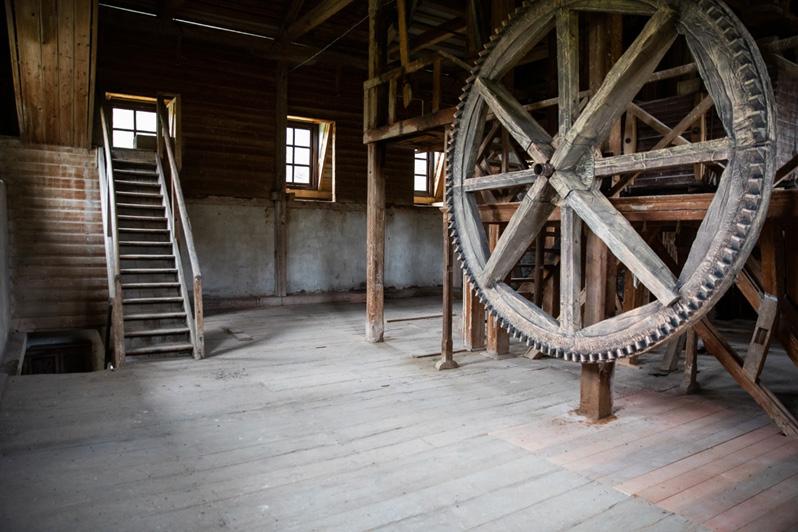
In the framework of the HOPE Project `Holistic approach to child protection in Moldova`, implemented by CCF Moldova and funded by the European Union, the Austrian Development Agency and Caritas Austria, social workers in child protection from the municipality of Chișinău were trained in the field of `Preventing and combating violence against children`.
Mariana Iosob, shared her experience as social worker in Chișinău municipality.
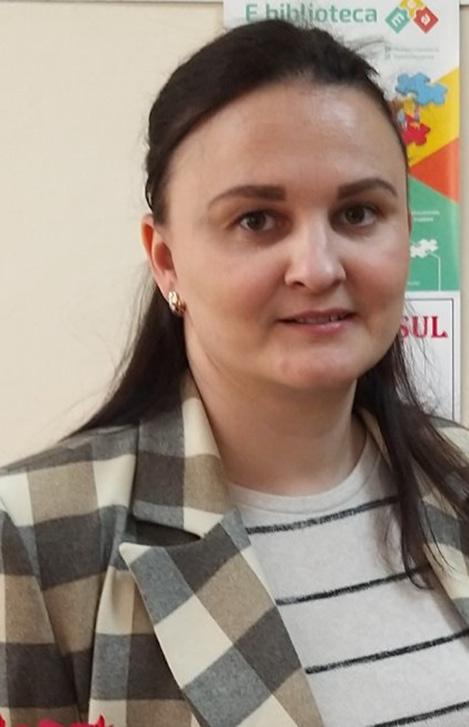
It was a period with a very high psychological pressure, the energy crisis, the flow of refugees due to the war, rising cost of living - all led to the fact that people could not cope the increased number of beneficiaries in all services, both at the local and national level. We had new beneficiaries - the refugeesand they need help, and more and more local families are facing problems.
Experience helped me the most. We have acquired a kind of immunity, in face of bureaucracy and the fact that we are asked for things in the short term no longer scare us. We strive to help people.
We are supported through supervision by the child protection department and CCF Moldova.
Tell about a successful case that makes you proud of your work.
At the end of last year, we reintegrated a 4-yearold little girl into her aunt's family. We are still monitoring the case. It was not easy, but today I see the child at home more positive, happier.
At first the little girl was withdrawn, she didn't talk to anyone, she didn't interact with us even when we visited her at home. She has now become a child like any other. Teachers told us at kindergarten that she didn't know how to hold a spoon or speak. Now the child greets us, hugs us.
For more information about CCF Moldova, please access
https://ccfmoldova.org/proiecte-derulare
After four years of implementation of the "School Garden" project, eight educational institutions in the Republic of Moldova benefit today from gardens equipped with modern equipment. In these gardens are applied principles of ecological agriculture and social entrepreneurship, thus ensuring

a safe environment and a healthy food regime for students, teachers as well as communities. All this was possible with the financial support of the European Union, through the EU4Youth program, and cofinancing by the International Green Cross during the years 2018-2022.
"In December we completed the first stage of the project and we are happy that the school gardens, created four years ago, are now fully capable of self-management",
says
AdrianaVelicinschi, the project coordinator.
"In addition to the fact that these gardens became green laboratories over time, where children and teachers had the opportunity to spend outdoor science, biology, ecological education classes, these gardens are also small business incubators, because the
cultivated production is sold at local fairs, as well as at those in Chișinău. The money earned from sales are reinvested to cover the needs of schools. Thus, small entrepreneurs learn to manage the resources that they dispose."
As part of the project, a competition of business ideas in the agricultural field was held for young people from rural areas. Following this, Dumitru Marandiuc from the city of Sîngerei and Ion Babin from the village of Rîșcova, Criuleni district launched their own start-ups by installing two agricultural greenhouses where apple trees and vegetables are grown.
In total, more than 1.400 pupils and students, 16 local coordinators, 800 pupils aged 7-18 were involved in the project. More than 25 tons of vegetables, more than 2 tons of fruits and berries, as well as about 100 kilograms of aromatic plants were grown.
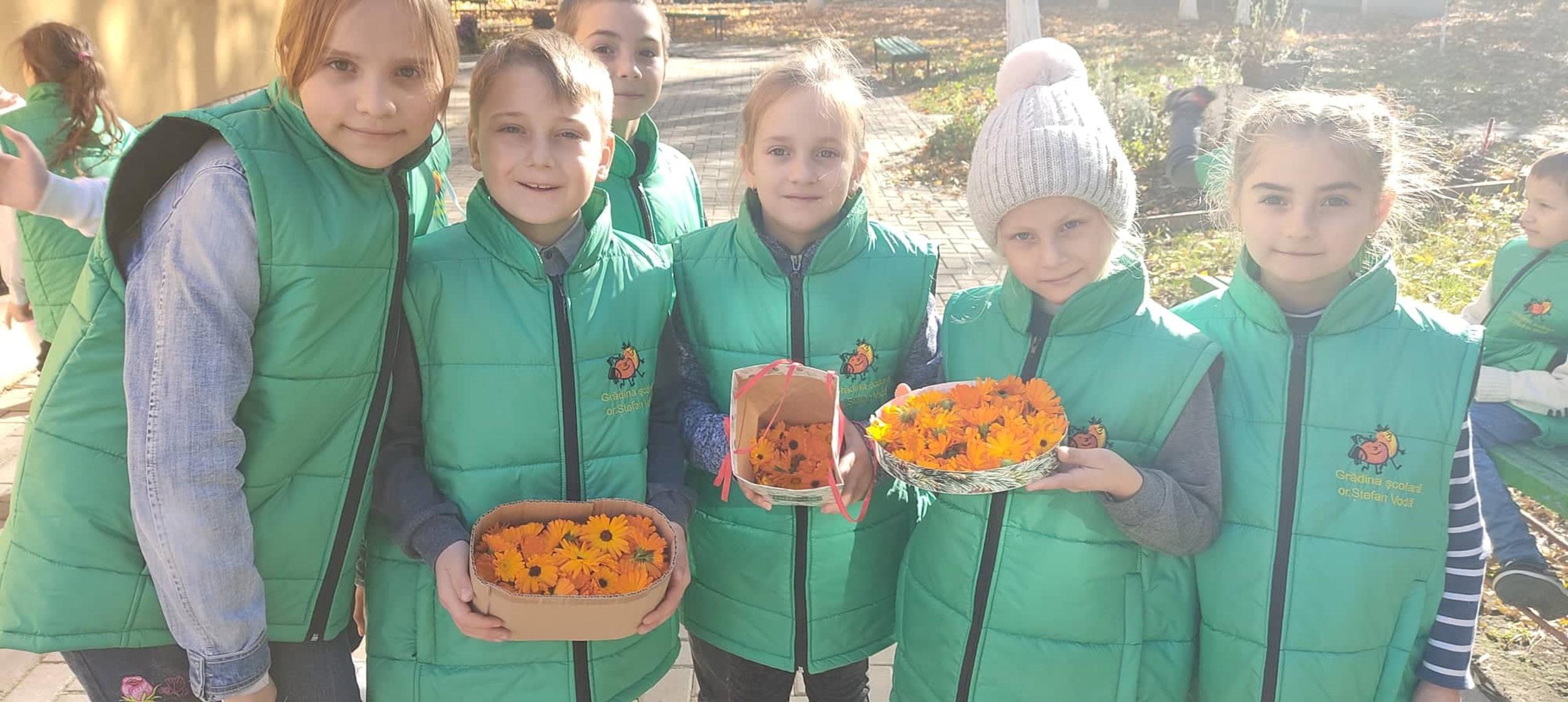

More details about the project's beneficiaries and activities can be found in the video spots published on the Facebook page of the National Environment Centre.
Implementation partners of the project are the National Environmental Centre of Moldova, the Green Cross of Belarus, the Green Cross of Ukraine, the John Paul II Italy Foundation.
The network of Kindergartens is to be expanded in 2023 with the financial support of the Swedish Government.
Together with the launch of the new Erasmus+ Call for Proposals, on November 24, the National Erasmus+ Office has started the annual Info Campaign, edition 2022,
with several events dedicated to students and teachers from universities and VET institutions from the Republic of Moldova.
The information campaign, conducted by the National Erasmus+ Office in Moldova, in cooperation with the Ministry of Education and Research and the EU High Level Advisers’ Mission to the Republic of Moldova aims to present the opportunities of the Erasmus+ Programme among students and academic staff in Moldova, as well as to promote the internationalisation of studies, mobility and exchange of experience for students and teachers.
The first event within the Erasmus+ info campaign took place at the Technical University of Moldova. Another info session for students was organised at Comrat State University. During these events, young people studying at higher education institutions
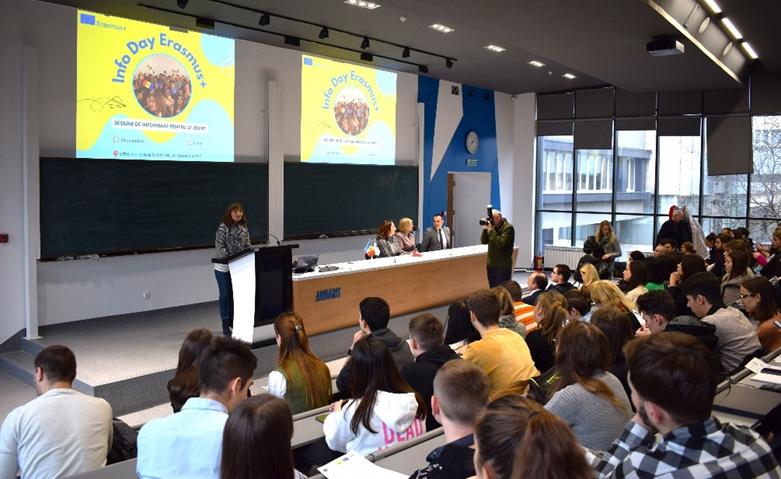
from our country were informed in detail about the Erasmus+ opportunities available to them, and namely about:
» international credit mobility projects - which allow students enrolled at Moldovan universities to obtain Erasmus+ scholarships for academic mobilities at European universities;
» Erasmus Mundus Joint Masters –Master's degree programmes of excellence, developed by consortia of universities from all over the world;
» opportunities for young people within the Erasmus+ programme – international trainings, volunteering projects, etc.
The National Erasmus+ Office team has explained to event participants how to apply for an Erasmus+ scholarship, what the deadlines and the eligibility conditions are. Also, the representatives of the Info Centre for Erasmus+ Youth and European Solidarity Corps talked about youth exchanges in frame of non-formal education trainings, but also about the possibilities to participate at volunteering projects lasting up to one year in Europe. Students have also presented their inspirational experiences during their Erasmus+ mobilities at European universities and how they contributed to their personal and professional growth.
The Erasmus+ national campaign continued on December 7 with an information session for university and VET staff. The event took place at Clasa Viitorului (State Pedagogical University "Ion Creangă"). During the event, the representatives of the National Erasmus+ Office presented the international credit mobility, Erasmus Mundus, capacity building in the field of higher education and professional education and training projects, as well as Jean Monnet actions and Erasmus+ Youth projects. The participants of the info session learned about the types of Erasmus+ projects to which they can apply,
about the eligibility conditions, deadlines, application methods, as well as global and regional priorities within the Erasmus+ programme.
Overall, during the period of 2014-2021, the universities from Moldova have already implemented: over 3600 Erasmus+ academic mobilities for students and staff, as well as 21 capacity building in higher education projects and 22 Jean Monnet actions. Starting from 2021, within the Erasmus+ programme, Moldova benefits of the capacity building for VET projects, which aim for the modernisation and internationalisation of this education sphere.
The Erasmus+ information campaign started with the launch of the new Erasmus+ Call for proposals and the publication of the Erasmus+ Programme Guide 2023, which will pave the way for new projects in the field of education in the Republic of Moldova and around the world. With a total budget of €4.2 billion for the year 2023, the Erasmus+ programme aims to continuously support inclusion, digitalisation, greening, active citizenship and a more dynamic participation in the democratic life.

On 17 November, on International Students' Day, nearly 200 students and pupils participated in an event on promoting the teaching career, organised by the Ministry of Education and Research with the support
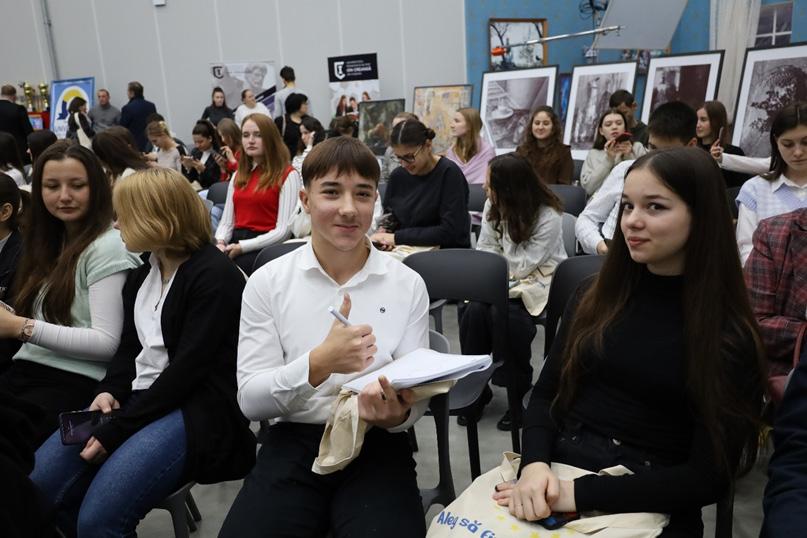
of the EU High Level Advisers’ Mission. The purpose of the event was to promote the image of the teacher and increase the interest, motivation and number of young people who will opt for the teaching career.
Final year students from the pedagogical specialties of the State University of Moldova, State Pedagogical University
"I. Creangă" from Chișinău, University of Physical Education and Sports, Academy of Music, Theatre and Fine Arts, Pedagogical College "A. Mateevici" from Chișinău, young teachers employed in high schools, middle schools and kindergartens, winners of the "Teacher of the Year" 2021 and 2022 contest, high school principals, rectors, vice-rectors and future high school graduates took part in the event.
The Minister of Education and Research, Anatolie Topală, opened the event, emphasising the importance of the teaching profession, but also the benefits it offers:
"I consider the teaching profession fundamental for educating the professionals and citizens of tomorrow. The state grants a series of facilities for those who opt for the teaching career: a one-time support worth 120,000 lei upon signing the first employment contract as a teacher, support for paying
EU High Level Advisers’ Mission: nearly 200 students and pupils learned about the benefits of the teaching career
heating and electricity bills, as well as a work load of 75% - all this in addition to the social prestige of the profession."
For his part, the Ambassador of the European Union to the Republic of Moldova Jānis Mažeiks stated that the European Union has been supporting the field of education in Moldova over the years, through specifically allocated funds and mobilisation of sectoral European expertise:
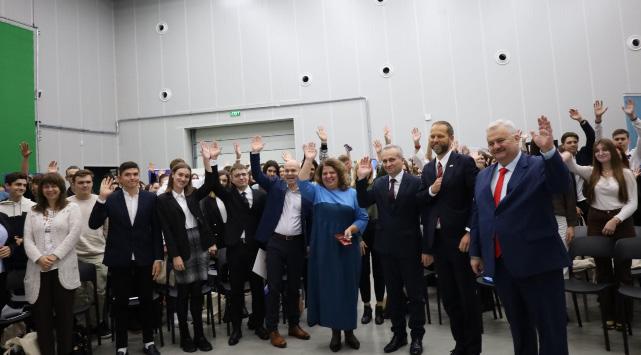
"It is gratifying to see investments in the young generation, by promoting the teaching profession; namely investments in education can ensure a prosperous future for the country."
The students of pedagogical specialties from the 5 mentioned institutions that train teaching staff, presented the professional training opportunities in the field of Educational Sciences, including through dual education offered to young people. The young specialists employed in schools in the country spoke to future graduates about the advantages during graduation and employment. The winning teaching staff of the Teacher of the Year 2021 and 2022 Competition shared the experience gained in educational institutions and the importance of choosing the teaching profession. The event ended with activities in practical workshops presenting the educational offers of higher education institutions and pedagogical colleges and an artistic program presented by universities. The students participating in the event received promotional materials with the slogan "Good teachers, prosperous country. Choose to become a teacher.” The event is the first of a series of workshops, including in the regions of the country.
The Ministry of Education and Research of the Republic of Moldova, with the support of the EU High Level Advisers’ Mission, continued the awareness raising campaign on popularisation of the teaching career and promotion of pedagogical institutions, in the northern region of Moldova, being hosted by the "Alecu Russo" State University in Bălți. The event was attended by final year students from the pedagogical specialties of the "Alecu Russo" State University in
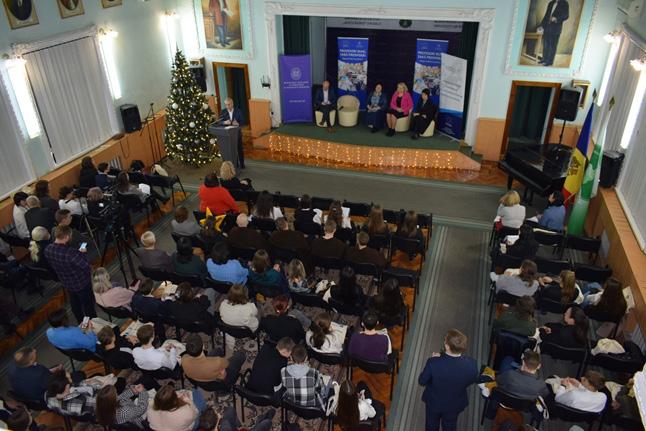
Bălți, "Ion Creangă" Pedagogical College in Bălți, "Vasile Lupu" College in Orhei, "Mihai Eminescu" College in Soroca, young teachers employees in high schools, middle schools and kindergartens, laureates of the "Teacher of the Year" Competition, university management, high school principals and over 100 students from Bălți, Fălești, Florești, Sângerei, Râșcani, Drochia, Glodeni, future high school and gymnasium graduates.
The Minister of Education and Research
Anatolie Topală spoke about the importance of the teaching profession in society and the actions of the ministry to attract and maintain good teachers in the educational system. The state grants a series of
facilities to those who opt for a teaching career: higher scholarships for students from the pedagogical profile, an allowance for beginning teachers in the amount of 120,000 lei in the first three years of activity, compensation for paying heating bills and
The teaching career awareness raising campaign "Good teachers, prosperous country. Choose to become a teacher" reached Bălți
electricity, as well as 0.75 didactic norm for a full salary. The Ministry came up with the initiative to extend the period for supporting young specialists from three to five years. The ministry also invests in strengthening the capacities of pedagogical education institutions to improve study programs and conditions. Recently, grants in the amount of over 150 million lei were allocated to 10 institutions with a pedagogical profile, 4 universities and 6 colleges, with the aim of improving the training of teachers.
The Rector of the "Alecu Russo" State University from Bălți , Natalia Gașițoi, presented the professional training opportunities in the field of Educational Sciences, presenting the educational offer of the university, the possibilities of higher education institutions, emphasising the fact that special attention is granted to specialties with a didactic profile.
The traditional discussion panels followed with students from the pedagogical specialties, young specialists and teachers winners of the "Pedagogue of the Year" Competition. The speakers emphasized the importance of the teaching profession, the role of the teaching staff who must always be connected to the future, keep up with each generation, continuously consolidating their skills, because it depends on them how prepared and adaptable today's young people will be to the realities of tomorrow.
Beginning teachers, as well as experienced ones, spoke about spiritual fulfilment, permanent intellectual ascent, the joy and satisfaction experienced when you get to see your students accomplished and fulfilled. The challenges faced by teachers were also addressed, with several solutions offered, and the need to increase the prestige of the teaching profession was also discussed.
Traditionally, the event ended with activities in practical workshops presenting the educational offers from the "Alecu Russo" State University in Bălți and from the pedagogical colleges. Potential future educators have shown interest in educational programs. The students participating in the event received promotional materials with the motto "Good teachers, prosperous country. Choose to become a teacher" and enjoyed an artistic program. The teaching career awareness raising campaign "Good teachers, prosperous country." Choose to become a teacher!" started in Chișinău, for educational institutions in the centre of the country, after which it took place in Cahul, for the Southern region, and on December 17, 2022, it ended in the north of the country, in Bălți, thus concluding the first stage of the campaign.
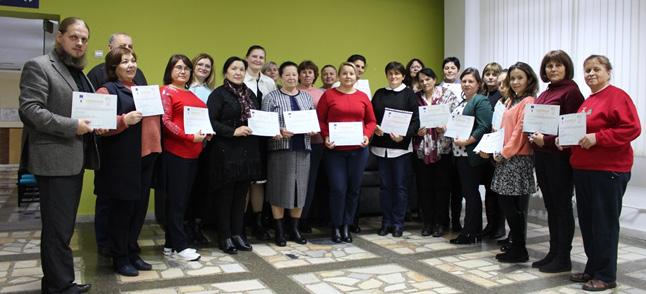
Employees from three daycare centres for elderly people from the districts of Cimișlia, Fălești and Soroca and from the placement centre of Puhăceni village in Anenii Noi district participated in a five-day initial training course for specialists who provide social services for elderly people, organised by Keystone Moldova. The above-mentioned social services are developed and expanded with the support of the project “Civil Society Organisations Act for Better Social Services”.
The participants learned basic notions regarding the legislation and rights of the elderly, the regulatory framework governing the operation of centres for the elderly, the manner of organisation and management of social service, preparation for the accreditation of the service.
Also, through group work and exchange of opinions, participants practiced the application of case management, including drawing up individual assistance plans, drawing up and keeping the beneficiaries’ case files, etc.
“I have been working for 13 years at the multifunctional social assistance centre for the elderly in Glinjeni village of Fălești district, where we are currently developing the social service of daycare centre. Although we already have some experience, I realise that we have not yet had clear procedures to follow when preparing the beneficiary’s case file. During the training, we identified some risk factors that could endanger the life and health of the beneficiary; established the principles of organisation and functioning of a service; practiced how to correctly make an individualised assistance plan, with objectives
that determine certain actions; learned how to correctly formulate an objective. We have also been shown another model of collaboration agreement, specifying the objectives, rights and obligations of the beneficiary and the service provider. Upon returning to work, we will certainly modify the agreements we currently have with the beneficiaries, in accordance with case management and minimum quality standards,”
said Nina Covaliuc, representative of the public association Modern Village, after the training.
Another participant, Ghenadie Pereteatcu, mayor of Baxani Village in Soroca district, is currently developing the social service of daycare centre for the elderly that is to have at least 70 beneficiaries, selected from around 200 elderly people in the village.
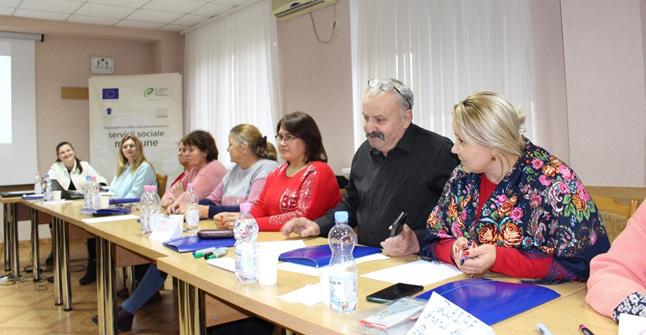
“We will offer them occupations, cultural and leisure activities, in short, we will motivate them to smile and feel good! We will also give them a hot lunch. First, however, we have to work on preparing the service for initial accreditation. I learned a lot of useful things here. I was most impressed by the formulation of objectives. I realise that I need to systematically participate in training courses,”
Ghenadie Pereteatcu said.
In Puhăceni Village of Anenii Noi district, the placement centre for the elderly is in full reform. The institution is being reorganised from asylum to placement centre.
“Going through the reform process, the need arose to organize the work differently and learn a lot of new things. Our interest now is for the service to be accredited. We learned what it means, how we need to prepare, what paperwork to do. I came to the training with a part of the team, four people, so we could get training and learn how to work correctly from now on,”
said Fiodor Nicoara, the manager of the centre.
Aliona Televca, social worker at the daycare centre in Selemet village of Cimislia district, said that the training gave her clarity regarding the organisation and tasks of her work with beneficiaries.
“Sometimes we received a beneficiary’s case file and I was not sure what it should contain and what we should add. At times, I tried to do everything from scratch to fill out the file. But now I understand that the community social worker must bring us a fairly strong base, after which we, at the centre, must carry out other assessments and interventions. For me, training meant clarity. Now I understand the concrete steps I need to take. I want to note that in my store of knowledge that I came with here, everything was mixed up. Now, leaving after five days of training, I can say that it looks like an organiser – everything is in sections, separate and clear. What I liked is that we got involved in each topic and exemplified each step, so we found ourselves in the situations of our colleagues and exchanged opinions. Thus, we know how we will proceed in different situations,”
Aliona Televca said.
Initial training for the staff of daycare and placement centres for the elderly is organised by I.P. Keystone Moldova, which is an implementing partner organisation within the EU-funded project “Civil Society Organisations Act for Better Social Services”. Within this project, 40 social services are developed in different localities of the Republic of Moldova.
Over 100 children with special needs from Ștefan Vodă rayon have got better rehabilitation conditions at the centre for specialised assistance and temporary placement Trust, which was provided with equipment and a minibus adapted to transport people with disabilities. These improvements took place within the project “Accessible Social Services for Children and Young People with Special Needs from Stefan Voda district”, implemented by PRODOCS Public Association and Ștefan Vodă rayon Council with the support of the European Union and Soros Foundation Moldova.
Within a year, high-performance equipment was installed in the physical therapy and occupational therapy rooms, 84 parents and family members obtained individual and group support to develop their parenting and communication skills, and 35 specialists were trained in the field of working with children with special needs. Also, 128 children participated in socialisation and life skills development activities at the Trust Centre. The team of the Centre reviewed the internal documents of the institution and organised awareness-raising activities in the educational institutions of the district on the issues faced by children and young people with special needs.
“Thanks to financial and methodological support we managed to solve the problem of mobility of people with special needs from their home to the Centre, and this will contribute to increasing the number of beneficiaries of social services provided by the Centre and to developing relations with the community,” said Cristina Cuschevici, the project director and president of PRODOCS.
The strengthening of the Trust Centre is one of the 40 social services created or developed within the project “Civil Society Organisations Act for Better Social Services”, financed by the European Union, co-financed and implemented by the Soros Foundation Moldova in partnership with the public associations Keystone Moldova and Institutum Virtutes Civilis.
“Supporting activities for the inclusion of children with special needs, so that they benefit from friendly conditions for rehabilitation and development, is one of our priorities and we will continue to implement projects in this area,” said Victoria Neaga, project manager at the European Union Delegation to Moldova.
The project “Accessible Social Services for Children and Young People with Special Needs from Ștefan Vodă District” was implemented during one year, with a budget of 60,000 EUR and a co-financing from Ștefan Vodă district Council of 34,000 lei.
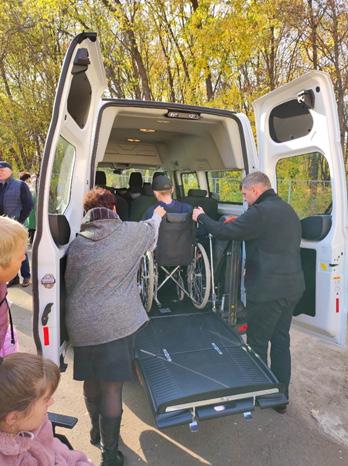
Children with special needs in Ștefan Vodă have better rehabilitation conditions, thanks to the EU support
Since April 2022, at the Todirești Mayor's Office in Ungheni district, a village with over four thousand inhabitants, the work is handled differently – with less stress, with more order in paperwork and with visible results for children at risk. “Honestly, now I come to work with pleasure,” says Natalia Gherbovitan, a community social worker. The reason is that the mayor’s office has employed a specialist in the protection of children’s rights, who took over a large part of the tasks previously assigned to the social worker. Such specialists have been employed in four mayor’s offices in the district thanks to the public association Social Alternatives, which is implementing a project funded by the European Union and the Soros Foundation Moldova.
Olga Sarbu, children’s rights protection specialist in Todirești village, manages 28 cases of children qualified by the multidisciplinary commission as being at risk. Most of them were included in this category as “involuntarily neglected’, i.e. their families have not enough resources to provide them with everything necessary, including food and school supplies. The multidisciplinary commission in the locality evaluates each case, draws up an individual assistance plan and, depending on the need, the family and the child receive financial help or are referred to appropriate services. Every three months, cases are re-evaluated.

“We work both for urgent interventions and to prevent difficult cases. For example, we have a case where in a family with 5 children one child is with special educational needs not because he has health problems, but because he did not attend kindergarten at all, that is, he did not have any preschool training. This would not have happened if it had been discovered in time that the child does not go to kindergarten. Now we have registered two other younger children in the family and we insist on placing them in kindergarten, so that they do not end up like their older brother,”
Olga Sarbu says.
In November, when we visited Todirești Mayor’s Office, Olga was especially concerned about helping two children with deviant behaviour. One of them came to the attention of the mayor’s office last summer. The mother notified authorities that her son had been missing from home for two days. “When I went to do the initial assessment, I was sure that this child was aggressive with his parents. In three days, it was confirmed,” says the children’s rights specialist. The boy is now assigned to an individual support plan, including psychological counselling sessions.
“Judging by the cases I work on, I am sure that it is necessary for parents and children to have permanent access to a psychologist. People in the village believe that if they went to a session with the psychologist once, it is enough. But it is not so, it takes a lot of work,”
Olga Sarbu says.
She also takes care of other children at risk in the village – a minor mother, who needs financial support to survive, among other things, and some children with disabilities, who need periodical help for treatment and rehabilitation.
For the evaluation and monitoring of cases, Olga often visits families with children are at risk, sometimes together with the district policeman.
Specialists hired with the support of the European Union and the Soros Foundation Moldova
Currently, five specialists in children’s rights protection work in Ungheni District. One works at Ungheni Mayor’s Office, and the rest work in the mayor’s offices in Todirești, Pîrlița, Sculeni and Zagarancea. The last four were employed in April 2022 due to the public association Social Alternatives from Ungheni, which implements the project “Local Guardianship Authority for Better Protection of Children”, financed by the European Union and the Soros Foundation Moldova. From May 2022, these specialists will be paid from mayoral budgets.
“We intended to support the local authorities to hire specialists in the protection of children’s rights and to show the benefits of their work both for children and families, as well as for the mayor and the social worker, whose workload is already very high, as they deal with all categories of beneficiaries, not just children. In large communes it is very difficult for a social worker to cope with all the tasks. As you can see in Todirești, we managed to do this,”
said AdrianaFrasin, president of Social Alternatives.
Since the onset of the war in Ukraine on 24 February 2022, IOM Moldova, with the financial support of the European Union (DG-NEAR), assisted Ukrainian refugees fleeing the war through a series of actions aimed at ensuring a safe and dignified migration flow in all phases of humanitarian emergency support.
From the beginning of November to 15 December, 91 Ukrainian refugees have been transferred from Moldova to Germany (4), Austria (12), France (18), Norway (31), Switzerland (7), Spain (5), Netherlands (2), Ireland (10), Italy (2), bringing it to a total of 1,997 since the start of the intervention in February 2023. To all those registered
as beneficiaries on Resettlement and Movement Management (RMM), IOM provided consular support and counselling, accommodation, ground transportation and arrival orientation assistance. When needed, Ukrainian refugees are provided with food and temporary pre-departure accommodation in Chișinău.
Among the services provided, health checks before embarkation for a rapid medical-health assessment on suitability for travel and to avoid any type of risk to the health of passengers on the aircraft, during transit or upon arrival in the country of resettlement.
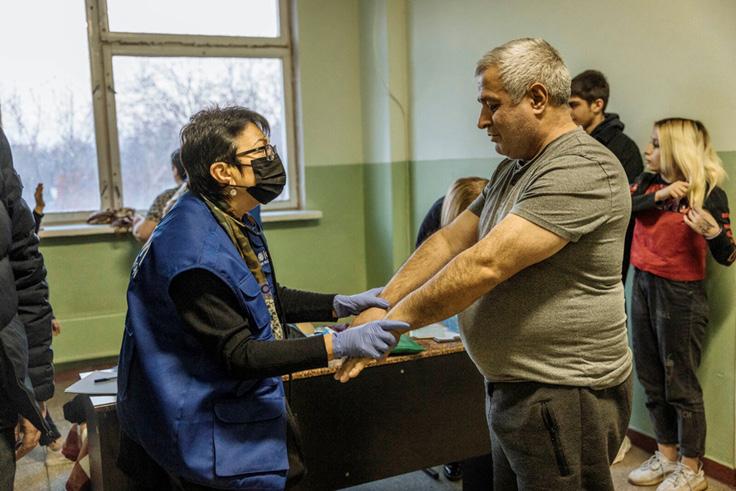
As of November 2022, IOM has provided Psychological First Aid (PFA) assistance and carried out pre-departure health checks to 121 Ukrainian refugees and third-country
conditions. For them, specific medical advice and health stabilisation treatment were required before departure and 10 medical supplies have been allocated. 3 serious cases on stretchers were transported to the
In light of the unfolding humanitarian crisis, the European Union and International Organisation for Migration in Moldova expanded their support to national border and migration authorities in their efforts to manage appropriately the massive crossborder inflows. IOM contributed to the enhancement of the Bureau of Migration and Asylum’s (BMA) mobility and identity verification capabilities by handing over 21 identity document readers and two minibuses. The donated items represent one more significant support to boost the BMA’s capacity to provide direct services and assistance to increased volumes of migrants and refugees arriving at the border, in a manner that is orderly and compliant with the national legal framework, while adhering to protection principles and international human rights standards.
On the occasion of the handover that took place on November 4 (video), the Minister of Internal Affairs of the Republic of Moldova, Ana Revenco, stated that
“The Republic of Moldova is facing several crises, and the situation in the region continues to be volatile. The employees of the MIA subdivisions are on the front line, and in order to face the challenges, we must make a common front with external partners. The donation received today will certainly contribute to the efficiency of MIA services”. The EU Ambassador to Moldova, Jānis Mažeiks, reiterated that “Passenger vans and passport readers that we provide today will help MIA and Bureau for Asylum and Migration to provide essential services and assistance
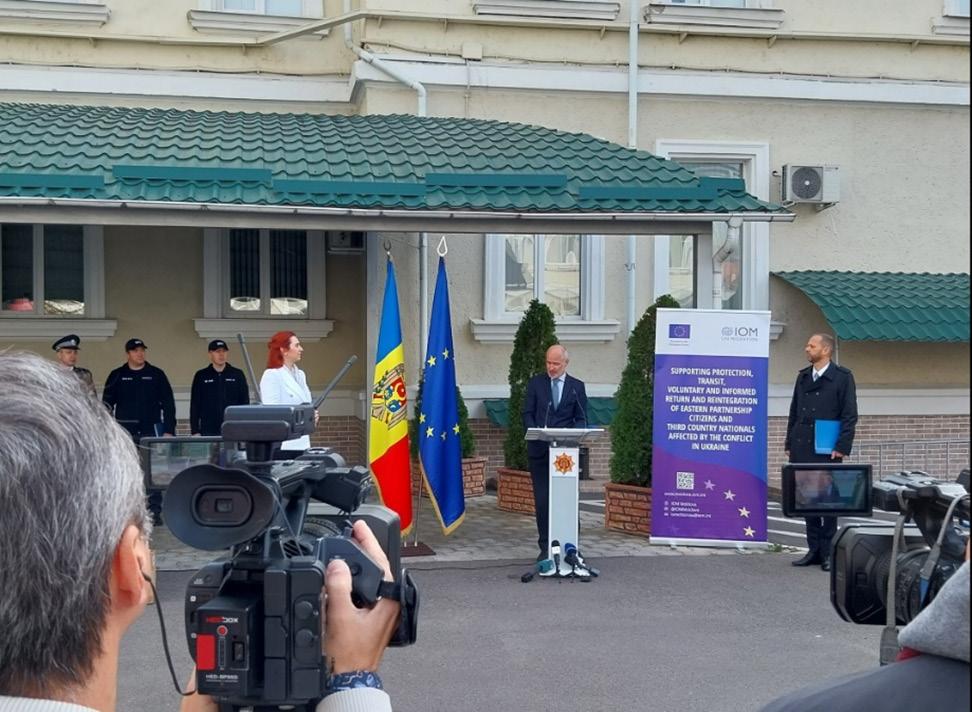
to the refugees entering into the Republic of Moldova. This delivery is part of a larger regional programme funded by the European Union to support migration management. The EU response to Russia’s aggression against Ukraine was timely and rapid. The EU allocated 15 million EUR for this programme to enable the voluntary transfer of persons in a safe and dignified manner, medical and psychological support and social protection, as well as border management”.
The comprehensiveness of IOM-EU support is also enhanced by the provision of expertise and deployment of consultants to support BMA’s operational activities, hotline, and strategic processes, especially those related to expediting the implementation of immigration and regularization procedures.

“Through this material support, augmented with other ongoing policy development support activities and training delivery, the International Organisation for Migration in Moldova aims to significantly contribute to national efforts towards strengthening the migration governance architecture in the country”, said Lars Johan Lönnback, Chief of Mission of IOM Moldova.
The equipment and vehicles, in a total amount of €125,000 and the latest donation in order of time of 12 patrol vehicles for the Border Police to enhance border security and swift reaction to border incidents (photo), are part of the generous assistance of the European Union in the framework of the project “Supporting Protection, Transit, Voluntary and Informed Return and Reintegration of Eastern Partnership Citizens and Third Country Nationals affected by the conflict in Ukraine project”.

Despite the efforts to promote equal opportunities for women and men, female researchers continue to face unequal access to funding opportunities for research projects, including to leadership positions in research institutions and academic awards. This is the overall conclusion of the policy brief "Women in science and research: challenges to gender equality and
recommended policies" presented in a public event held on 16 December. The policy brief was developed under the Partnerships for Women Leadership and Good Governance project, implemented by Friedrich Ebert Stiftung Moldova and Institutum Virtutes Civilis, with the financial support of the European Union and Friedrich Ebert Stiftung.
According to Associated Professor Mariana Iațco, the author of the policy brief, although women have the same level of skills, methods and general approaches to scientific problems as men, they are underrepresented at higher hierarchical levels in the science sector. "Gender equality has not been fully achieved in the scientific and academic environment yet, the situation varying between the research sectors and academic degrees, and the presence of women in the highest academic and decision-making positions in scientific institutes and in universities in the country is still low. This indicates the existence of a "glass ceiling", i.e. invisible barriers based on prejudices, which prevent women from accessing management positions", concluded Mrs Iațco.
The data used by the expert shows that, currently out of 45 researchers elected as members of the Science Committee of the Academy of Sciences of Moldova only 14 are women, and out of 24 university rectors, only 5 are women.
According to Liliana Palihovici, the president of Institutum Virtutes Civilis and the team leader of the Partnerships for Women Leadership and Good Governance project, the issue of inequities in the research system is a very sensitive one.
"With this research we wanted to launch discussions on an issue that is quite overlooked in our country. We do hope that the Parliament will pass the required amendments to the
legislation to increased women participation in the research and science sector. Compared to the European countries, in Moldova there are 4.5 times fewer researchers per one million of citizens than the European average. Of course, there are already some signs of a change in the attitude of the authorities, but we still have a lot to do",
said Liliana Palihovici.
Inga Iovu, the project coordinator, drew attention to the fact that the research situation is still vulnerable.
"When we decided to look into gender inequities in the research sector, we actually wanted to create a platform for discussion on this important topic. The more people will understand that the lack of equal opportunities in this sector is an issue, the faster we will make the change",
Inga Iovu believes.
The policy brief has been submitted to the Culture, Education, Research, Youth, Sports and Mass Media Committee of the Parliament of the Republic of Moldova. Virgil Pâslariuc, the vice-chair of the Committee, believes that it will be useful for the authorities in their future efforts to promote equal opportunities in the sector.
"Research and science are areas that have been unfairly undervalued. Unfortunately, our society still does not understand that a strong research and innovation sector drives substantial economic growth. Therefore, it is necessary to draw more attention to education and science - the future of our society depends on them",
VirgilPâslariuc concluded.
The event was organised under the Partnerships for Women Leadership and Good Governance project, implemented by Friedrich-Ebert-Stiftung Moldova and Institutum Virtutes Civilis with the financial support of the European Union and Friedrich Ebert Stiftung.
Students from 25 Moldovan schools have tested their future by trying out various jobs, as a means to help them shape their future careers within the Takeover Day campaign. The event celebrated the right of all children and young people to participate in the society and took place in the context of the World Children's Rights Day, marked on 20 November. The campaign was conducted both at the local and at the national level, within Joboteca EU-funded Project, implemented by Terre des hommes Romania and Terre des hommes Moldova. The Takeover Day campaign took place during 14 and 20 November 2022.
“This year, we have held the first edition of the Takeover Day campaign meant to encourage the school students to discover their talents and wishes for the mostly suitable career for them. Within this campaign, young people meet mentors and test the job they like in a practical way, thus being able to figure out if it suits them, if it is really what they would like for their future”,
Elena Madan, Terre des hommes country director in Moldova, explained the rationale and the particularities of the campaign.
At the national level, the young people had the opportunity to meet 15 professionals who achieved outstanding results in their field of work, who welcomed the students with great openness, speaking to them about their job and involving them in specific activities to test the job. The participants were selected based on a motivation letter in which the students explained why they wished to meet a specific mentor. Finally, 33 young people met different professionals, such as entrepreneur, chef, IT specialist, organisation director, actor, ambassador,
hair-stylist, journalist, ombudsman for children's rights, police officer, doctor, barista and restaurant manager. They could spend from a few hours to almost one day with their mentors from the EU Delegation, the Terre des hommes Moldova Foundation, the Office of the President of the Republic of Moldova, ARTCOR, „Luceafărul” Republican Theatre, Oliva Verde and Tucano Coffee restaurants, the Police Inspectorate of Centre district of the capital and others.
„This day is unforgettable. I discovered many aspects of the diplomatic job that were unknown to me before that and Mr. Ambassador was the right person to learn so many interesting things from. In the future, I hope to represent Moldova as well as he represents the European Union”, said Nicolae Mărjineanu, 11th grader from the Grozești village, Nisporeni district, whose mentor was Jānis Mažeiks, Ambassador of the European Union in the Republic of Moldova.
Andreea Rusu, 11th grader, wishes to become a doctor and, therefore, she chose Dr. Lucia Gariuc, an ENT doctor at Pedriatica clinic in Chișinău, as her mentor.
„Today's experience was unique and I'm glad I had this opportunity. I learned that working in the medical field requires both knowledge and the ability to communicate effectively with the patients. Ms. Lucia Gariuc inspired and motivated me a lot and even gave hope about my professional future. I am grateful for it”,
the young girl from Grozești (Nisporeni) stated.
Nine students had the opportunity to visit the Presidency of the Republic of Moldova, where they learned about how such an institution is organised, who are the officials and the advisers who work there and even met the President for a short discussion.
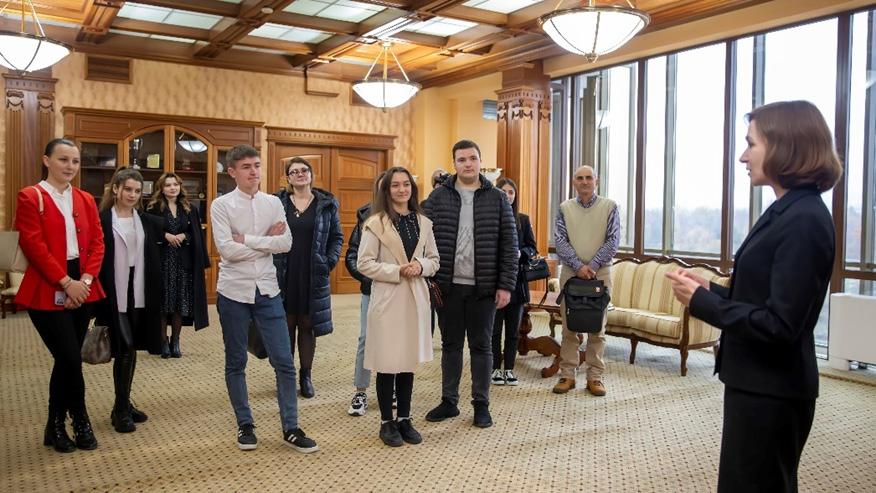
„After visiting the Presidency, I was pleasantly surprised by the small details and the history of this building. The meeting with Ms Maia Sandu, the President of the Republic of Moldova, was a memorable moment, as was the fact that she talked to us about her professional path and about what we need to do to become the best in a certain field”, Ștefan Stolear, a 12th grader from Strășeni, shared his impressions.
This experience was novel for the mentors, as well. They perceived it as a great responsibility and took their role very seriously.
“It is a huge responsibility to work for one day together with children. Through your actions, you must convince them how important it is to know their rights and where/to whom to resort if they are infringed. I would repeat this experience every time I was asked to speak about my position of the People's Advocate for children's rights, about its importance for children and for the protection of the children's rights”, Maia Bănărescu, People's Advocate for children's rights, described the experience of this day.
„I talked with the students about the opportunities in IT field and how today's technologies are shaping our world and future. They were very motivated and
interested in learning more about programming, certifications and what education would be more relevant for their future. Through this programme, young people have access to various mentors and this is a very good opportunity to prepare the Moldovan pupils for the labour market”, the IT specialist thinks.
At the local level, in the 25 partner schools of the Joboteca Project, the coordinating teachers conducted the Takeover Day together with professionals from their communities. The jobs of craftsmen, doctors, farmers, entrepreneurs, firefighters, along with many other jobs were tried out by students. A total of 500 young people met 250 mentors and, together, had a passing over/taking over the baton experience, what was a first for each of them.
Nina Cegorescu, teacher at Codreanca middle school, Strășeni district, was a local coordinator of 19 students in her school on the Takeover Day.
„For many students, the participation in the Takeover Day was the final step towards making a decision about their professional future. The mentors were very responsive (local government, Străseni IMSP, a dentist’s practice, the police inspectorate, a beauty salon), they welcomed us with open arms. The students were delighted with this experience. Among them, just one young man, who dreamed of becoming a dentist, realised that this profession is not suitable for him”,
„I gladly embraced the opportunity to participate in the Takeover Day. It gave me the possibility to test the job of an entrepreneur, as well as of a waiter. Now it is clearer to me what these professions mean. I was happy to see the openness of our mentors to share their experience, with positives and negatives”, says Constantin Avram, 12th grader of the Vorniceni village, Strășeni district.
The students who took part in the campaign were very enthusiastic about the opportunity to get in touch with professionals who are able to answer their questions about the profession they dream of. For many of them, this experience was decisive - some realised that they are ready to dedicate themselves to the job they wish, while others understood that it is not appropriate for them.
The "Takeover Day" is an opportunity for the adults to show to young people that they trust them and the choices they make. At the same time, it is a platform for young people to express themselves and a chance to test their choice through access to the job they
"JOBOTECA - Pilot programme for preparing the young people in Moldova for the labour market" Project (2021 - 2024) is implemented by Terre des hommes Romania and Terre des hommes Moldova, in partnership with the Ministry of Education and Culture of the Republic of Moldova and it is funded by the European Union.
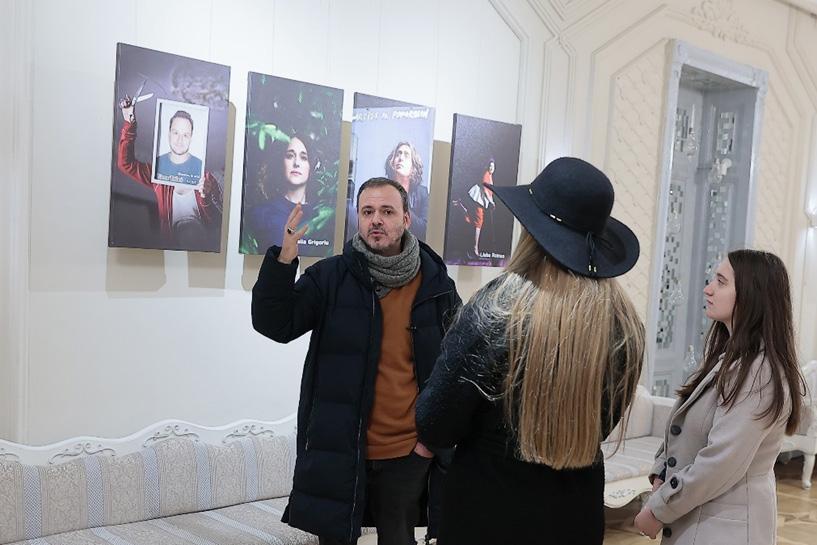
In the town of Călărași, the rehabilitated and expanded water supply and sewerage network was inaugurated. The residents of Călărași were provided with quality water supply services thanks to a project funded by the European Union and implemented by the Regional Development Agency (RDA) Centre.
On Thursday, 8 December, 2022, the event of the inauguration of the new water supply and sewerage network in Călărași was attended by the Deputy Prime Minister of the Republic of Moldova, the Ambassador of the European Union to the Republic of Moldova, the representative of the German Embassy in the Republic of Moldova, the management of RDA Centre, representatives of the German Development Cooperation (GIZ Moldova), local public authorities, representatives of the construction company, residents of Călărași, as well as representatives of civil society.
Thanks to this project, 11.4 km of water supply networks were rehabilitated and 4.5 km extended in Călărași, as well as 4.9 km of sewage networks were extended. Through the 875 new connections to drinking water, and 234 new connections to the sewage system, 16,500 city residents benefit from improved public services.
The total value of the project "Improving water supply and sewerage services in Călărași town" is about €1.5 milliom, of which about €1.4 million - offered as a nonrefundable grant by the European Union, and about €174 thousand - the contribution of the Călărași Town Hall.
At the same time, with the support of the German Ministry for Economic Cooperation and Development (BMZ), the municipal
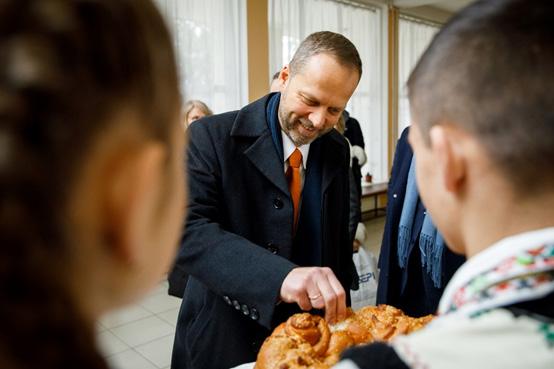
enterprise " Călărași communal-housing household" benefited from financial support worth about €30,000, which includes: a laboratory equipped with equipment for monitoring water quality, equipment for detecting water leaks, staff equipped with clothing and protective equipment. The specialists of the municipal enterprise were trained to manage various aspects related to quality management, business planning, customer relations and further expansion of services to neighbouring municipalities.
‘Improving water supply and sewerage services in Călărași town’ project was carried out by the Regional Development Agency Centre with the financial support of the European Union under the ‘Construction of water supply and sanitation infrastructure and energy efficiency in public buildings’ project.
With the support of the European Union, over 16,000 citizens of the Călărași town benefit from better water supply and sanitation services
The project is funded by the European Union and implemented by the German Development Cooperation through GIZ (Moldova) in partnership with the Ministry
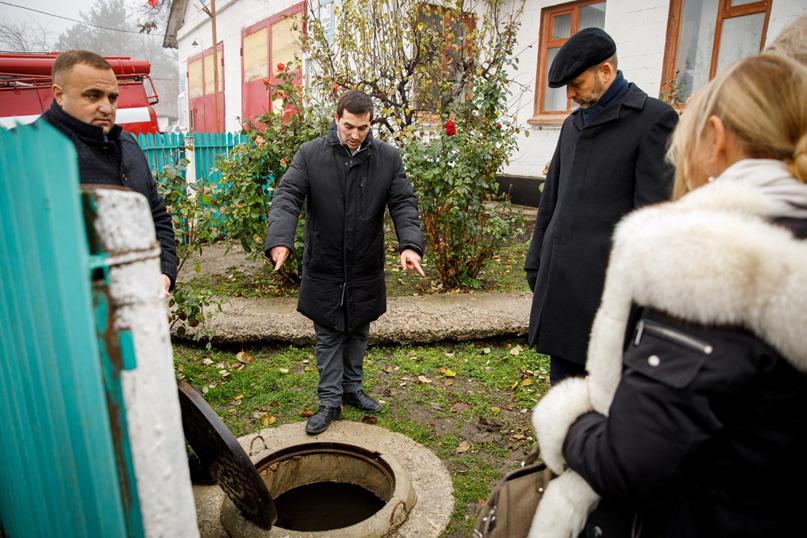
of Infrastructure and Regional Development. The total budget of the project is €39.8 million.
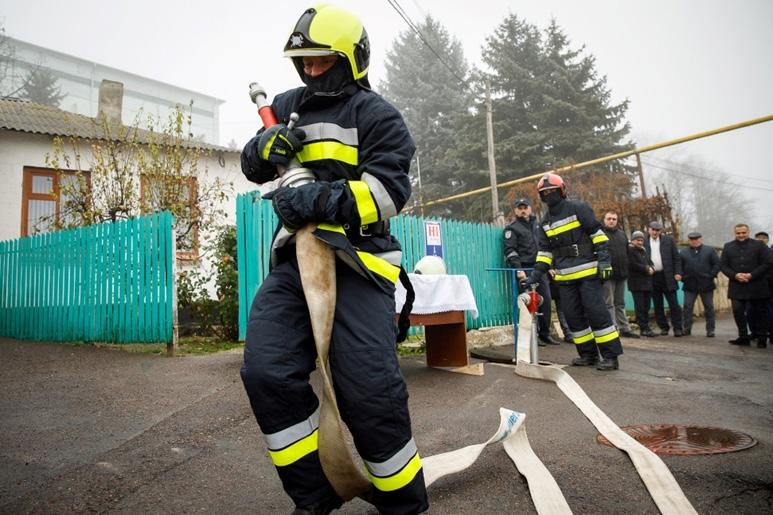
On 7 December 2022 in Cahul took place the meeting of the Steering Committee for the Cahul Water Supply and Sanitation Project with the participation of representatives of Cahul and Crihana Veche City Halls, S.A. Apă-Canal Cahul, as well as guests from the Embassies of Germany and EU Delegation, KfW, International Consultant, Ministry of Infrastructure and Regional Development, RDA South.
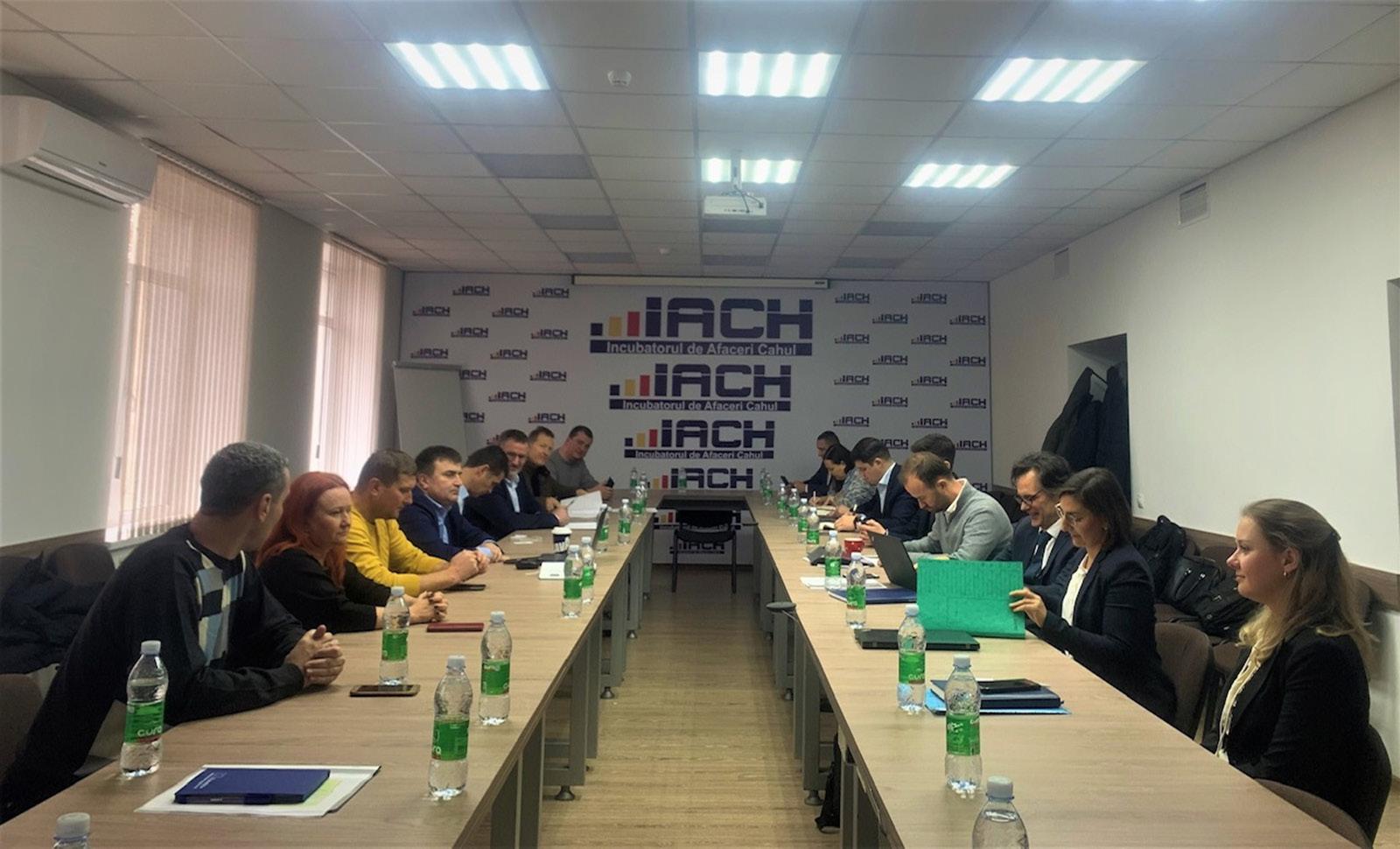
The progress of all Project Components has been discussed, as well as their implementation challenges. The project budget is €36.5 million grant, of which €23.5 million provided by the German Federal Government and €13 million by the European Union, under the Programme EU4Moldova: Clean Water for Cahul, both contributions are implemented by the German Development Bank, KfW.
Direct beneficiaries of the project are the inhabitants of Cahul municipality, including Cotihana and Crihana Veche villages, as well as Apă-Canal Cahul, the regional operator managing water supply, and sewerage services in Cahul municipality and neighbouring villages.
Within the project from EU sources, the following components will be implemented:
» construction of 14 km of sewerage in Cahul (estimated 900 household connections); installation of water supply and sewerage systems in the village of Cotihana (300 water supply and 400 sewerage household connections respectively); as well as installation of sewerage system in the village of Crihana Veche (950 household connections); with the connection of both villages to the main system of Cahul;
» procurement of Operation and Maintenance Equipment for S.A. ApăCanal Cahul;
» installation of 8000 remote reading meters, including reading, recording and data processing systems.
As a result of the implementation of the Project Cahul municipality, including Cotihana and Crihana Veche villages, will benefit of the rehabilitated and extended centralised water supply and sewerage system, and of improved living and health
For 30 months, from July 2020 to December 2022, the European Union has provided assistance to civil society organisations (CSOs) and vulnerable groups, which have been most affected by the COVID-19 pandemic in our country. The aid was made possible thanks to the project “Eastern Partnership – COVID-19 Solidarity Programme”, funded by the European Union and implemented by People in Need Moldova together with partners Netherlands Helsinki Committee and AFEW International.
This project was designed to mitigate the adverse effects of COVID-19 and contribute to the long-term socio-economic recovery of vulnerable groups. The assistance, foreseen under the project, was delivered promptly, with the bulk of the aid going to civil society. Fifteen CSOs were supported both through grants and training programmes, adapted to the new needs in the context of the COVID-19 pandemic. The total value of the grants amounted to more than €300,000, with financial support targeted at lonely elderly, young and vulnerable people, child victims of domestic violence, people with physical and mental disabilities, children with leukaemia, entrepreneurs/social
entrepreneurship. The CSOs selected in the project provided increased access to legal, education and health services, vulnerable groups were helped through the delivery of warm meals, distribution of COVID-19 protection materials, facilitation of online studies for children and other support.
The main results of the project were presented in Chișinău during an event held in the first week of December 2022. Both the People in Need Moldova team and the CSO grantees appreciated the positive impact of this project, thanks to which many good things have been done for the population affected by the pandemic. Magdalena Mueller-Uri, Head of Cooperation section of the European Union Delegation to the Republic of Moldova, in her online message at the beginning of the event, said:
“The European Union has mobilised all the instruments at its disposal to support civil society in the Republic of Moldova. I would like to thank our partner – People in Need – for their continuous support to civil society and vulnerable citizens at local level.”
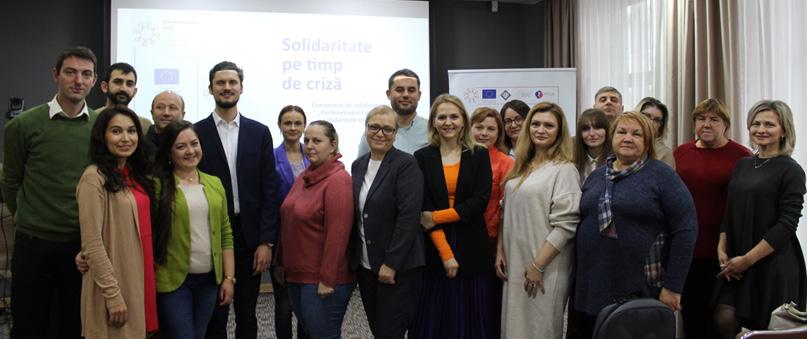
To help CSOs to tackle institutional barriers, the project also included an advocacy component, creating the right environment to assess their own advocacy skills and to develop a strategy and action plan in line with the organisations’ priorities. Six CSOs received grants totalling €24,000 and their advocacy activities targeted different levels of decision making, including the Parliament of the Republic of Moldova, the Ministry of Labour and Social Protection, the Ministry of Health, the Ministry of Justice, local
public authorities, the Oncology Institute and medical staff, the media, as well as the general public.
At the national level, the interventions under the project “Eastern Partnership – COVID-19 Solidarity Programme” geographically covered 10 regions – Bălți, Căușeni, Chișinău, Criuleni, Edineț, Florești, Glodeni, the Transnistrian region, Sangerei and Soroca. Being a regional project, it included similar activities in 4 countries: Armenia, Georgia, Moldova and Ukraine.
Resilience means the capacity to recover quickly from difficulties. Assistance and support for the local actors of change, such as civil society organisations (CSOs), grassroots groups, and independent media are crucial for maintaining an effective response to the impacts of the war in Ukraine. People in Need (PIN) with partners are launching a new EU-funded regional project to resist coming challenges in Eastern Partnership countries.
“Resilient Civil Society and Media Respond to the Ukraine War” is the name of the new project implemented by PIN, in consortium with the Prague Civil Society Centre and the Netherlands Helsinki Committee. With support from the Commission’s DirectorateGeneral for Neighbourhood and Enlargement Negotiations (DG NEAR), these three organisations have come together to join forces to efficiently respond to the needs of the war-affected population in Georgia, Moldova, Ukraine, and other countries.
Two years-long project focusing on the support of CSOs and independent media actors in the Eastern Partnership countries has been recently launched. The providing consortium directs the attention to the capacity building, skills training, and supplies of financial resources and psychosocial support to initiatives to manage the evolving needs of the conflict-impacted region.
“The consortium members jointly seek to address the immediate needs resulting from the Ukraine war, as well as the longer-term risks associated with disinformation and media space,”
said Erika Dvorakova, PIN’s consortium coordinator.
The initial stage of the project was a call for participation in the form of applications for grants. This phase of the project was launched simultaneously in Georgia, Moldova and Ukraine, and addressed to the submitted applicants. As a final result of

the first selection round, 32 organisations in target countries have been opted out. The second round will be held until the end of the year 2022 in all countries. The chosen CSOs had to go through a rigorous selection process, based on standards of interest of bringing new approaches to achieve concrete results and motivation to mobilise and be a role model for systematic change on the local or national level.
“The resilience building of civil society and media is one of the most critical missions. We believe strong civil society actors, human rights defenders and independent media are crucial for achieving a more just, democratic and better world,”
said Tinatin Japaridze, PIN’s regional project manager.With the support of the European Union, an informed and resilient civil society will be built in the region highly affected by the war in Ukraine
PIN aims to increase the capacities of CSOs to be able to deliver extended and more inclusive service provision and public support. In addition, PIN plans to disburse grants to CSOs, independent media outlets and exiled organisations. As a result, at least 86 organisations and media outlets will be supported in the implementing countries. Planned series of training will help independent media actors to reach a wider audience and ensure truthful and highquality coverage for more people. Newly established relationships between local and national or regional media will help to beat disinformation campaigns and strengthen access to information for non-majority communities. As well as media literacy component will be included in the training
to increase the skills of targeted groups. The fellowship, mentoring, coaching, and consultations are closely tailored to the purpose of the project, as well as networking and creating contacts on the local, national and regional levels.
The first 8 CSOs, selected by the PIN Moldova team, are: The Training and Personal Development Centre “Anima”, Institute for Rural Initiatives, NGO “Renașterea-C”, NGO “Afina”, NGO “Dăruim Vise”, NGO AREAP, Association for Human Rights “Lex XXI” and Association of Psychologists “Tighina”. The teams of these organisations will be supported to renew their resources and will be guided to overcome more easily the negative effects of the war, which has affected the whole region.
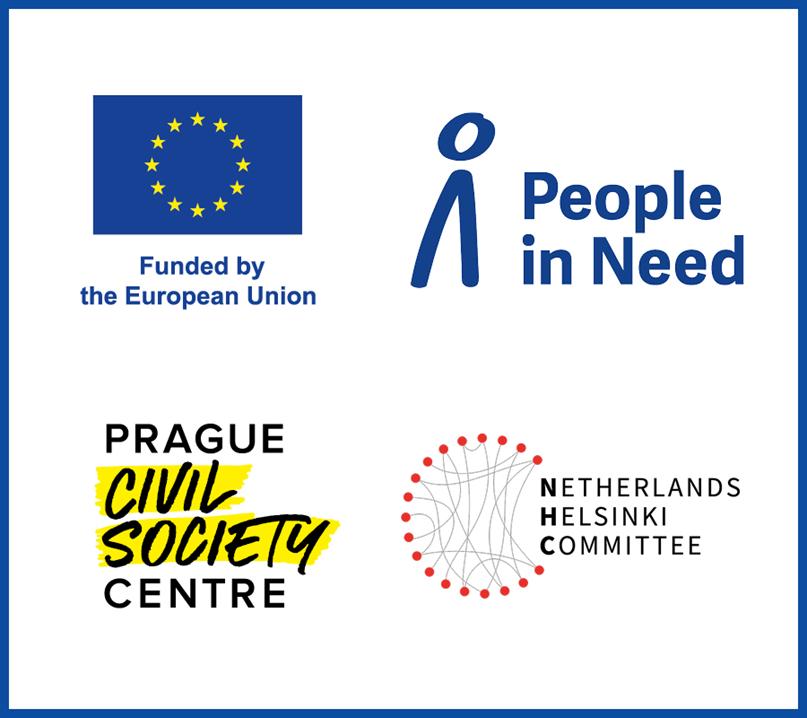
Six media organisations received financial support from the European Union to improve the public's ability to identify and recognize misinformation.
With the support of the European Union, six civil society organisations - Centrul Media pentru Tine, Ca Lumea, ADEPT, SuperLike, WatchDog.MD and Comunitatea Plus - will help citizens to navigate the complex information environment and learn to distinguish facts from falsehoods.
“The European Union supports the Moldovan efforts in fighting propaganda, assisting authorities, and supporting media and civil society organisations via new projects to help these efforts. Our goal is to help people distinguish reliable information from biased or false information. In this way, they will make better decisions for themselves and will think twice before sharing dubious content on social media,”
stated Jānis Mažeiks, Ambassador of the European Union to the Republic of Moldova.
The project foresees different types of activity within the planned actions. Beyond the media literacy efforts, activities primarily target young people and Moldovan citizens in the regions. Selected institutions are to
implement their ideas using social platforms such as Facebook, YouTube, Instagram, TikTok and establish cooperation with institutions to reach a considerable number of young people and create trustworthy content for different types of information consumers.
Organisations will also monitor the impact of harmful and unreliable information, manipulating and false narratives to measure the volume of the propaganda effect in the Republic of Moldova, both online and offline. This activity will also help to document existing information trends and to answer the question “Why?” it has become trusted in Moldovan societies. Nominated projects suggest strengthening people's capacities in critical thinking on the national and local levels in different languages spoken in Moldova.
The organisations received around €38,000 each and have been selected under the “Community Response to Disinformation” grant program launched in August 2022 by Internews and funded by the European Union and are part of the “Supporting Independent Media and Information Resilience (SIMIR) in Moldova” project.
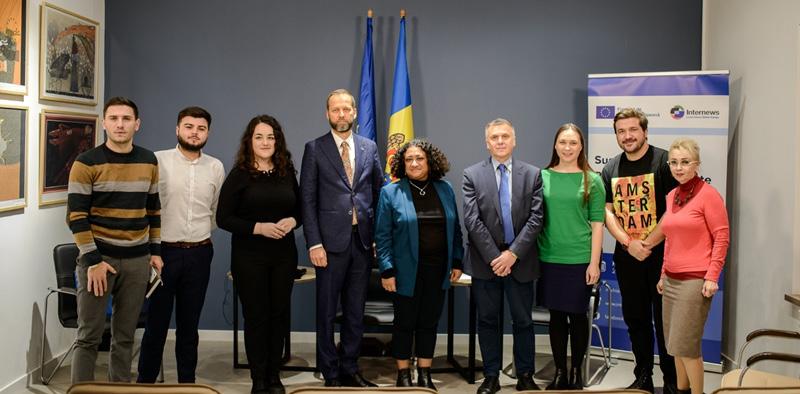

Twelve district, municipal and republican hospitals from the Republic of Moldova received electric generators, which will provide medical institutions with electricity in emergency situations. The donation, worth more than €245 thousand, accompanied by the support of Electricians sans Frontières technical team, is part of the assistance offered to Moldova by the French Government within the Team Europe – the
European Union and the Member States –through the EU Civil Protection Mechanism. The 12 electric generators were handed over on 21 December 2022, during a festive event attended by the General Secretary of State at the Minister of Health, Lilia Gantea, the Ambassador of the French Republic to the Republic of Moldova, Graham Paul and the Ambassador of the European Union to the Republic of Moldova, Jānis Mažeiks.
The donation provided through the EU Civil Protection Mechanism by the French Government will help Moldova cope with the consequences of a potential energetic crisis
“Now, in the middle of winter, energy security is more than ever a major issue for the Republic of Moldova and its brave people.
In this difficult context, France is proud to be able to contribute, through this donation of 12 generators, to strengthening the resilience of Moldova's hospitals and health system,” stated Jānis Mažeiks, Ambassador of the European Union to the Republic of Moldova.
Humanitarian assistance will contribute to strengthening the capacities of the hospital healthcare system in Moldova and to their energy resilience.
“The valuable support is provided through the Union Civil Protection Mechanism which allows the Moldovan Government to receive it faster, quicker and in a more efficient way. This is our way to express the solidarity with the people of Moldova in these difficult times. This donation is the testimony of EU continuous and generous support, offered in a team Europe spirit in the context of the war in Ukraine,”
said Jānis Mažeiks, Ambassador of European Union in the Republic of Moldova.During the donation ceremony, the General Secretary of State at the Minister of Health, Lilia Gantea, expressed her gratitude to the French Republic and the European Union for the support offered over time and stated that such equipment is vital to hospital medical institutions.
“Being in crisis situations, when we have a war so close on our borders, in Ukraine, as well as the risk of disconnection of electricity
supply, these generators are vital for the activity of any hospital. The smallest energy blackout can endanger the lives of patients connected to medical devices. 12 medical institutions from entire country will benefit from these generators... We are grateful for the contribution of the French Government for this donation that will contribute to cope with the possible energy blackouts, will ensure the functionality of the hospital institutions, as well as ensure the safety of patients connected to critical life support equipment, who are in intensive care units or in operating rooms,”
said Lilia Gantea.Since March 2020, the French Republic and the European Union have provided the Republic of Moldova with substantial aid to prevent and fight Sars-Cov-2 infection. At the same time, in the context of the military aggression of the Russian Federation in Ukraine, in March 2022, the French Government offered Moldova 17 electric generators, which were distributed to hospitals in the country. The cost of the equipment was over €487 thousand. The donation from March came together with a lot of humanitarian aid for refugees from Ukraine – including tents, beds, sleeping bags and hygiene kits – worth €40 thousand.

Everybody may hide a secret world inside, which is unimaginable, magnificent, wonderful and vibrant. From 23 November to 6 December, the Europe Café visitors had the opportunity to discover the distinctive personal worlds of famous Estonian artists who imagined secret lives of fairy tale inspired by Estonian myths, wildlife and world literature.
The exhibition called “Secret Lives” was organised by the Estonian Embassy on the occasion of celebrating the 30 years of diplomatic relations between Republic of Estonia and the Republic of Moldova and
the strong and deeply rooted diplomatic and cultural connections between the two countries.
The exhibition featured the works of the acclaimed Estonian artists Viive Noor, Kadi Kurema, Regina Lukk-Toompere and Urmas Viik. The art of the illustrators has been appreciated outside of their home country as well. The world had the chance to meet the characters of Grimm’s, Andersen’s and Lewis Carroll’s fairy tales, get connected to the Estonian stories and culture and immerse in the complexities of the secret surreal lives encompassed in the graphic exhibition.
The Estonian artists have been known for their exquisite work, participation in international exhibitions and prizes in fields such as illustration, book graphic design, painting, photography, object and miniatures design

In September and November 2022, the EUfunded Project “Support for structured policy dialogue, coordination of the implementation of the Association Agreement and enhancement of the legal approximation process” carried a series of activities aimed at building the capacity of all Moldovan line ministries involved in the costing and budgeting of public policy documents (PPD) associated with the implementation of the Association Agreement (AA).
The overall aim of these activities was to ensure that Moldovan civil servants engaged in drafting of PPD would be able to perform proper cost estimations to assess both the
costs as well as the budgetary and other resources for the measures associated with the AA and the larger European Union (EU) integration process. Furthermore, by inviting relevant personnel from 13 line ministries, the Project had as a goal ensuring a uniform application of key costing and budgetary principles included in the guidance it has previously developed. The knowledge and skills developed during project activities will have a long-term impact, assisting the Moldovan institutions in the process of EU integration, as well as the costing of other public policy documents.

All activities were carried out in close collaboration with the State Chancellery which played a key organisational role in ensuring a high level of participation from the relevant departments within the Moldovan line ministries. This gracious involvement allowed for strengthening the network and cooperation between the various institutions and as a result ensuring long-term sustainability of the skills learned. The first key activity constituted organising training of trainers (ToT) sessions with 11 representatives from key stakeholders, namely the Ministry of Foreign Affairs and European Integration (MFAEI), the State Chancellery (SC) and the Ministry of Finance (MF). The rationale behind organising these sessions was to build a pool of competent trainers that could disseminate knowledge and support at a rate higher than the one at which a single or a limited number of specialists would be able to. Furthermore, this enhances institutional memory and ensures retention of knowledge which can be subsequently used by the trainers to secure and support the line ministries during the process of approximation of the Moldovan legislation to the EU one.
The second key activity constituted organising and carrying out training workshops with representatives of the Moldovan institutions that are involved in the process of costing of AA related measures with the participation of the trainers’ team

from the MFAEI, SC and MF.
During the workshops, valuable input was received from the trainers according to their role and competences. The MFAEI shared the importance of costing within the framework of AA implementation and the support available for designing and costing measures for AA implementation such as the TAIEX instrument. The SC provided input on the practical aspects in respect to the process of PPD approval and the role of the institution in assessing the conformity of proposed measures to the EU legislation. The MF communicated practical aspects that may arise during the annual budgeting process and key considerations that should be accounted for purposes of ensuring that sufficient financial resources exist to cover the proposed measures.
The Project team also organised a meeting with the professional staff and relevant parliamentary bodies of the Moldovan Parliament, namely: Committee on Foreign Policy and European Integration, Committee on Economy, Budget and Finance, Legal department, Finance, Budgeting and Accounting department, Parliament Studies department and other colleagues from subdivisions of the Parliament Secretariat. Overall, 25 participants attended the meeting to learn about the ongoing work on costing and discuss the importance of this work for the parliamentary legislative procedure.
Going forward, the Costing Guidance will be published as an official supporting document to be used by line ministries in estimation and budgeting of costs of PPD. The Project envisaged continuing the strong partnership and cooperation with the key stakeholders in order to further strengthen the capacities of Moldovan line ministries in this important topic.
The EU-funded project “Support for structured policy dialogue, coordination of the implementation of the Association Agreement and enhancement of the legal approximation process in the Republic of Moldova” aims at increasing the capacities of the Moldovan Government and other key national institutions in implementing the EU-Republic of Moldova Association Agreement.
The EU-funded project “Support for structured policy dialogue, coordination of the implementation of the Association Agreement and enhancement of the legal approximation process in the Republic of Moldova” continued with series of tailored
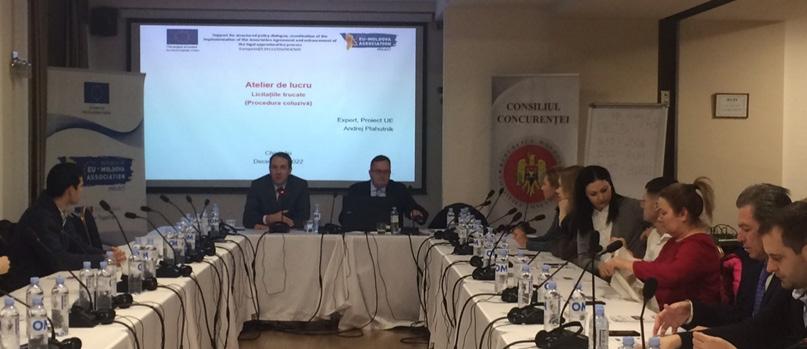
made round tables in close cooperation with the Competition Council having in mind the importance of the Competition Law and Policy both with regard to competitiveness of the national economy as well as with regard to the accession process.
Republic of Moldova achieved the EU candidate status in June 2022 and the level of legal approximation and especially its implementation shall not be the subject of the (pre)accession negotiations only, but also a very important element even before in the expected screening process and may have an influential effect on determination of the related benchmarks, especially in Chapter 8, covering Competition and State Aid.
The workshop on economic and legal assessment of mergers that was held on 13 December 2022 provided detailed elaboration on different aspects of merger review inter alia with specific focus on economic and legal thresholds that must be considered when reviewing different types of concentrations of undertakings on the market. This specific workshop was in fact a continuation of the topic that was presented
on 27 October, dealing with economic and structural indicators. Detailed elaboration of economic and structural indicators is one of the key objectives of the market understanding in both, Antitrust (detecting collusive practices and abusive behaviour) as well as merger control.
The workshop held on 13 December 2022 provided a comprehensive view on different types of legal thresholds, especially regarding de facto taking over the decisive influence and thus ability to decide about competitive parameters of the “target” undertakings on the market.
A special part of the workshop was dedicated to remedies in case of mergers that may represent a competition concern as well as the role of trustees in such cases. Nontransparent ownership of the companies intending/exercising control over the target
companies represents a specific challenge in merger review, nevertheless there is no clear answer to this demanding open issue if there is no possibility of extensive cooperation with other institutions that have relevant information about market activities, like e.g., Securities Market Agency, etc.
The workshop also provided a detailed elaboration of different “landmark” merger cases to present specific challenges in identifying relevant market, test to be applied in determination the “significant lessening of competition” as well as elements for prohibition of intended mergers as well as identifying the elements for approval of the mergers that may “at first glance” seem to be critical regarding potential competition concerns.
Economic and structural indicators are also inevitable element when detecting collusive practices, usually described as restrictive agreements; such agreements aiming in price fixing and market sharing are known as hard-core cartels. A special and most harmful form of collusive practices is bid rigging, known also as collusive tendering. The roundtable which was focused on detailed elaboration of bid rigging (collusive tendering) was realised on 15 December 2022, attended by representatives from the Competition Council and other institutions that are also in charge of detecting and prohibiting such unlawful practices.
Bid rigging as a particular form of collusive price-fixing behaviour by which firms coordinate their bids on procurement or project contracts, is a specific infringement that appears in the (public) procurement practices and represents not only the breach
of the competition laws, but also other connected legislation, especially the one dealing with public procurement as well as with corruption.
The roundtable discussion highlighted the most challenging issues connected with public procurement. Although public procurement is understood to grant efficient use of public funds and represents an open door for competition on the market, on the other public procurement represents a playground for collusive and corruption practices. All these elements were elaborated in detail.
The all roundtables and workshops realised by the project in close cooperation with the Competition Council in October and December 2022 were very well attended by the Competition Council staff and Plenum as well as with representatives from other institutions. These training process may be further developed with specific training on Competition Law and Policy and its enforcement for other important stakeholders, the judiciary, business society, sector regulators etc., as the level of the competition culture depends on all, the enforcers as well as the market participants. The EU-funded project “Support for structured policy dialogue, coordination of the implementation of the Association Agreement and enhancement of the legal approximation process in the Republic of Moldova” aims at increasing the capacities of the Moldovan Government and other key national institutions in implementing the EU-Republic of Moldova Association Agreement.
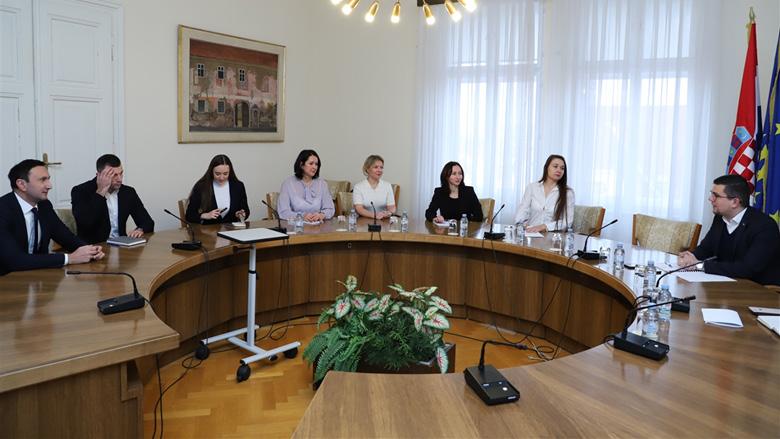
During 13-15 December 2022, the EU funded project: “Support for structured policy dialogue, coordination of the implementation of the Association Agreement and enhancement of the legal approximation process” organised a study visit to the Parliament of Croatia, in close partnership with the Secretariat of the Parliament of Moldova. Six staff members from parliamentary committees, the legal department and Speaker’s Office got acquainted with the roles of the Croatian Parliament in the EU accession negotiations, the legal harmonisation process, cooperation between Parliament and Government and
monitoring and reporting on the EU-related commitments.
In particular, the study visit allowed the members of the delegation to familiarise themselves with the roles and responsibilities of the parliamentary Committee on European Affairs. The Croatian Parliament established the European Affairs Committee in 2000, one year before signing the Stabilization and Association Agreement. The Committee was monitoring the harmonization of the legal framework of the Republic of Croatia with the European Union acquis based on the Government Programme for the Harmonisation of Legislation.

Keeping political consensus related to EU accession and informing the general public, civil society and media about European integration process was another task of the Croatian Parliament. To this effect, the Croatian Parliament established the National Committee for monitoring the accession negotiations formed by the Speaker and Deputy Speaker of Parliament, five Members of Parliament from the government majority and five from the opposition, representatives from academia, and the Employees’ Association.
The process of legislative alignment with EU acquis required organisational development and adaptation at all levels of the central government. In order to ensure an effective harmonisation process, the Parliament of Croatia revised its Rules of Procedures. Thus, for EU marked legislation submitted by the Government, the Parliament of Croatia applied a fast-track procedure, adopting EU
harmonised legislation in one reading. Prior to approval, the EU Affairs Committee had the task to carry out a compatibility check of proposed legislation.
The national EU coordination mechanism, planning documents used for EU acquis transposition, the role of the Croatian mission to the EU in the accession process and IT tools that facilitate the process were among the topics also discussed during the visit.
The EU-funded project “Support for structured policy dialogue, coordination of the implementation of the Association Agreement and enhancement of the legal approximation process in the Republic of Moldova” aims at increasing the capacities of the Government of the Republic of Moldova and other key national institutions in implementing the EU-Republic of Moldova Association Agreement.
During 6 December to 14 December 2022, the EU-funded project “Support for structured policy dialogue, coordination of the implementation of the Association Agreement (AA) and enhancement of the legal approximation process for the Republic of Moldova” organised four roundtables on EU approximation and the Moldova’s future EU accession process. Roundtables were organised in Chișinău for civil servants working on approximation process in the Government of Moldova.
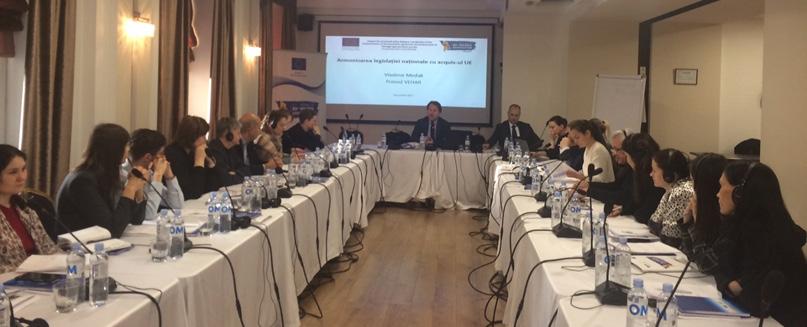
Approximately 140 civil servants took part in these four roundtables, coming from: the Ministry of Foreign Affairs and European Integration, the Ministry of Justice, the Ministry of Interior, Ministry of Defence, the Ministry of Economy, the Ministry of Finance, the Ministry for Social Affairs, the Ministry of Agriculture, the Ministry of Health, the Ministry for Environment, the Ministry
of Culture, the Ministry of Education, the Ministry for Infrastructure, the National Agency for Food Safety, the National Statistical Bureau, the National Centre for Data Protection, the Competition Council, the Agency for Intellectual Property, the Agency for Medicines and Medical Devices, and the Parliament’s civil service.
Approximation of the national legislation with the EU acquis is one of the cornerstones of EU accession negotiations. After Moldova’s application for EU membership and subsequent gaining the EU Candidate State status on 23 June 2022, such approximation of Moldova’s legislation has now gained the highest priority. With the future opening of accession negotiations approximation will gain additional importance.
The 1993 European Council held in
Copenhagen defined the third criterion for accession to the EU as being “the ability to take on the obligations of membership, including adherence to the aims of political unification as well as Economic and Monetary Union (EMU)”. A country which wishes to join the EU must approximate its national legislation with the EU acquis during the EU accession negotiations. The EU acquis, as such, is not a subject of the country’s EU accession negotiations as the country must
Approximation of national legislation with the EU acquis –working sessions for the civil servants of the Republic of Moldova
implement the entire EU acquis. Instead, the country negotiates about “how” and “when” it will fully implement the entire EU acquis in its legal system.
This approach has been applied since 1973 and the first wave of enlargement of the European Economic Community (which later became the European Union). As of the day of accession, the EU acquis will be implemented in the territory of a new EU Member State in the same way as it is implemented in the territories of all other EU Member States. The only exceptions to this rule are possible transitional arrangements that can be exceptionally agreed during the accession negotiations. These exceptions are negotiated taking into consideration the specific situation in a Candidate country and allow it not to fully implement certain (specifically defined) EU acts in its territory for a limited period after its accession or to implement it in a specific way. These exceptions are very limited in time and scope.
The main topics discussed during the roundtable included: i) the EU law and sources of approximation obligation for Moldova, ii) general rules and principles of approximation of legislation with the EU acquis, iii) legal approximation in Moldova, iv) basic information on steps in accession negotiations and on the National Program for the Adoption of the Acquis, v) role of the Parliament in the EU accession process.
Roundtable was conducted by Mr. Primož Vehar, Project Team Leader and the former senior official within the Legislative Office of the Government of Slovenia responsible for legal approximation, and the former Head of the Secretariat of the Committee on EU Affairs in the Slovenian Parliament, and Mr. Vladimir Medjak, former Assistant Director of the Serbia Government Office for European Integration (who was responsible for the harmonisation of legislation and AA implementation) and former Chief Lawyer of Serbia’s accession negotiation team. Representatives of the Centre for Legal Approximation of the Government of Moldova took an active role in all roundtables and gave explanation on the process of the approximation in Moldova. The experts explained the scope of the EU law, sources of EU law, types of EU legal acts, evolution of EU law, steps in the approximation process, types and levels of approximation, methods and techniques of transposing the EU legislation into national legislation, practical tips what to do and what not to do in the process, they elaborated on steps and requirements of the process of approximation in Moldova. Experts gave basic information on the accession process and the importance of and the place of approximation of legislation within the process. They paid particular attention to the role of the national parliament in the process of approximation of legislation and in the process of EU accession negotiations.
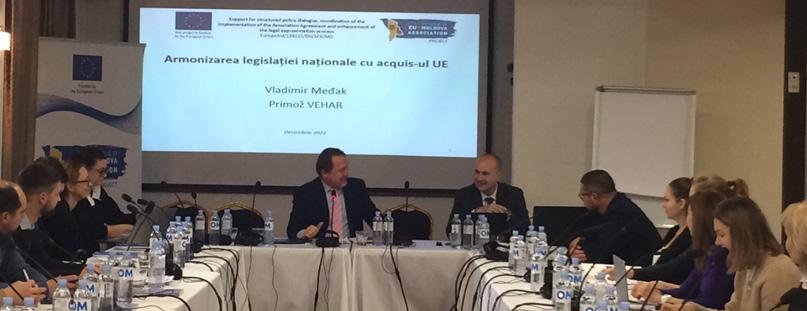
All participants received the “Handbook on the legal approximation as a key element for the successful integration process of the Republic of Moldova in the European Union”, written by both speakers in close cooperation with the experts from the Centre for Legal Approximation. The Handbook which among other issues also contains many practical examples and hints for legal approximation as well as presents the accession negotiations process, will be publicly presented on 12 January 2023 in
Europa Café in Chișinău . The EU-funded project “Support for structured policy dialogue, coordination of the implementation of the Association Agreement and enhancement of the legal approximation process in the Republic of Moldova” aims at increasing the capacities of the Moldovan Government and other key national institutions in implementing the EU-Republic of Moldova Association Agreement.

The study visits for the representatives of the Council for preventing and eliminating discrimination and ensuring equality of the Republic of Moldova (Equality Council) to institutions in the anti-discrimination field in Romania took place on 13-14 December 2022.
Meetings with National Council for Combating Discrimination of Romania, the Romanian People’s Advocate and the Constitutional Court of Romania were focused on the relation between the equality bodies and judiciary on anti-discrimination
in handling cases of discrimination, hate speech and hate crimes, and the practice of constitutional instances’ jurisprudence for respecting the principle of equality and nondiscrimination.
In addition to peer exchanges and meetings with state institutions, the representatives of the Moldovan Equality Council met the Romanian Association Accept, active in the field of LGBTI rights, and discussed the cooperation between equality bodies and civil society organisations in protecting the rights of vulnerable communities.
This visit enabled participants to share their experiences and opinions, to learn from the experience of Romanian institutions and their examples of good practices in the field. Also, this activity consolidated and enhanced peer-to-peer exchanges, which are relevant for further promotion of equally and anti-discrimination in the Republic of Moldova.
This activity was organised jointly within the European Union and the Council of Europe
projects “Strengthening access to justice through non-judicial redress mechanisms for victims of discrimination, hate speech and hate crimes in the Eastern Partnership” and ”Strengthening the capacities of the justice sector actors to deliver justice in line with European standards, in particular to fight discrimination in the Republic of Moldova”, implemented in the framework of the programme “Partnership for Good Governance II, 2019-2022”.
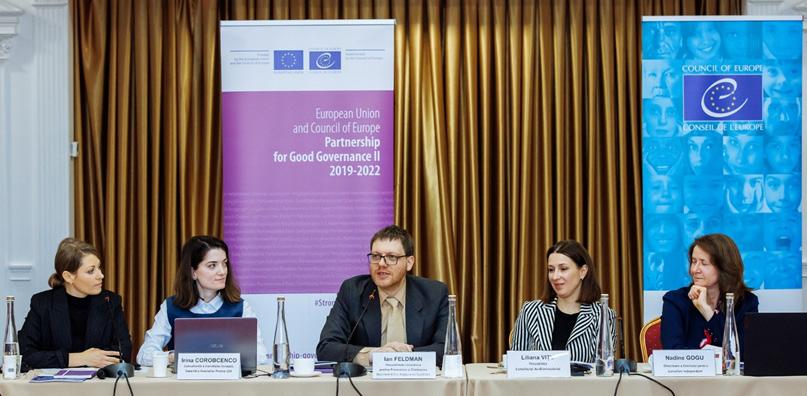
The presentation of the Guide on combating hate speech in the media in the Republic of Moldova was organised by the joint European Union and the Council of Europe project “Strengthening access to justice through non-judicial redress mechanisms for victims of discrimination, hate speech and hate crimes in the Eastern Partnership”, part of the programme “Partnership for Good Governance II, 2019-2022, in cooperation with the Audiovisual Council.
The event brought together the members and staff of the Audiovisual Council, media stakeholders, representatives of state and non-state actors in the field of antidiscrimination to present the guide and to strengthen the platform of communication among the media actors in the Republic of Moldova, in view of preventing and combating hate speech when appearing in audio-visual media. In the opening and closing part, the following remarks were made by:
`In the times when the hate speech is increasing, both offline and online across the whole continent, it is essential that states and all relevant actors contribute to the improvement of legal and institutional framework, but also to practices addressing these challenges. This Guide is a step forward in that direction. It contributes to the skills of the Audiovisual Council, but also of media broadcasters and other stakeholders to recognise and deal with the hate speech issues in line with European standards, also
important from the new European perspective of the country`,
mentionedWilliam
MASSOLIN,Head of the Council of Europe office in Chișinău.
`The EU welcomes the publication of the Guide for assessing and processing hate speech cases, which was created by the Council of Europe under the EU-Council of Europe Partnership for Good Governance.
This guide provides advice, directions and recommendations to Moldovan authorities on practical questions related to evaluating, decision-making, sanctioning, and the creation of statistical data on individual cases in Moldova. As such, it serves as a valuable source of reference in their daily work. The EU remains committed to support the fight against hate crime and hate speech, which negatively affects individual victims and pluralistic societies in whole`,
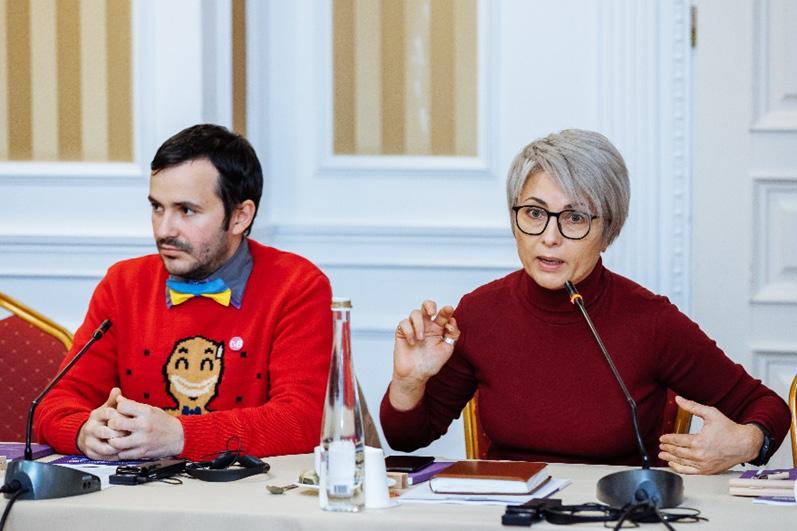 stated Eduard PESENDORFER, Project Manager, European Union Delegation in the Republic of Moldova.
stated Eduard PESENDORFER, Project Manager, European Union Delegation in the Republic of Moldova.
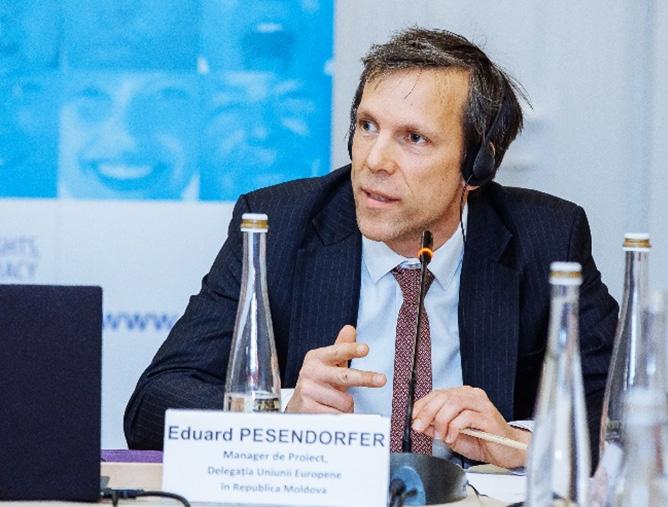
`The Guide on Combating hate speech in the media in the Republic of Moldova presented today, is a tool to support the Audiovisual Council and other authorities from the Republic of Moldova. It can help us in monitoring cases of hate speech in the audiovisual environment and in combating unacceptable forms of expression in audiovisual programmes and services`, highlighted Liliana VIȚU, Chair of the Audiovisual Council of the Republic of Moldova
As concluding remarks, participants agreed upon the future directions of joint work on combating hate speech in the media environment in the Republic of Moldova, highlighting the importance of synergies and common efforts to ensure prevention of hate speech, especially in the public sphere. The adoption of this Guide as an official methodology of the Audiovisual Council will allow for a new, efficient mechanism for monitoring, assessing and processing potential hate speech cases in the media by the regulatory authority and contribute to combating inacceptable forms of expression in audio-visual media programmes and services in the Republic of Moldova,
The organisation of public services through inter-community cooperation, exchange of experience of local public authorities (LPAs) from France and the Republic of Moldova are the subject of the international conference ‘Inter-community cooperation in the provision of local public services: water, waste management, energy efficiency, transport and mobility’ which took place on 15-16 December in Chișinău.
The event was organised by the French Embassy in the Republic of Moldova, with the support of the French Ministry of Foreign
Affairs and in partnership with the EU-funded programme ‘EU4Moldova: Focal Regions’, implemented by UNDP and UNICEF.
France is supporting improvements in the provision of local public services such as water, sanitation and waste management in a number of localities across Moldova.
Opening the event, the Ambassador of France to the Republic of Moldova, Graham Paul said,
‘Beyond bilateral relations between states, the cooperation between local authorities, known as decentralised cooperation, offers concrete opportunities for action, as local as possible and as close to the people. The most effective and cost-effective response is not always to be found at the level of an isolated municipality, which is why we thought it would be useful to discuss the solutions that can be offered
by inter-communal cooperation. It provides a legal and operational framework that allows local authorities to pool their resources to jointly tackle the identified challenges.’
The messages of the speakers and participants highlighted the importance of organising public services through intercommunal cooperation, which helps to rationalise, streamline and increase the quality of public service delivery, save resources and provide the necessary framework for the regionalisation of services. The organisation of local public services through inter-communal cooperation is one of the main elements in strengthening regional competitiveness.

‘Through our work at local and regional level, UNDP has extensively focused on improving public service provision for an inclusive and equitable growth of local communities. Today, we will be able to share our latest experience in supporting intermunicipal cooperation, as part of the EU4Moldova: Focal Regions Programme’, said Dima Al-Khatib, UNDP Resident Representative in the Republic of Moldova.
The conference discussed the role of LPAs at district, city and commune level in the regionalisation of public services; the rights
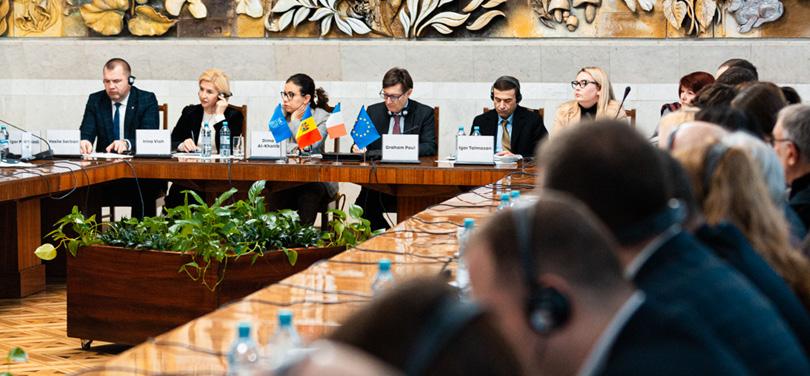
and obligations of LPAs in the management of public services, the challenges and solutions to the regionalisation of public services; the institutional framework and modus operandi, the challenges and solutions at different stages of development, the programs for the development of public services through intercommunal cooperation and regionalisation, etc.
The conference ‘Inter-community cooperation in the provision of local public services: water, waste management, energy efficiency, transport and mobility’ brought together over 100 expert participants, development partners, representatives of local and central public authorities from France and Moldova.
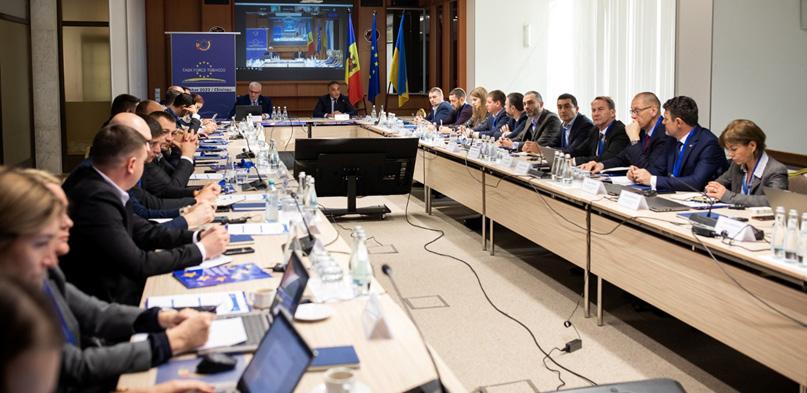
On 9 November 2022, the EU Border Assistance Mission to Moldova and Ukraine (EUBAM) held the annual Task Force Tobacco meeting in Chișinău. Representatives from law enforcement agencies of the Republic of Moldova, Ukraine, Poland, Romania, SELEC, Europol and OLAF, as well as the private sector, examined the implications of Russia’s war of aggression on the illicit cigarette trade in Europe.
The meeting concentrated on three topical
issues – new trends in illicit cigarette trade, changes in smuggling routes and investigation of illegal manufacturing. During the meeting, the business sector presented its overview on the European illicit cigarette markets; the representatives of the EU agencies talked about the results and most effective methods of combating illicit cigarette manufacturing; and Ukrainian and Moldovan officials shared insights on the recently dismantled illegal cigarette manufacturing sites in their countries.
All parties concluded that the war had changed the economic landscape and influenced the patterns of the illicit tobacco trade. The sanctions imposed on Russia and Belarus and the blockade of some transport corridors have significantly decreased the smuggling of cigarettes to the EU but resulted in the increase of illicit cigarette manufacturing there. Therefore, the participants emphasised the need to strengthen surveillance over raw materials for cigarette production and listed specific
risk indicators to detect illicit trafficking at the earliest opportunity to better cope with that phenomenon.
The European Union Border Assistance Mission to Moldova and Ukraine (EUBAM) launched Task Force Tobacco in 2010. It offers a platform for law enforcement agencies of the Republic of Moldova, Ukraine, Poland, and Romania, as well as EU agencies and the private sector, to combat illicit tobacco trade.
The Directorate General for Trade of the European Commission (DG Trade) officials visited the Moldova-Ukraine and Moldova-Romania border crossing points in Giurgiulești area to receive the first-hand experience on the implementation of EUUkraine Solidarity Lanes initiative.
On 18 November, the EU Border Assistance Mission to Moldova and Ukraine (EUBAM) together with the EU Delegation to the Republic of Moldova organised a factfinding visit to the South of the Republic of Moldova for officials from DG Trade and EU Delegations from Eastern Partnership and
Western Balkan countries. The EU officials visited two Moldovan border crossing points Giurgiulești-Reni and Giurgiulești-Galați, where they were able to see with their own eyes the efforts of the Moldovan Customs and Border agencies that are aimed at supporting EU-launched Solidarity Lanes Initiative. At the same time a visit was paid to International Free Port Giurgiulești, so that the participants could accustom themselves with the peculiarities of the Port’s terminals work and witness the forwarding and transport operations through the Danube route.
During the visit, the Head of EUBAM Slawomir Pichor presented the Mission’s support for implementing the EU-led Solidarity Lanes Initiative. In the same vein, the Head of Mission informed EU representatives on the current situation in the area, emphasising the need for assistance in upgrading border
infrastructure. The Head of EUBAM also advocated for investment in IT solutions to further facilitate the movement of Ukrainian agricultural export, such as “e-Booking TRUCK” system that enables customers carrying out international road transport operations to reserve the date and the time
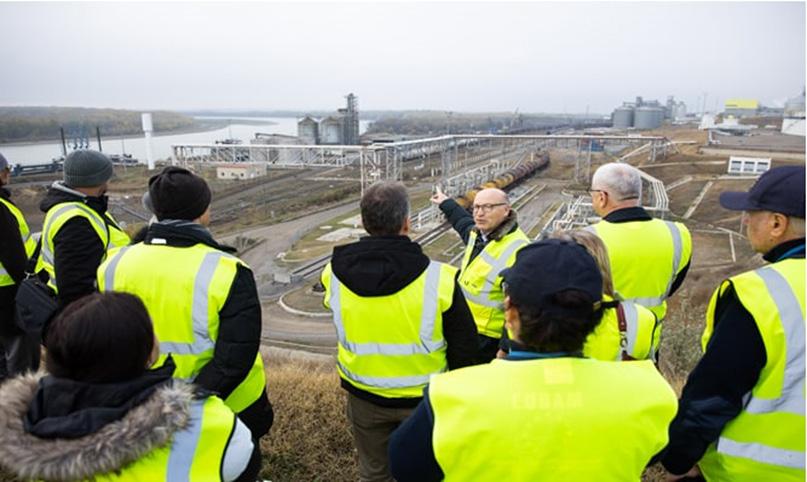
of the Customs control services in advance. From his side, Deputy Head of the Customs House South, Andrei Botnari briefed the visitors on efforts of Moldovan Customs Service to reduce unprecedented queues at Moldovan borders with Ukraine and Romania and ease the strain on the transport bottlenecks.
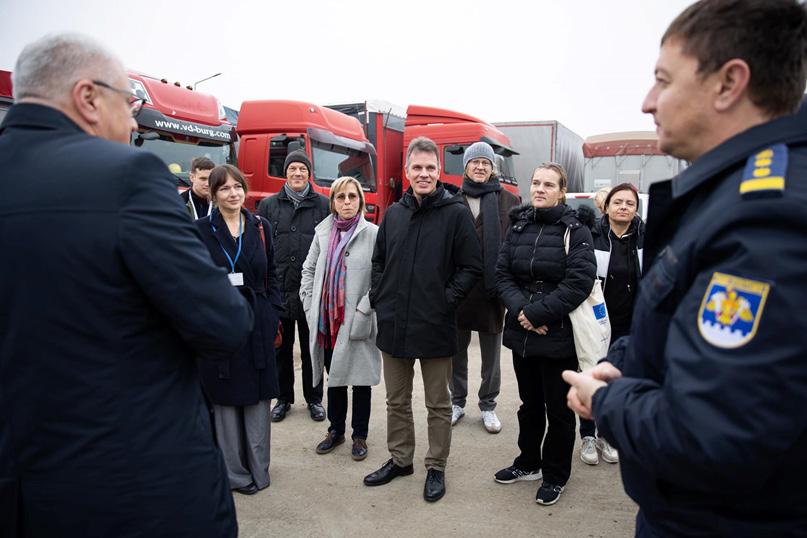
Within the framework of the visit, DG Trade and EU Delegations’ officials were able to
see the situation on the ground, in particular traffic bottlenecks that hinder the movement of cargo. In this regard, EU representatives were able to gather valuable information, map out main challenges and assess needs in cooperation with Moldovan authorities, which overall, will be beneficial for the functionality of the Solidarity Lanes and export of Ukrainian agricultural products throughout the alternative transport corridors.
Eleven Moldovan customs officers strengthened their skills in interpreting X-ray images during the week of 21-25 November 2022. The EUBAM and Celbet organised the event to enhance the skills to properly arrange X-ray scanning processes, recognising when a scan shows forbidden goods transported by different means.
The week-long training consisted of a practical part at the Training Centre of the Customs Service on interpreting X-ray images. At the Leușeni border crossing point, the participants learned more about the organisation of the scanning process and the benefits of implementing nonintrusive inspections during customs clearance.
This kind of training will strengthen the capabilities of the Customs Service to prevent and counter the flow of illegal goods at the border and to carry out checks using
non-intrusive equipment. As this was the “Train the Trainers” format, the 11 officers can return to their duty stations and pass on the knowledge to their colleagues.
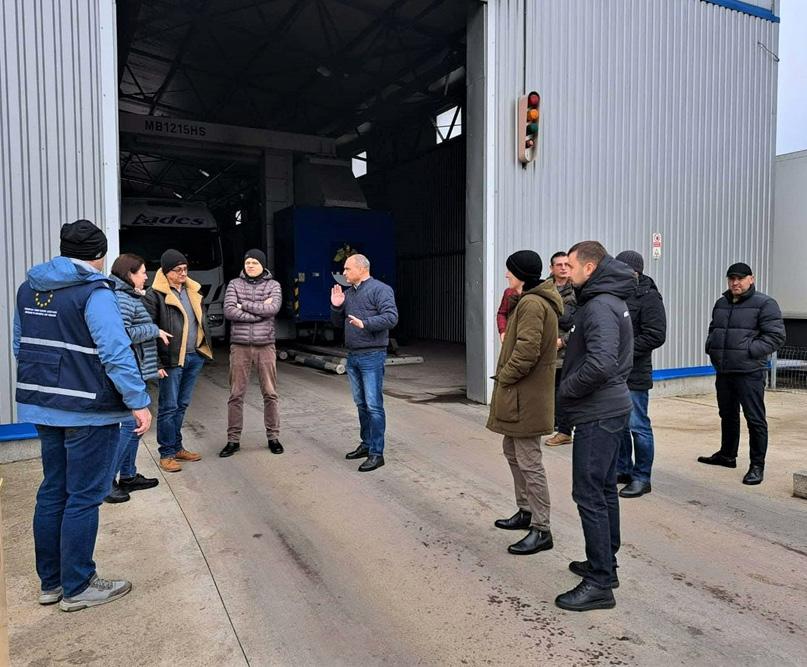
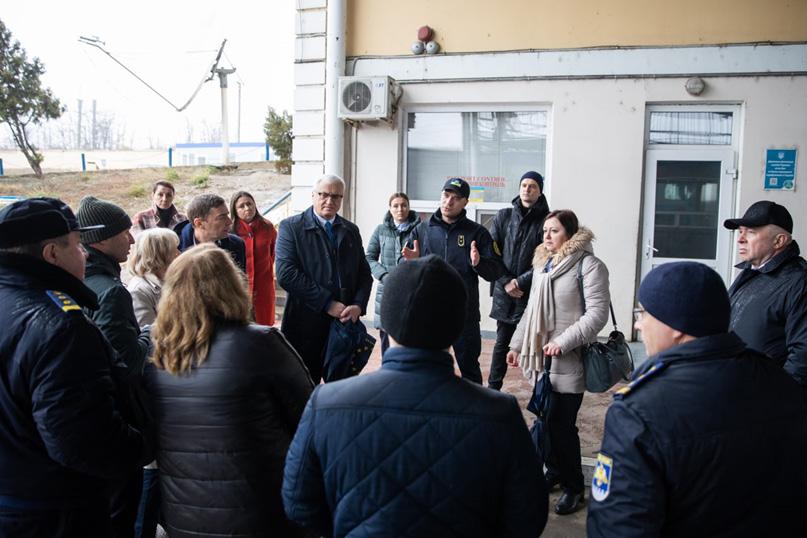
Under the auspices of the EU Border Assistance Mission to Moldova and Ukraine (EUBAM), trilateral meeting in Giurgiulești, brought together Moldovan, Romanian and
Ukrainian customs authorities to enhance the response to arising emergency and to improve cargo flow in Reni-GiurgiuleștiGalați area.
One of the essential routes from Ukraine to the EU runs through the Republic of Moldova (Giurgiulești-Reni) and further on to Romania (Giurgiulești-Galați). With the onset of Russian war of aggression and blockade of maritime transportation corridors, these roads in the South are of a vital importance for Ukrainian economy, both in terms of export of agricultural goods and import of so much needed fuel and humanitarian aid. Now, with the intensification of indiscriminate Russian missile strikes at Ukrainian critical infrastructure, the borders between these
three countries are even more overloaded and to get from Ukraine to Romania through Moldova for one truck, it can take more than a week.
That’s why, on 8 December 2022, in Giurgiulești (Moldova), EUBAM convened a working meeting with management of the regional customs authorities from the Republic of Moldova, Romania, and Ukraine. The participants examined current situation at the borders between the three countries in Reni-Giurgiulești-Galați triangle, looking for practical solutions to alleviate the pressure
on the overloaded border infrastructure. During the meeting, the parties discussed possible ways to optimise contingency procedures to better manage the cargo traffic in case of emergency power outages. The sides noted the importance of delivering new generators, fuel, and uninterruptible power supply systems for Border Crossing Points in Reni-Giurgiulești-Galați area. At the same time representatives of the three customs agencies explored possibilities to enhance organisation of cargo traffic. For instance, the sides indicated the possibility of re-directing trucks to less congested BCPs and revitalising the work of additional BCPs in vicinity of Giurgiulești-Reni.
While discussing the current situation at strategic level, the participants highlighted a need for the swift opening of the Basarabeasca-Berezino rail connection that will allow the daily transportation of more than ten thousand tons of cargo, thus significantly reducing the congestion at the Moldova-Ukraine road BCPs. Parties also underlined the importance of broader use of NCTS for streamlining the cargo flow and increasing awareness of Ukrainian business to use it more actively. In the end, the sides agreed to coordinate joint actions and continue cooperation in handling emergency situations caused by indiscriminate Russian missile strikes.

The conference dedicated to consultations on the concept of the Strategy of public administration reform in the Republic of Moldova took place in Chișinău, on 28-29 November. As a candidate country for joining the European Union, Moldova is committed to updating the strategic and political framework of public administration reform, and the Conference aimed to advance the consultation process of the Strategy by initiating a broad and open dialogue on all its components. Special attention was
given to the reform options and solutions for increasing the capacities of local public administrations (LPAs).
The public debate process aimed to improve the Strategy through extensive consultations with local actors - representatives of the central and local public administration, including representatives of the Congress of Local Authorities from Moldova (CALM), national and international experts and representatives of the associative sector.
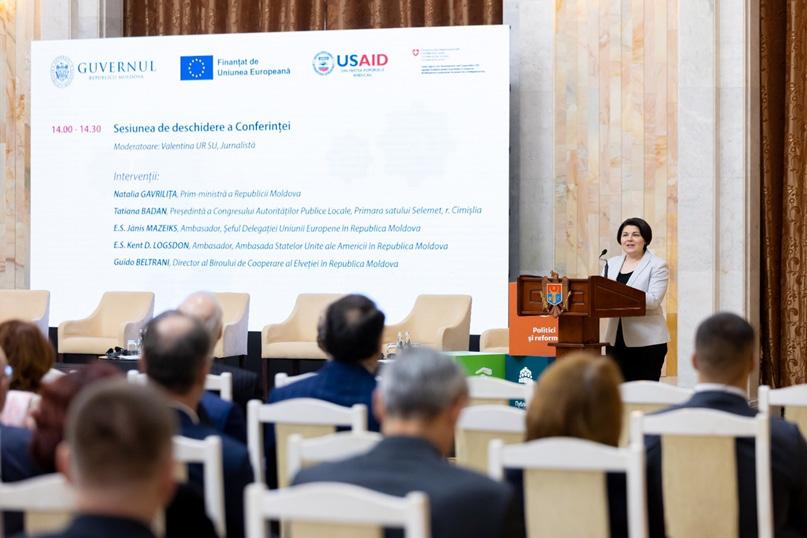
At the opening of the event, the Prime Minister of the Republic of Moldova, Natalia Gavrilița, stated:
"First of all, the central administration must be more efficient. We need a simple, clear and transparent legal and institutional framework. We need to eliminate overlapping powers between institutions and ensure inter-
institutional coordination, better synergies between all central structures. It is a need dictated not only by the requirements of European integration, but also by our commitment to spend public money efficiently and strictly for the benefit of the people," concluded the official.
For his part, the EU Ambassador to Moldova, Jānis Mažeiks, mentioned the important period that the Republic of Moldova is going through on its European path:
"Public administration reform is one of the processes that will demonstrate the maturity of Moldovan society, of its political and social actors. The goal of the reform is an effective and efficient public administration, with professional, competent, independent civil servants who provide accessible services for the benefit of all citizens, both at the central and local level."
Over the course of two days, the guidelines for public administration reform in the coming years were presented in terms of the new requirements determined by the accession process of the Republic of Moldova to the EU and the country's commitment to implement them.
Considering the complexity of the topics addressed, the support given to the Moldovan Government by the development partners is a confirmation of their openness to support Moldova's efforts in advancing the consultation process and implementation of the Public Administration Reform Strategy and strengthening the country's European path. The conference was organised with the support of the European Union, the US Agency for International Development (USAID) and the Swiss Agency for Development and Cooperation (SDC) and took place over two days, on November 28 and 29, 2022.
"Decentralisation and administrative-territorial reform is necessary not only for citizensgiven the fragmentation and limited fiscal capacities of local public authorities. This is necessary, especially for local public authorities. Fragmented local authorities have limited capacity to deliver quality services to citizens. Local democracy, local selfgovernment does not only mean being close to the people, but also having the power to change realities. Regarding the allocation of resources from the central level to the local level, this should be done on the basis of strict and transparent criteria to avoid inequalities and tensions."
The draft of the Public Administration Reform Strategy can be consulted at https://particip. gov.md/ro/download_attachment/17480
The conference can be watched live at https://www.privesc.eu/Arhiva/1012
More than 150 officials at managerial level within the Central Apparatus of the Customs Service, as well as regional Customs Offices, participated in training sessions on Change Management and Communication, held with the aim of supporting the organisational development process of the Customs Service and strengthening the professional skills of its civil servants.
The training sessions were organised with the support of the European Union, through
its "EU High Level Advisers’ Mission", with Veronica Sirețeanu, expert within the Mission, as trainer. The characteristics of change, its stages, attitude towards change, reaction to it - these and many other topics were presented in the course. Thus, in addition to the theory presented by the moderator, participants analysed various case studies and outlined a series of behavioural norms to deal with situations of change within the institution.
Vutcariov, thanked the organisers and mentioned that this course is important in light of the fact that the Customs Service tends to modernise and increase the transparency of its activities through efficient communication and consolidated management.
To be noted that, in October, the Customs Service launched a new Communication Strategy accompanied by an action plan, developed with the support of the European Union through its EU High Level Advisers Mission, with the aim of establishing a clear interaction framework both internally, as well as externally, and identification of the right channels and tools in this regard.
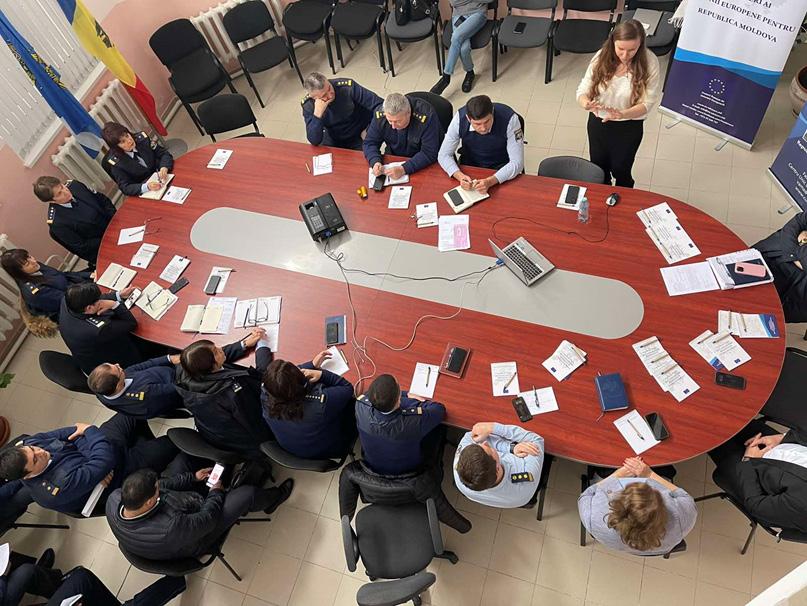

A closing event marking the end of the fouryear implementation period of the EU High Level Advisers’ Mission took place on 13 December, bringing together state officials, representatives of the European Union Delegation to the Republic of Moldova, EU High Level Advisers and project counterparts. Over the course of four years, EU High Level Advisers have been providing support to Moldovan public institutions in implementing the reforms agenda, in particular assisting
integration path. The following sectors benefitted from the strategic policy advice: Anticorruption; Anti-Money Laundering and Asset Recovery; Confidence Building Measures; Customs and Tax Policy (Domestic Revenue Mobilisation); Diplomatic and European Affairs; Education and Research; Energy; Financial Services; Green Transition; Internal Security Affairs; Justice and Prosecution; Local Public Administration Reform, including Decentralisation and Voluntary Amalgamation; Reforms Coordination; Strategic Coordination and European Affairs. Fifteen institutions received the advice of top EU experts in their
At the closing event, the Prime Minister of the Republic of Moldova, Natalia Gavrilita, stated that the EU assistance through its High-Level Advisers’ Mission has proven to be one of the most efficient assistance programmes in the development of public policies and resulted in numerous reforms and modernisation in the public system of the country. The official expressed her hope for the continuation of the project and increase of supported sectors: ‘At this stage, the necessary transformations and reforms have a clear roadmap, imposed by our objective of EU membership, and the expertise of senior EU advisers in this process will be extremely valuable.’
In his turn, the EU Ambassador to the Republic of Moldova, Jānis Mažeiks, noted
'The High Level Advisors Mission is not a mere project, but a long standing support programme that the EU is providing to the Republic of Moldova since 2011, and we will continue to provide in the future as well.'
A new phase of the EU High Level Advisers’ Mission is envisaged to start in January 2023.
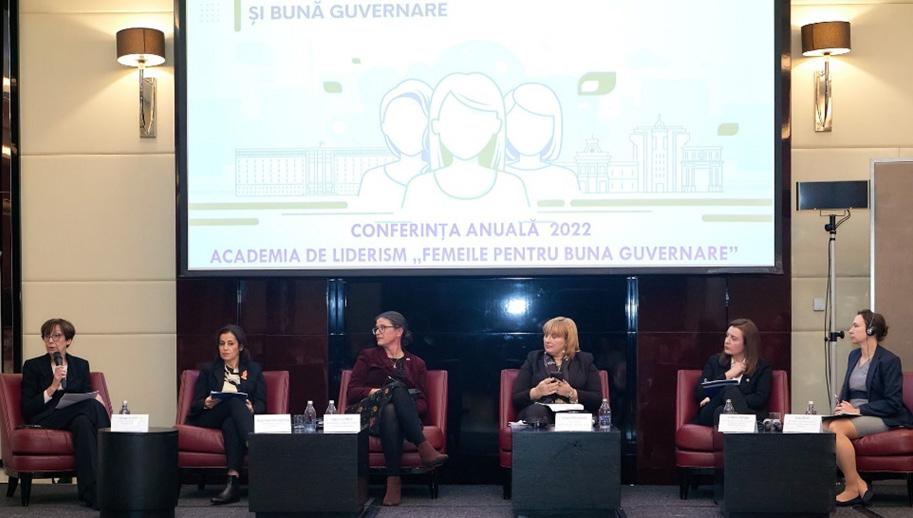
More than 150 alumni of the Women for Good Governance Academy participated on 9 December in the 2022 Annual Conference. The Academy is one of the activities of the Partnerships for Women Leadership and Good Governance project, implemented by Friedrich-Ebert-Stiftung Moldova and Institutum Virtutes Civilis with the financial support of the European Union and Friedrich Ebert Stiftung. Between November 2021 and
November 2022, the Academy participants received training and guidance on how to get involved in decision-making processes in their communities, how to identify the challenges that citizens face and engage with the community in solving them, as well as how to build a successful election campaign when they decide to run for an elective office.
In her opening address, the Moldovan Prime Minister, Natalia Gavrilița, expressed hope that the skills and knowledge the participants acquired during the Academy program will inspire them to contribute to making a meaningful change in their communities.
"I am convinced that each of the participants of the Academy will contribute to our common goal of making women’s voices heard in every
community of our country. Each of you can, by own example and taking on the role of a leader, motivate and inspire other women. I am convinced that women can do everything and that there are no limits to capitalising on one's own intellectual and human potential", the Prime Minister Natalia Gavrilita says.
"Evidence shows that when women are given equal opportunities, access to resources and to decision-making communities are more prosperous and peaceful. Equality between women and men is a fundamental value of the European Union. The EU supports the interventions where girls' and women's rights are claimed, so that everyone is able to reach their potential to contribute to a better society", said Jānis Mažeiks, Ambassador of the European Union to the Republic of Moldova.
The President of the NGO "Instiututum Virtutes Civilis", Liliana Palihovici, mentioned that the Academy was launched as a project that offers to the Moldovan active women unique opportunities for professional and personal development, insights into the decision-making processes and development of personal strategies for effective participation in governance processes.
"We are happy that some of the Academy graduates have been elected to public positions proving that they are transformative leaders. Our expectation is that the Academy graduates from the 2021 and 2022 edition will capitalise on the knowledge gained in the Academy in the years to come and will become champions of change and good governance in their communities. This will help us all build together a society with consolidated democracy, a society of equity and well-being",
Mrs. Palihovici added.
The Director of Friedrich-Ebert-Stiftung Moldova, Ana Mihailov, mentioned that the experience gained in the Academy encourages the participants take a proactive role in the social and political life of the Republic of Moldova.
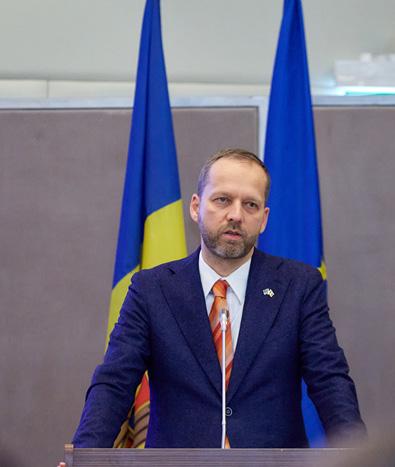
"Many of our graduates have political aspirations, and I really hope that the knowledge they acquired in the last months has opened up new horizons for them and given them the courage to involve more actively in the democratic transformation of their communities",
Mrs. Mihailov said.
The Academy graduates come from different regions of the country. Lidia Ostaș is a local councillor in the Congazcicul de Sus village from TAU Găgăuzia. In the upcoming general elections, she plans to run for mayor in her home village. She focused her campaign message on four pillars of development.
"I titled my project - Community for Kindness. From my point of view, the Congazcicul de Sus village needs the following changes: the development of a social project, a centre for young people and the elderly; improving local infrastructure for people with special needs; improving the quality of public services for citizens and encouraging local people to get involved in decision-making. I really want to run in elections and I hope I can convince the citizens that only together we can raise the standard of living in our village",
Lidia says.
Natalia Osipenco is another graduate of the Women for Good Governance Academy. She is currently working in the educational field. She comes from the north of the country, from Tîrsiței village, Telenesti district. She attended the Academy to strengthen her knowledge and skills to be able to solve local problems.
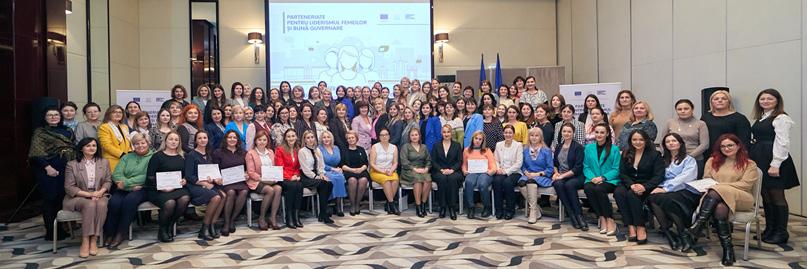
"I am convinced that villages and cities with active women are more likely to develop harmoniously. We, women, make half of the population. So, it is important to make our voices heard. I am glad that I had the opportunity to learn new things, which will be useful both for me and for the people in my community",
believes Natalia.
In November 2022, two workshops for consulting the new normative framework, which will regulate the activity of food support services throughout the country, have been held. The workshops have been carried out with the support of the project “Partnerships for inclusive and resilient social canteen services”, funded by the European Union.
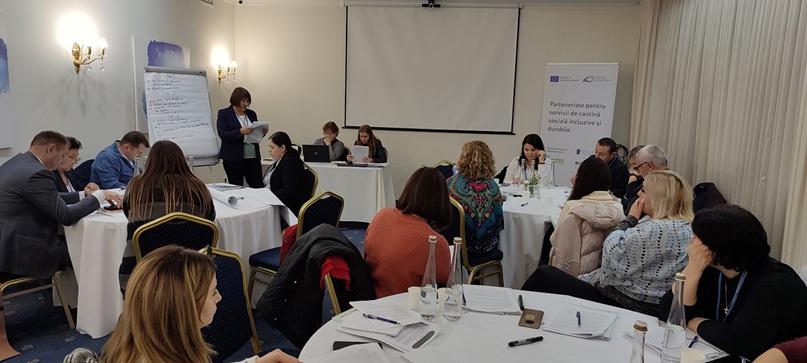
During the workshops, the drafts of a new
Regulatory Framework and the Minimum Quality Standards for social services providing food support were presented. These documents were elaborated, taking into account the recommendations of the Study on the assessment of the situation of social canteen services, carried out within the project, as well as the international experience in providing food support services.
These two documents were consulted with representatives of the Ministry of Labour and Social Protection, representatives of local public authorities, public and private providers of social canteen services and civil society representatives. All of them were invited to offer recommendations and additions.
The projects of the two normative documents will be improved and completed with the recommendations offered by the participants and the final versions of the documents will be presented for approval to the Ministry of Labour and Social Protection. The new normative framework will contribute
to the development of food support services at national level by regulating the activity of public and private providers of food support services. At the same time, the documents will stipulate clear principles related to the way of organising and functioning, aim, objectives and financing of the services.
The project “Partnerships for inclusive and resilient social canteen services”, co-funded and implemented by P.I. “Keystone Moldova”, P.A. “Concordia. Social Projects” and P.I.S.M. “Diaconia”, aims at developing social canteen services to extend the access to the services for people from vulnerable groups.
The normative framework for the functioning of social canteen services in the country has been developed with the EU assistance
A study on the situation of social canteens from the country was carried out within the project “Partnerships for inclusive and resilient social canteen services”, funded by the European Union.
The study performed a mapping of the services to establish the coverage of the social canteen services at country level; at the same time, different forms of providing this type of social service were identified and analysed, and the degree of satisfaction of beneficiaries was assessed.
According to the data collected during the study, there are 93 social canteens in the Republic of Moldova. They offer daily food services to approximately 5,000 people with disabilities, people with low income, elderly people, families with many children and single mothers. Overall, in 2021, over 16,000 vulnerable people benefited from social canteen services; more than 50% of them being elderly people, 63 years old and higher. One third of the services are provided in urban areas, and two thirds are provided in rural areas.
The results of the study were consulted within a workshop with representatives of the Ministry of Labour and Social Protection, the Social Assistance and Family Protection Departments from the country, representatives of local public

authorities, as well as with public and private providers of social canteen services. The data collected within the research and the workshop will be used for the elaboration of the Regulatory Framework and the Minimum Quality Standards for the social services of food support, inclusively, which are to be elaborated by the implementing organisations in partnership with the Ministry of Labour and Social Protection.
“According to the study, the COVID-19 pandemic, the war in Ukraine, the refugee crisis and the energy crisis increased the level of poverty and vulnerability of the population. In this context, the need for social canteen services is much bigger than the possibilities of providing this kind of service. Taking into account the crisis caused by the war in Ukraine, many social canteen services have refugees among their beneficiaries. This is why, it is necessary to develop and extend food support services to make them accessible to a larger number of beneficiaries”, said Ludmila Malcoci, Executive Director of I. P. “Keystone Moldova”, during the workshop.
The implementation period of the project “Partnerships for inclusive and resilient social canteen services”, funded by the European Union, is 1 January, 2022 – 31 December, 2024.
The main beneficiary organisation of the EUfunded Twinning project “Improving spatial data services in the Republic of Moldova following EU standards” – Agency for Land Relations and Cadastre of the Republic of Moldova – continued to implement the planned missions on the pilot project and training sessions in November – December 2022, in cooperation with the experts from Croatian State Geodetic Administration and Faculty of Geodesy from Zagreb University, Croatia. The training sessions are part of the pilot project conducted within the framework of Component 3 of the Twinning project, the aim of which is to prove the applicability of several guidelines in the process of working with spatial data. The topics for 3 training sessions in the last two months included:
» Spatial data geo-referencing,
» Development of spatial data specifications,
» Harmonisation of spatial data.
The participants to the training included representatives from S.E. INGEOCAD, S.E. IPOT, Agency for Public Services / Department
of Cadastre, General Inspectorate for Emergency Situations, S.E. State Roads Administration (ASD), S.E. Institute for Forestry Research and Management (ICAS) and Ungheni City Hall. The acquired knowledge consists of: a) techniques and peculiarities of geo-referencing scanned and processed spatial data, b) principles of INSPIRE data specifications and procedure for the development of own data specifications, as well as c) learning how to work with the open-source software Humbold Hale for data harmonisation purposes. The aim of this pilot project exercise is to help Moldovan officials in their daily work with spatial data, resulting in people’s knowledge and capacity building, and a much better quality of interoperable spatial data sets and associated services.
The Twinning project ”Improving spatial data services in the Republic of Moldova following EU standards” is financed by the European Union and implemented by the Agency for Land Relations and Cadastre (ALRC) of the Republic of Moldova in partnership with counterpart organisations from Croatia, Poland and the Netherlands.

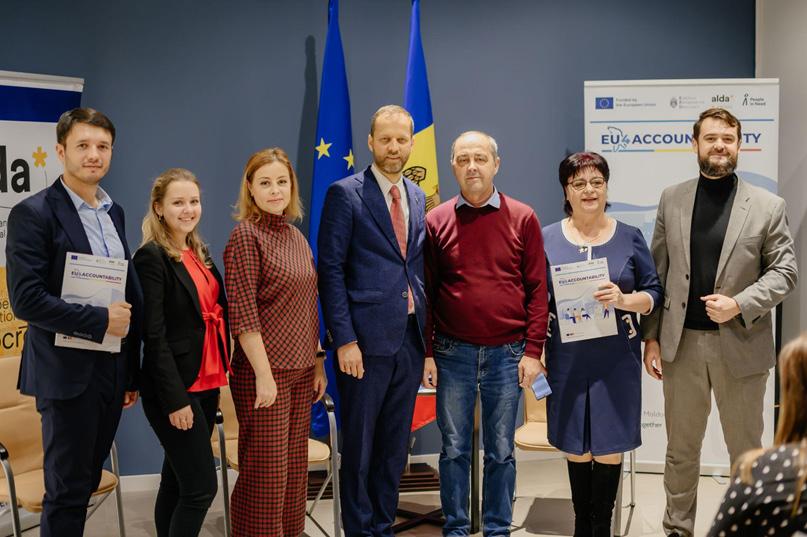
50 Civil society organisations from Cahul, Comrat, Cimișlia, Fălești, Florești, Glodeni, Râșcani, Strășeni, Ștefan Vodă, Telenești were awarded grants for small scale projects worth €775,000. This grant programme is funded by the European Union and managed by the European Association for Local Democracy (ALDA) and the
Czech NGO People in Need (PIN) within the project EU4Accountability. Over the next months, the CSOs involved in the project will be accompanied to monitor public policy, implement social accountability mechanisms, conduct public hearings and support exchanges of experience and best practices.
At the grants award ceremony hosted at the Europe Café, Jānis Mažeiks, the Ambassador of the European Union to the Republic of Moldova, stated:
"The financial support offered today by the European Union will allow CSOs to strengthen their efforts to improve
democratic participation and respond to the concrete needs of citizens (...). This will include public campaigns to raise awareness of the budget process, civic engagement to monitor public spending and policy-making, and participatory budget consultations – all to get citizens and local authorities to jointly choose the
investments that are most needed in their communities. I would like to congratulate the civil society organisations awarded grants under the EU4Accountability action and thank them for their dedication to promoting social responsibility in the Republic of Moldova. With your country's new EU candidacy role, the importance of civil society in moving forward on the accession path is even more evident.”
Social accountability refers to the ability of citizens to exercise their rights to hold the public authorities to account so they implement public policies that include inputs from the civil society. Social accountability leads to more responsive governance, but also to more effective governance and development. It especially helps empower communities and listen to the needs of the most vulnerable people in society. Social accountability tools are to the benefit of all citizens and help create an effective and democratic governance system that leaves no one behind.
Civil society organisations from Cahul, Comrat, Fălești, Glodeni and Râșcani, districts, selected to be part of the project, have already decided what kind of ideas and practices on social responsibility to apply in their communities. They will be supported by People in Need Moldova team that will guide the processes and encourage dialogue between NGOs and local public authorities (LPAs) in the 5 districts. For example, in the Glodeni district, the NGO “Solidarii
neamului” will strengthen the capacities of local NGOs so that they have the knowledge and techniques to monitor the work of LPAs. The NGO “Baștina” in Rascani district will develop civic spirit among citizens so that local civil society can be more involved in decision-making and put pressure on the authorities to take into account the voice of the inhabitants and the priorities they put forward.
Some of the public associations are planning to organise study visits to the country to see and discuss with representatives of local authorities in other districts who are practising participatory budgeting, and the NGO “Moștenitorii” is planning a visit to Romania to learn from the experience of their colleagues in the European Union on social responsibility. Other NGOs will simulate elections, but in a different way –an initiative group will identify a problem in the village, prepare the budget and argue why this problem needs to be solved, present the proposed solution to the villagers, and at the end the citizens will vote. This process will demonstrate to villagers how democracy works and what effective government means, motivating them to be active at community level. At the same time, some of the civil society organisations selected in the EU4Accountability project will receive cofunding to engage in participatory budgeting projects. This diversity of ideas and practices, which will be applied in the target districts of the project, shows the openness of civil society to processes related to social accountability and maps the changes and improvements that will come at community level with the support of the European Union.
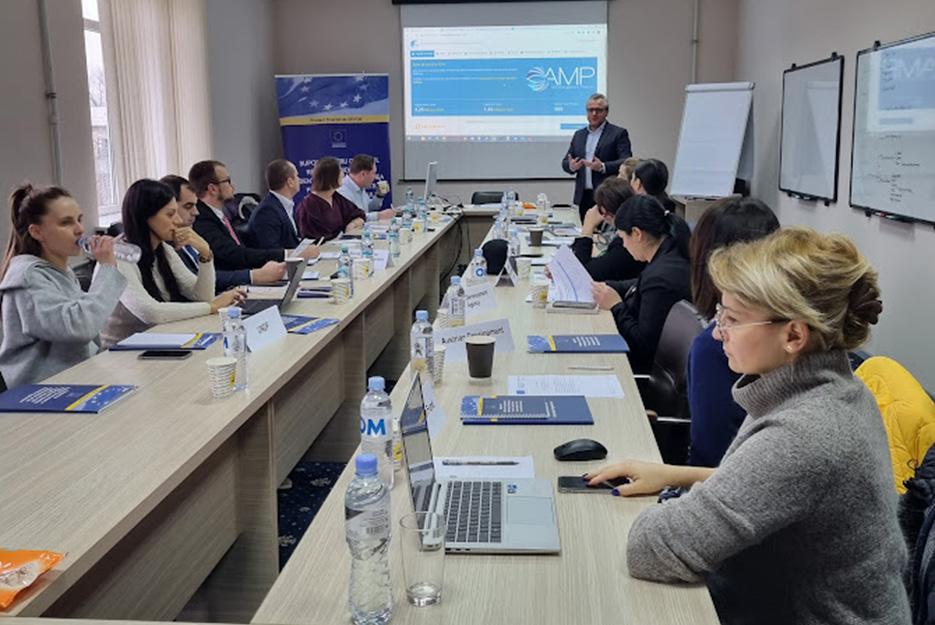
Together with the Ministry of Finance External Assistance Department (EAD) the EU Technical Assistance “Support the Moldovan Government in Identifying and Preparing Projects Linked to the Implementation of the Association Agreement” (PPF Project) hosted a pilot session about new and improved features of the new and upgraded Aid Management Platform (AMP). The event gathered ten representatives from the Development Partners including Deutsche Gesellschaft
für Internationale Zusammenarbeit (GIZ), Czech Development Agency, Slovak Agency for International Development Cooperation, Swiss Agency for International Development Cooperation, United Nations Development Programme (UNDP), UN Population Fund and the EU Delegation to Moldova. During the session the invited participants had the opportunity to get familiar with the new functionalities, provide feedback and the see first-hand the new improved performance.
accessibility. The new AMP will facilitate the work of the Development Partners who, as main platform contributors, are responsible to regularly input data and ensure the information displayed is always up to date.
In his opening speech, the State Secretary from the Ministry of Finance Ion Gumene highlighted the importance of the AMP
as the main government tool showcasing the volume and the significance of foreign development assistance in Moldova. PPF Project IT expert Leonidas Crisciunas demonstrated first-hand to the participants the new features in comparison to the old version while PPF Project External Assistance expert Rachel Mac Gowan stressed the importance of displaying accurate information on AMP through regular updates of the platform.
Feedback from the session will be reflected on the platform before the go-live and launch of public portal of the new AMP which is scheduled to take place shortly
The EU-funded “Support the Moldovan Government in identifying and preparing projects linked to the implementation of the Association Agreement” project delivered a training course on the EU Budget Support Instrument to the participants from the External Assistance Directorate, Ministry of Finance, on 9-11 November 2022.
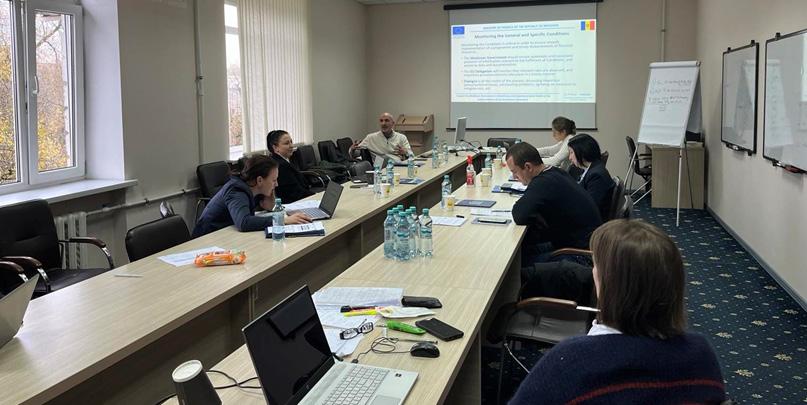
Project expert Gnel Sedrakyan presented the conceptual and operational framework of Budget Support, and the specific procedural
requirements of the European Union. During the course, the participants were involved in interactive discussions and short exercises.
The course was structured in 5 modules: Introduction to Budget Support, Budget Support Cycle of Operations, EU Budget Support eligibility criteria, EU Budget Support disbursements and indicators, and Preparing and implementing EU Budget Support programmes.
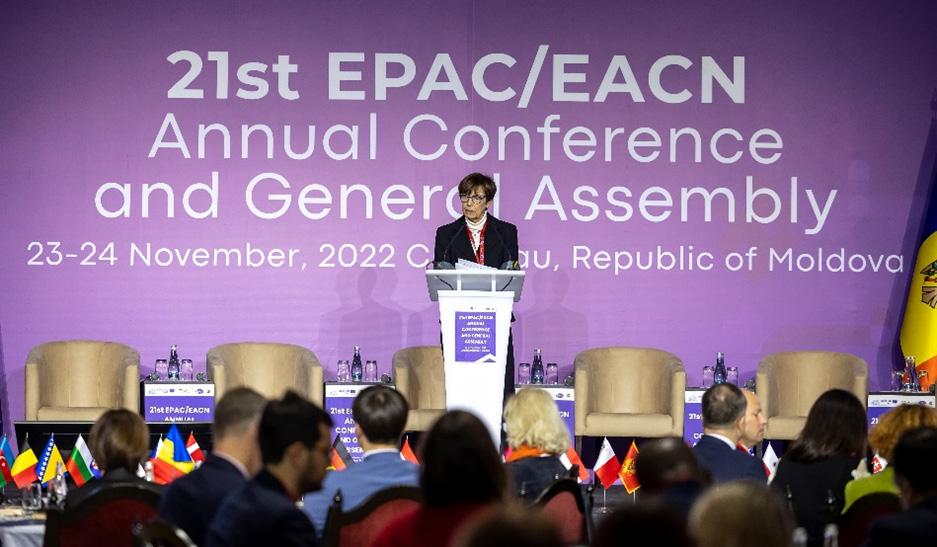
The 21st Annual Professional Conference and General Assembly of the European Partners against Corruption and European contact-point network against corruption (EPAC/EACN) took place in Chișinău on 2324 November 2022.
The two-day conference brought together more than 180 participants from 24 different countries, prominent speakers from international organizations, EU agencies, national authorities and EPAC/EACN members to discuss topics related to the investigation of high-level corruption cases,
international cooperation and information exchange, criminal assets recovery, as well as new tools of corruption prevention and risk assessment.
The event was opened by the President of the Republic of Moldova, Maia Sandu. In her opening speech, the President confirmed the EPAC/EACN Conference is a wonderful opportunity for the representatives of Moldovan local authorities to make contacts with experts from different countries and exchange best practices about instruments to fight corruption.
The Ambassador of the Federal Republic of Germany, Margret Maria Uebber, and the EU Ambassador to the Republic of Moldova, Jānis Mažeiks, mentioned that the decision to organize the annual EPAC conference in Chisinau is a strong signal for the efforts made by the Republic of Moldova in fighting corruption and advancing it on the European path.
On 5 April 2022, Germany, France, and Romania co-hosted the “Moldova Support Platform” Donors' Conference in Berlin. One of the five thematic Working Groups of the Conference was dedicated to support Moldova in its efforts to fight corruption. Following Moldova’s goal of countering corruption as a one of the main priorities for the country’s reforms agenda, members of
the Working Group have strongly agreed that corruption is a great obstacle to Moldova’s path of European integration and country’s development as well as a major threat to regional security, especially in the context of the war in Ukraine.

In this context, the Working Group concluded that all anti-corruption efforts that Moldova is taking, shall encompass complex administrative and legislative reforms pertinent to improving the national anti-corruption and integrity landscape; continuously enhancing the capacities of state anti-corruption institutions; scaling up the international legal and law enforcement cooperation to maximize the fight against corruption and recovery of criminal assets. The EU and the German Government contributes to fulfilling the priorities of the Moldovan Government to counter corruption by raising awareness of citizens and civil society on the harm of corruption and strengthening anti-corruption mechanisms by enhancing the capacity, accountability, and transparency of specialized state anticorruption institutions, improving their interinstitutional coordination, communication and cooperation, and intensifying their dialogue with civil society.
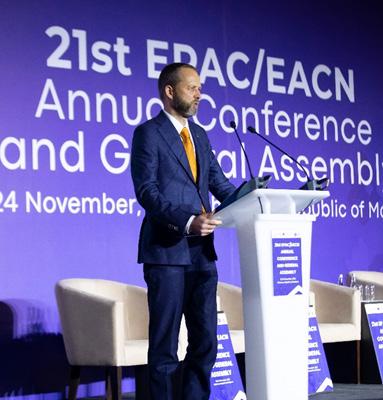
The benefits and challenges of the Republic of Moldova's accession to the Single Euro Payments Area (SEPA), as well as the progress made by the authorities to comply with the SEPA criteria, were addressed at the International Conference “Moldova's Accession to the Single Euro Payments Areaachievements and perspectives”, which took place on 17 November 2022 in Chișinău. The event was organised by the National Bank of Moldova (BNM), within the Twinning project “Strengthening supervision, corporate governance and risk management in the financial sector”, financed by the European Union.
At the opening of the conference, the Governor of the National Bank of Moldova, Octavian Armașu, emphasised that the accession to the Single Euro Payments Area represents an exercise of national importance, a country project, an essential step in the context of the integration of the Republic of Moldova into the European Union.
Present at the event, the Moldovan Prime Minister, Natalia Gavrilița, declared that the accession to the SEPA area remains a priority, in the context in which the economy

of the country is closely interconnected with that of the European area.
One of the objectives of the EU Twinning project “Strengthening supervision, corporate governance and risk management in the financial sector” is to provide support to the National Bank of Moldova to align the legislation and regulatory framework of the Republic of Moldova to the standards of the Single Euro Payments Area, as well as drafting the application procedure for SEPA membership as a non-EEA (European Economic Area) member.
“Joining the Single Euro Payment Area (SEPA) will bring the Republic of Moldova closer to the EU and its single market. This will result in valuable and visible benefits to the citizens who will be able to make cashless euro payment to anywhere in the European Union. We congratulate the National Bank of Moldova for preparing and approving the action plan with milestones and deadlines for adhering to SEPA. The more difficult work is yet to follow as it involves the necessary legal
The first international conference dedicated to the perspective of the Republic of Moldova's accession to the Single Euro Payments Area took place in Chișinău
amendments are drafted and the application file to join SEPA is prepared. The Republic of Moldova needs a healthy, stable and fully functioning financial system that can serve its citizens, businesses and provide basis for the sustained economic growth. The EU will continue to support Moldova, in particular, given that criteria of SEPA membership mirror some approximation requirements, relevant also for EU accession.”
The plenary session was followed by two debates on the topics: “The benefits and challenges of joining the Single Euro Payments Area (SEPA)” and “Efforts and progress made by the Moldovan authorities to comply with the SEPA criteria. Necessary steps to follow in view to draft the SEPA accession file”.
stated Jānis Mažeiks,Ambassador of the European Union to the Republic of Moldova.

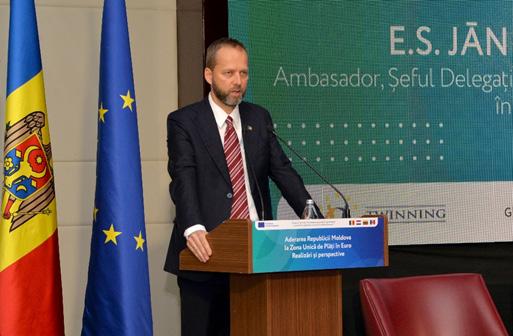
The EU Twinning project “Strengthening supervision, corporate governance and risk management in the financial sector” was launched in January 2021 for a period of two years. Within it, the National Bank of Moldova (BNM) and the National Commission for Financial Markets (NCFM) benefit from EU support for the further development and reform of the financial sector of the Republic of Moldova. The partner institutions of the project, which provide support to the NBM and NCFM, are the National Bank of Romania, the Central Bank of the Netherlands, and the Central Bank of Lithuania, in cooperation with the Romanian Financial Supervisory Authority and the Romanian National Consumer Protection Authority.
The special guest of the conference was Etienne Goose, Director General of the European Payments Council - the institution that will make the decision to allow the inclusion of our country in the SEPA geographical area.
Twinning is an EU instrument for institutional cooperation between the authorities of EU Member States and authorities of beneficiary countries. The Twinning projects aim at developing the institutional capacities of the beneficiary authorities. In these projects, EU public sector experts are seconded to assist the beneficiary authorities in achieving specific objectives. Further information on the Twinning assistance instrument is available on the European Commission’s website.
The Single Euro Payments Area (SEPA) is that geographical area where there are no differences between cashless payments in euros, national or cross-border.
In SEPA, customers will be able to make and receive cashless payments in euros, as safely, quickly, and efficiently as in a national context, using a single account and standardized payment instruments, by means of which a customer can make payments from his own
account to any other destination in the SEPA area. These standards are the foundation for the development of exclusively electronic payment services, such as internet and mobile payments, electronic invoicing services and other electronic value-added services. SEPA is the largest project carried out by the European payments industry, aiming to create an integrated market for payment services in euros, by removing commercial, legal and technical barriers between the national payment markets participating in the SEPA area.
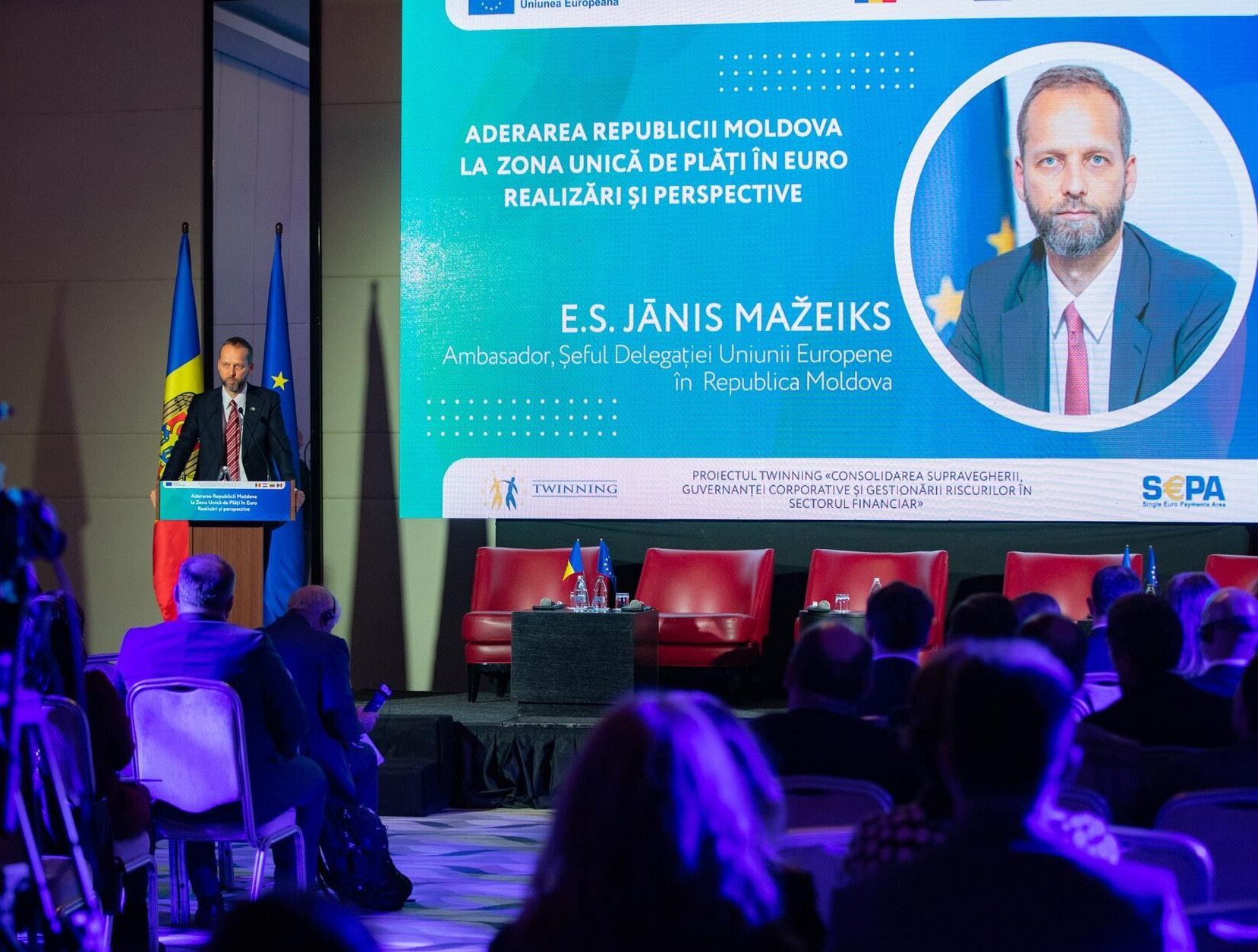

In Tiraspol and Rîbnița, businesses focusing on enhancing digital skills of children and adults are being developed with the support of the European Union's Confidence Building Measures Programme, implemented by UNDP Moldova. Video content creation and providing digital services, so as robotics courses are just two of the business ideas that were funded by the programme in 2021. Following a ten-year experience in television production, Iana Valeeva decided to change her career pathway and to start her own business. This is how she found out about the call for proposals launched as part of the European Union’s Confidence Building Measures Programme, implemented by UNDP Moldova. Out of the 76 applications submitted, Iana's project idea was selected as one of the winners. So, Iana Valeeva became an entrepreneur by opening a studio specialising in post-production – one of the few in Tiraspol.
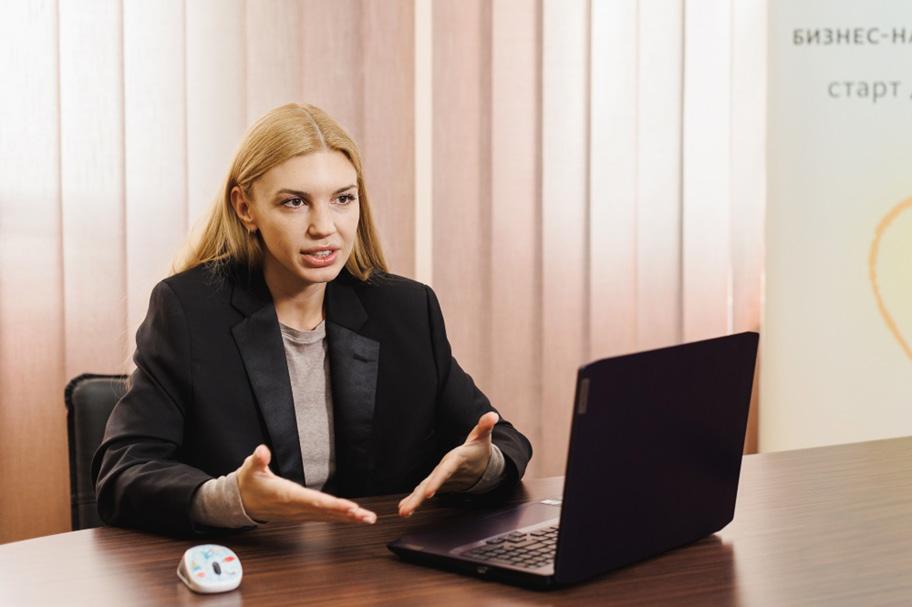
“How do I feel about being the team leader? It's very demanding, it requires a lot of commitment and responsibility, with many sleepless nights. Most likely I am not a good role model as a manager, because I am rather friendly with all my colleagues. Both women and men work in this field. It's a field of creativity where everybody can deliver great results. It takes talent, with many people involved in the production process: designers, technicians, editors, project coordinators, animators, etc.,” says Iana Valeeva.
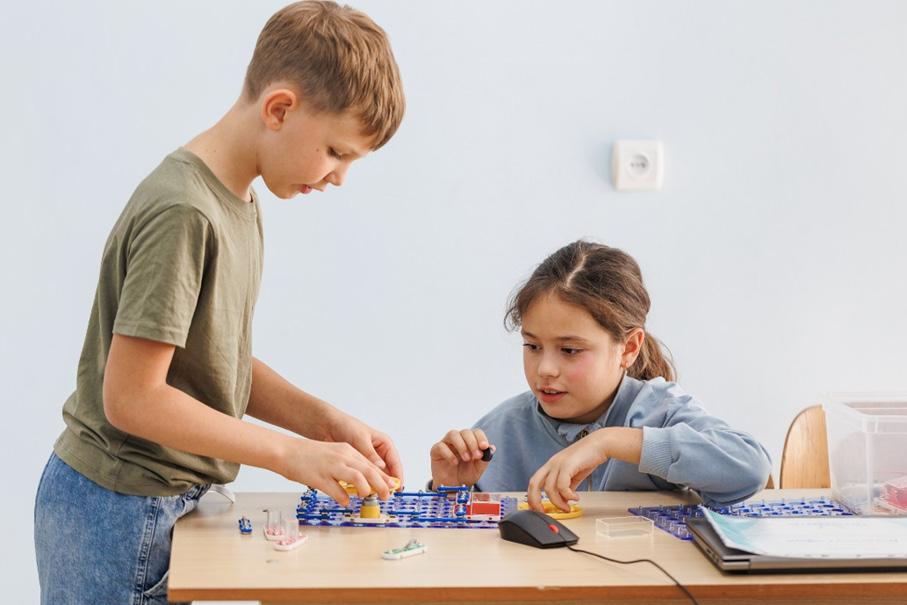
Women entrepreneurs from the left bank of the Nistru river launched businesses in digital and robotics with EU support
The team formed was provided with the necessary equipment, meaning highperformance computers, so that the video content ideas could be realised. However, after 24 February, things took a different turn and the number of new contracts fell dramatically. To keep maintenance costs down, the production team had to work from home.
In Tiraspol, there were very few professionals in the field when Iana launched her project. She decided not to head-hunt the employees from local TV stations or TV studios, but rather to give young job seekers a chance.
Two hours away from Tiraspol, in Rîbnița, Irina Terliuga, a lecturer at the Faculty of Applied Computer Science in Economics, has launched her courses in robotics and 3D modelling. This is thanks to a €10,000 grant offered by the European Union.
“I teach and work in the field of information technology and I notice how some people find it harder to feel comfortable with it, that they are not at ease with a gadget. So, it's very important to teach our children how to use various technologies, because they are no longer about the future, but about the present,”
says Irina.
During robotics classes, the little ones learn why it's not a good idea to stick your fingers in a socket, how an electricity circuit works. Using different wiring combinations, students can build smart plugs or smart lighting in class and they get a much better understanding of how things work by doing them.

Since their launch in Rîbnița, in the first year of activity, about 35 children aged 8-12
have attended the robotics courses. Irina is already putting together a web design course and plans to launch a mobile app development course for teenagers.
Irina is proud that she managed to launch a business in the field of education and does not see herself as a classic entrepreneur, who is busy counting the profits. Rather, she believes that education is an investment in the future and that every school needs to adapt to the times we live in.
In 2021, the European Union’s Confidence Building Measures Programme, implemented by UNDP, awarded 26 grants (17 women grantees and 9 men grantees) to entrepreneurs from left bank of the Nistru river through the grants competition “Mentoring in business – Start for the youth”. The programme contributes to building trust between people on both sides of the Nistru river by involving them in joint development projects.
With the financial support of the European Union and Sweden, three social enterprises were launched on in December 2022, by the civil society organisations, as follows, in Isacova village (Orhei), Cobâlea village (Șoldănești) and Anenii Noi.
The social enterprise "Angelus Agro" SRL opens chicken and rabbit mini-farm located in Isacova village, Orhei. Foundation ”Hospice Angelus Moldova” founds the enterprise. The mini-farm was built on the territory of the Casa Angelus Pediatric Palliative Care centre and aims to improve the quality of life of the Centre’s beneficiaries by meeting the need for fresh meat and eggs and ensuring, from the sale of the excess, the development of the Angelus Agro social business.
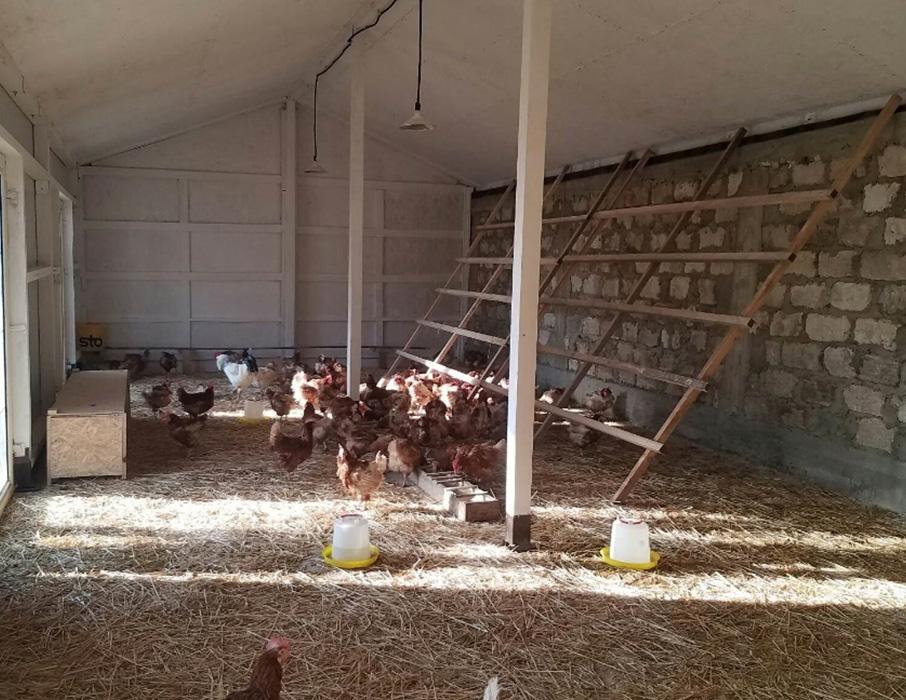
"This centre is very important for children throughout the republic. The children benefit of quality services, more special care and at the same time of the products we have in the greenhouses and a fairly balanced diet", explained
Rodica Costin, administrator of the Casa Angelus.The social enterprise "Popasul lui Ștefan" in Cobâlea village, Șoldănești, founded by AO Bella Getica, officially opened its doors on 16 December. The enterprise offers catering services and has employed three people from vulnerable categories as cooks and cook helpers. The social impact of the enterprise consists in offering hot lunches to elderly people in the village.
The purpose of the social enterprise is to increase the quality of life of the inhabitants of the village of Cobâlea in the Șoldănești district. The profit of the social enterprise will be reinvested in the economic activity of the enterprise.
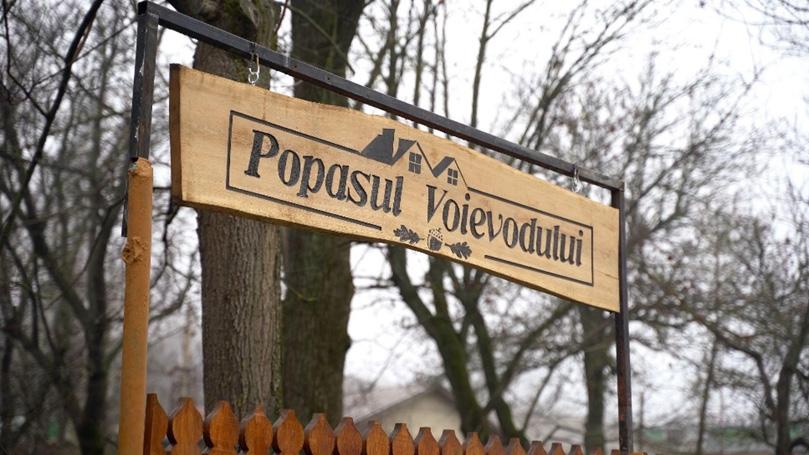
"We have 20-25 people employed in the village. These people are insured with monthly salaries, received on time and officially, with all the necessary taxes paid to the state",
pointed out Valerian Isac, president of the Foundation "Hospice Angelus Moldova".
Cobâlea City Hall granted the building to the social enterprise for an indefinite period free of charge.
`We have a museum and a tourist guesthouse, but there was a lack of public food services necessary for the development of local tourism,` said the town's mayor, Angela Ababei.
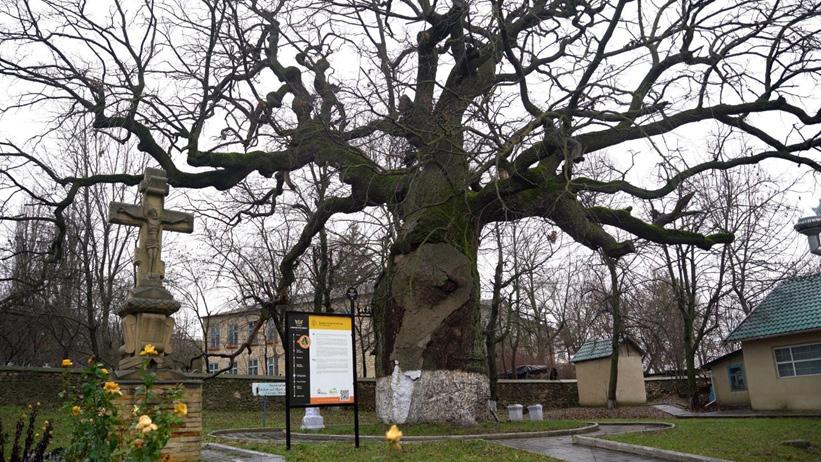
The development centre for children "Poveste" from Anenii Noi was opened on 22 December, 2022. The centre aims to ensure the development of children from different vulnerable groups and increase the employment opportunities of mothers with many children in Anenii Noi.
The Children's Development Centre will offer free services to 30 children from disadvantaged categories. The social enterprise is founded by the "Federation of Families for Unification and Peace from the World in Moldova".
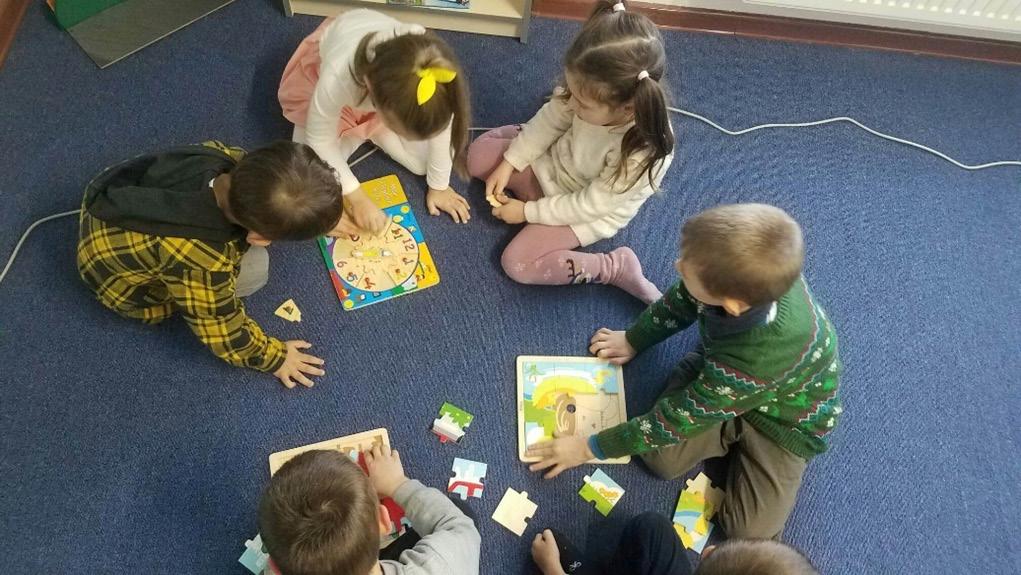
The centre offers preparation for school and creative workshops, and for parents it will offer training in the development of children's emotional intelligence and positive parenting.
The social enterprises were launched in the framework of the project "Local civil society contributes to inclusive and sustainable economic development of the country" funded by the European Union and cofunded by Sweden through the East Europe Foundation in partnership with the European Business Association and the Contact Centre.
The Gala of Social Entrepreneurship and Business with Impact 2022 took place on 11 December 2022.
Social entrepreneurs, non-governmental
impact had the opportunity to submit their application to the competition or be nominated by the public to win the social entrepreneurship award.
The organisers of the Gala were the Platform for the Development of Social Entrepreneurship (administered by AO EcoVisio) and East Europe Foundation. Visitors enjoyed the festive atmosphere, purchased healthy gifts and sweets for their loved ones, and participated in workshops on climate change, robotics and other.
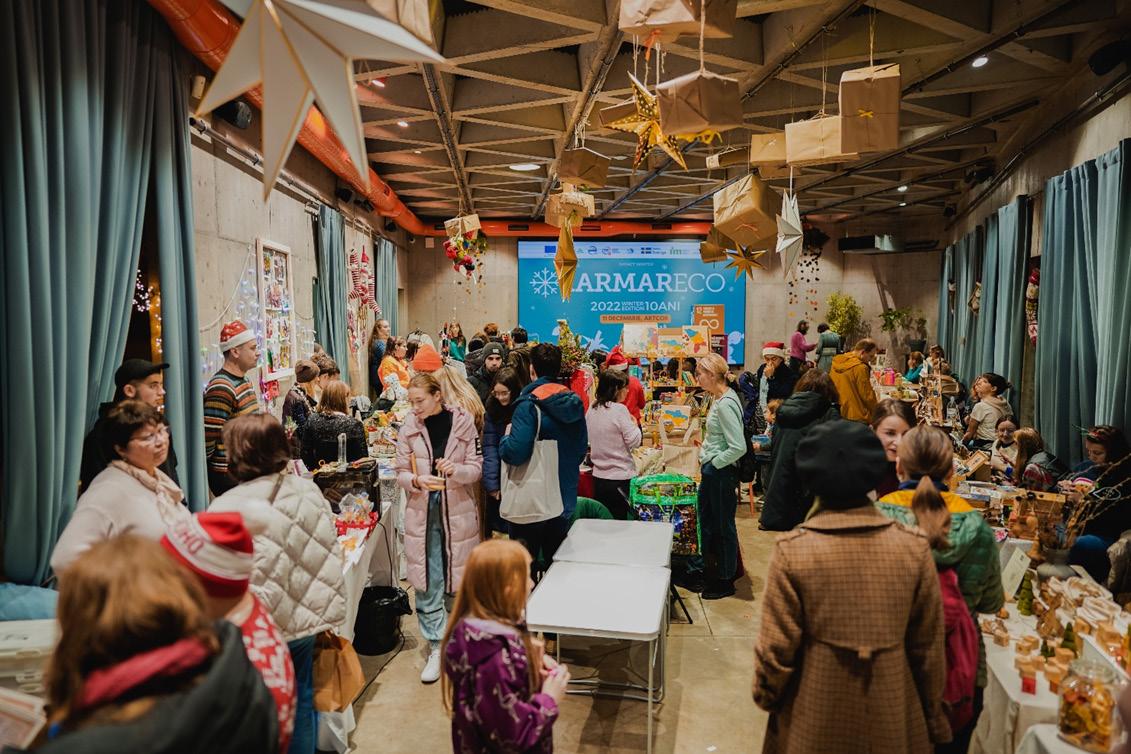
The Jury of the Social Entrepreneurship Gala designated the winners of the competition, as follows:
Category: Classic social enterprises or integration social enterprises with legal status:
» 1st Prize- Floare de Cires SRL
» 2nd Prize- Edujoc SRL
» 3rd Prize- Angelus Agro SRL
» Diploma of merit- Vibe Academy SRL
Category: NGO/companies with social entrepreneurship activity
» 1st Prize- Ecovox Grup SRL/ Keystone International Award
» 2nd Prize- SOS Autism
» 3rd Prize- Eco life for you SRL
» Diploma of merit- Detstvo Deteam Fund and NGO EtEco
» The public nomination was won by VRC Moldova.
» 1st Prize- Recycline Moldova SRL
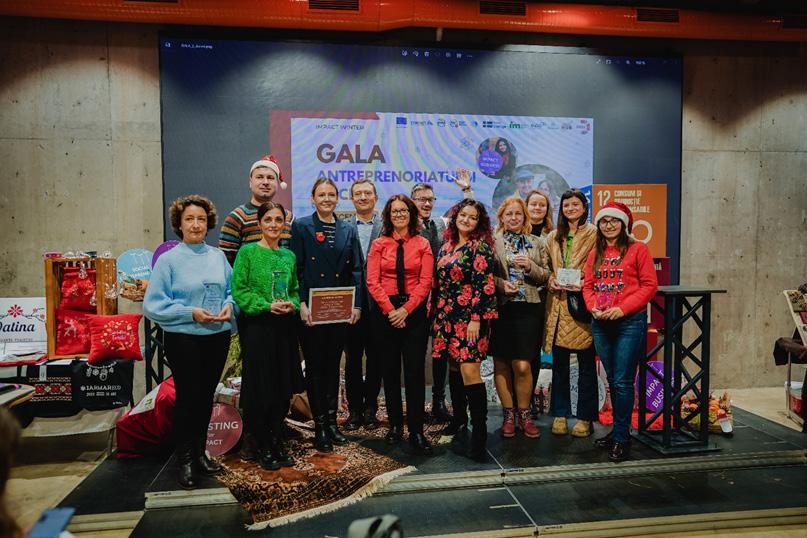
» 2nd Prize- EvEco Construction SRL
Social Entrepreneurship is part of the Social Economy, which is widely spread in Europe. Social Entrepreneurship is economic activity created to solve community and environmental problems and challenges or integrating different vulnerable categories in economic activity.
The purpose of social enterprise is to create welfare among all persons without any differences. Now in the Republic of Moldova there are 11 classic social enterprises and social insertion enterprises and more than 50 organisations and companies, which carry out the activity of social entrepreneurship. Likewise, there are classic businesses that create a significant impact. Their founders tend to create positive change in the community and environment through its business model.
This year IarmarEco celebrates 10 years of its activity and growth of the community of local and responsible consumers and producers. Likewise, IarmarEco producers can be found at the multivendor marketplace iarmareco.md.
This event was carried out with the aim of identifying, promoting and awarding social
enterprises within two projects funded by the European Union and Sweden: "Local civil society contributes to inclusive and sustainable economic development of the country" and "Collaborate for Impact" project carried out by EVPA and five partners from the countries of the Eastern Partnership. The event was co-funded by IM Swedish Development Partners.
On 2 November the Business Skills Hub was officially inaugurated in Bălți, with the financial support of the European Union.
The Business Support Centre is managed by the Association of Business Women from Bălți.
Thus, entrepreneurs in the northern region of the country can benefit from training services, consultancy and support in business initiation and development, as well as co-working spaces.
During the inauguration event, the Ambassador of the European Union in the Republic of Moldova, Jānis Mažeiks, together with Sorin Mereacre, the President of the East Europe Foundation and the Mayor of Bălți , Nicolai Grigorișin, handed the grant certificates to the five winning entrepreneurs of the "Best business plan", organised by the Business Skills Hub. An Expo-fair with products of the beneficiaries of the Business Support Centre was also organised and trees have been planted as a sign of strengthening the local entrepreneurial ecosystem.
The event was served by the social insertion enterprise "Credem-Eco" SRL, which offered
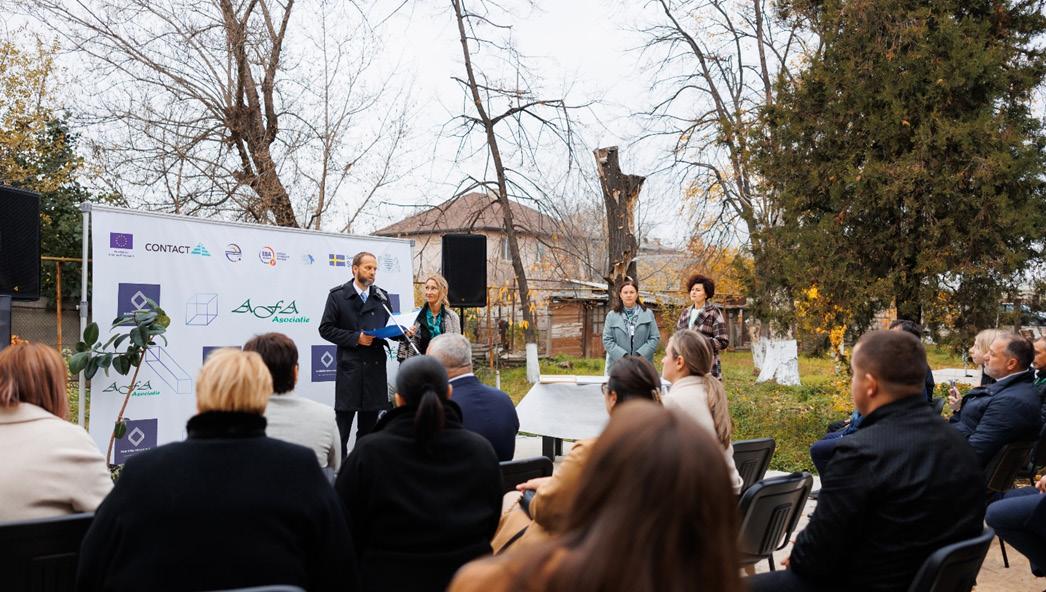
delicacies to all the participants of the event. The Association of Business Women from Bălți municipality created the social enterprise in 2019. The enterprise employs five persons, of which two are with special needs.
To support the activity of the Business Skills Hub, the European Union provided a grant worth €100,000 to the Association of Business Women from Bălți.
The Business Support Centre in Bălți was launched within the project "Local civil society contributes to the inclusive and sustainable economic development of the country", funded by the European Union and co-funded by Sweden, implemented by the East Europe Foundation in partnership with Contact Centre and European Business Association.
Twenty representatives, from four CSOs selected to develop Regional Social Business Hubs, successfully completed the educational programme in social entrepreneurship. The trainings took place in November 2022, under the "Harnessing CSO’s potential to promote and develop the social entrepreneurship in the Republic of Moldova" project, funded by the European Union and co-funded by Sweden, and implemented by the East Europe Foundation in partnership with Keystone Moldova and CONTACT Centre.
"The participation of the Social Business Hub Tiraspol team in the educational program on social entrepreneurship, from the legal framework to marketing and promotion, organised by the Contact Center, will help us have an effective activity to support social entrepreneurs on the left bank. All socio-economic processes are highly changeable, and in times of crisis it is particularly important to acquire new skills and knowledge that will allow minimising business risks and increasing sustainability.
Our centre will apply the received tools in its activities and adapt them to the regional specifics",
says InaBarishnicova, Director of the Social Business Hub in Tiraspol.
"We aim to inform more than 100 young people in the field of social business, and in the first 2 years, to help 20 young people to launch themselves on the market with social businesses in different fields",
states Ludmila Prociuc, administrator of the Socio-Economic Policy Centre "CONSENS" in Sîngerei city.
"I needed to know what the financial report for a social business should contain and exactly when the reporting takes place so that I can observe the law,"
says Iulia Culicenco, a young social entrepreneur.
The four non-governmental organisations were selected following a call of proposals and receive funding in the amount of €180,000. Thus, in the North region social enterprises will benefit from support provided by A.O. CONSENS Centre for SocioEconomic Policies in Sîngerei; in the South region - support will be provided through the Cahul Chamber of Commerce and Industry; in the Centre region - assistance will be provided through the Chamber of Commerce and Industry of Chișinău municipality,
and in the Transnistrian region - support will be provided through the Association of Social Entrepreneurs from Tiraspol. The implementation period of the funded projects is until 2024.
The project "Harnessing the CSO’s potential to promote and develop the social entrepreneurship in Moldova" is funded by the European Union and co-funded by Sweden through the East Europe Foundation, in partnership with CONTACT Centre and Keystone Moldova.
Four regional Social Business Hubs have been capacitated in the promotion and development of social entrepreneurship
The aim of the project is to empower CSOs to engage in creating social enterprises, which will contribute to the sustainable economic growth of communities. The initiative also seeks to create a favourable ecosystem
for the development of social enterprises through access to professional consultations at the regional level and raising awareness regarding social entrepreneurship.
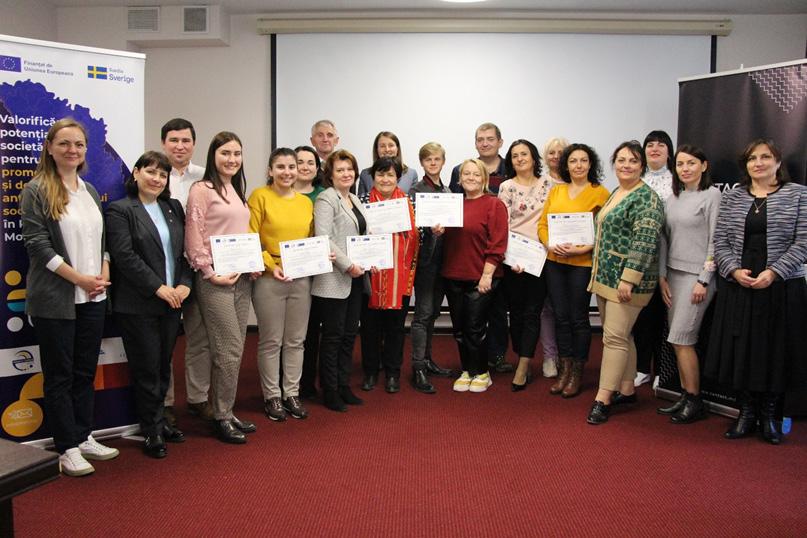
The concept of social entrepreneurship is not known and fully understood by the population of our country, nor by the officials of state institutions. This is one of the resolutions of the Study "Knowledge, attitudes and behaviours in the field of social entrepreneurship in the Republic of Moldova", the results of which were presented at a press conference, on 20 December 2022, in Chișinău.
The study analyses the knowledge, attitudes and behaviours in the field of social entrepreneurship of the following categories of people: experts in the field, the general population, consumers of the products/ services of social enterprises, CSOs not involved in social entrepreneurship activities, but also those involved, representatives of the Enterprises Small and Medium, representatives of LPA level I and II.
According to the findings of the Study, more than half of the general population stated that they had not heard of social entrepreneurship, and only one in five mentioned that they could define this notion.
At the same time, more than 90% of the general population has a positive attitude towards social enterprises, considering them necessary and beneficial because they help disadvantaged people integrate into
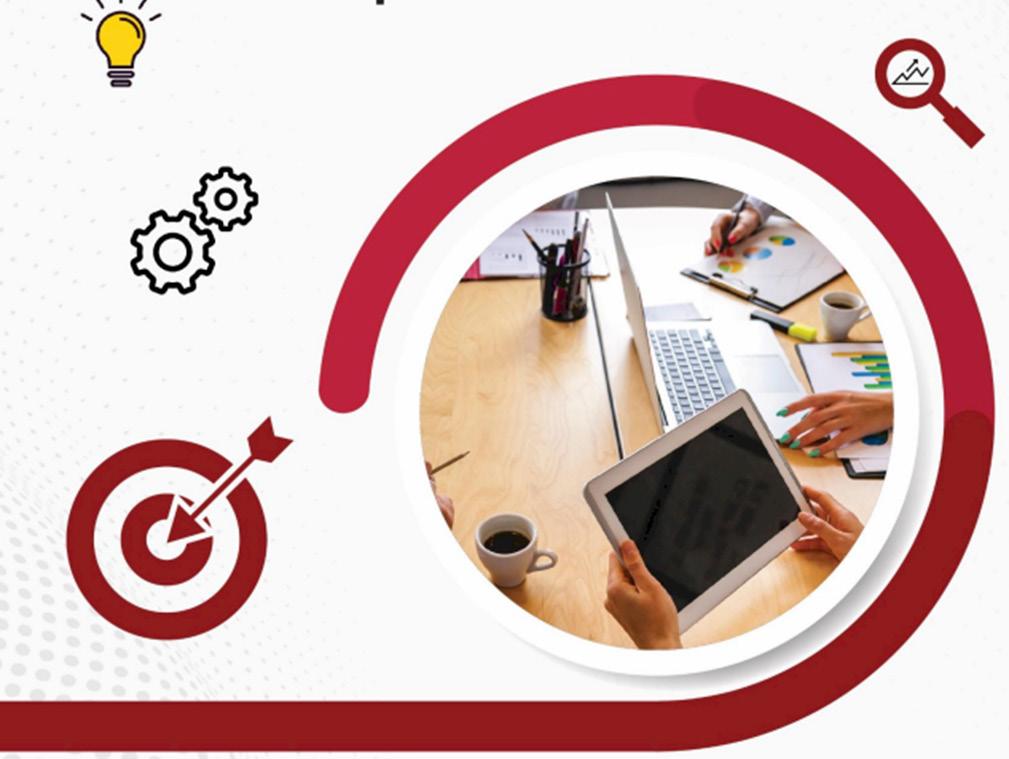
society. Two-thirds of the respondents would rather buy a product/service from a social enterprise than from a regular enterprise, if the product had good quality and the priceadvantageous.
The consumers of social enterprise products/services believe that the whole of society benefits as a result of social enterprise activity and that there should be more social enterprises, as they contribute to the employment of disadvantaged people and solve pressing social problems in the community, which are often ignored by authorities.
The concept of social entrepreneurship is poorly known by LPA representatives, as most of them cannot define it. The level of collaboration between LPAs and social entrepreneurs is quite low – ⅔ of LPA representatives do not know any social entrepreneurs. Also, LPA representatives do not have information about public policies, fiscal policies or the regulatory framework in the field of social entrepreneurship.
The research is comprehensive and was carried out on a sample of 1142 general population, 109 consumers of social enterprises, 106 CSOs not involved in social entrepreneurship, 109 representatives of small and medium enterprises, 105 representatives of public authorities.
The findings of the study can be accessed at the following link: https://www. keystonemoldova.md/ro/publications-andresources/publications/
The study was carried out as part of the project "Using the potential of civil society for the promotion and development of social entrepreneurship in the Republic of Moldova", implemented by the East European Foundation in partnership with the Contact Centre and Keystone Moldova. The project is financed by the European Union and cofinanced by Sweden. The project contributes to the creation of an ecosystem favourable to the development of social entrepreneurship in the Republic of Moldova.
The European Investment Bank (EIB), the bank of the European Union, is continuing to provide financial and technical support to the Republic of Moldova by investing almost €280 million in loans and mobilising some €16 million in grants for the public and private sectors in 2022.
EIB Vice-President Teresa Czerwińska announced on 21 November 2022 new
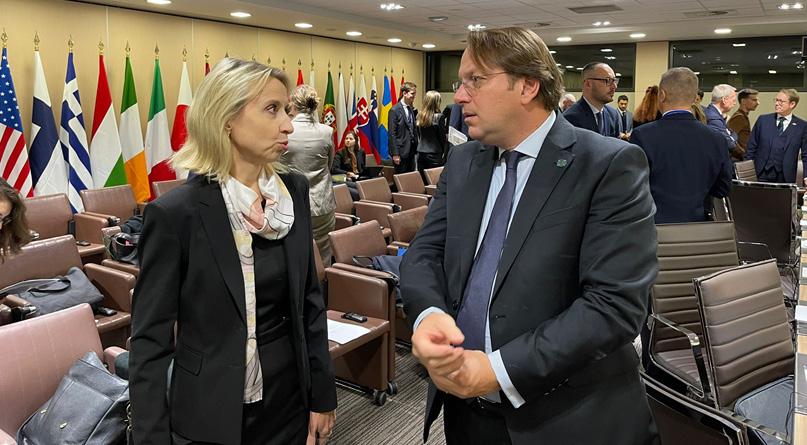
investments for 2023 in key sectors of the Moldovan economy at the third ministerial conference of the Moldova Support Platform, including investments in transport, energy and healthcare projects across the country. These investments will help Moldova mitigate the economic and social effects of Russia’s invasion of Ukraine, and support Moldova’s accession to the European Union.
“The EIB will continue to contribute towards an economically strong, energyindependent and green Moldova. So far, we have done this by investing €280 million and mobilising a further €16 million in grants for projects in the public and private sectors in 2022 alone. Next year, our priority will be investments in the energy and transport sectors, which will help
Moldova achieve energy independence and integrate further with the European Union. We also plan to support healthcare projects that aim to ensure access to high-quality medical services. Our investments can bring tangible improvements to the lives of people in Moldova, establishing the EIB as a reliable partner for the country. Today, at the Moldova Support Platform in Paris, we informed our partners of these plans and sent a very clear message — Moldova can continue to count on the EIB.”
Jānis Mažeiks, Ambassador of the European Union to the Republic of Moldova, said:
“The European Union is pleased to have joined forces with the EIB in assisting Moldova during the present energy crisis. To date, the EU contributed nonreimbursable funds of €64 million to joined EU-EIB initiatives. For the future, the EU already announced €250 million, of which €50 million is assisting the Country’s budgetary needs to overcome this winter period. Furthermore, the European Union is committed to support Moldova in connecting its transport infrastructure to the TEN-T. In the immediate future the EU will provide €20 million grant for the rehabilitation of railways, will facilitate Moldova’s participation in the Transport Community Treaty and will assist the country to develop its national mobility strategy. As such, we remain committed to an effective and continued dialogue in this direction.”
In line with EU and Moldova’s priorities, the EIB confirmed its readiness to continue its engagement in the country, in particular to help Moldova overcome the significant challenges it currently faces in the energy sector and the economy generally.
In 2023, the EIB expects to provide loans, blended with grants and technical assistance, of approximately €150 million to €170 million. The funding is expected to cover a wide range of projects focusing on energy efficiency and climate mitigation in line with the European Green Deal initiative in the region, responding to the country’s needs in the health and digitalisation sectors, and investing in Moldova’s agri-food sector.
EIB and Team Europe to invest in energy, transport and healthcare infrastructure Russia’s war against neighbouring Ukraine poses complex economic and social challenges for Moldova. These include a dramatic increase in energy prices, high inflation, disrupted supply chains, lost trade opportunities, and the humanitarian emergency triggered by the large inflow of war refugees from Ukraine. The Moldovan government and the EIB have been working together throughout 2022 to mitigate these negative effects on the national economy.
Thus, the EIB has provided a €150 million loan for the reconstruction of major highways, accelerating Moldova’s integration into the trans-European transport network and the European Union. It plans to provide an additional €100 million to Moldova by the end of 2022 to restore and upgrade other key national roads.
The EIB has announced upcoming investments to improve energy efficiency, energy security and the diversification of energy supplies in the Republic of Moldova, which are key to energy independence from fossil fuels. It has also announced plans to provide some €30 million to a privately owned electricity distribution system operator in Moldova to finance the modernisation, digitalisation and expansion of the electricity distribution grid covering the central and southern part of the country, including the capital, Chișinău. In addition, a €12.4 million EU investment grant signed in 2022 will help the country implement an EIB project to improve the energy efficiency of public buildings, including hospitals, schools, kindergartens and other public institutions in Moldova.
Together with the European Commission, the EIB has launched a pre-feasibility study to assess how to better connect the Ukrainian and Moldovan railway networks with the European Union. It is a strategic investment for sustainable, green economic growth and to improve global food security.
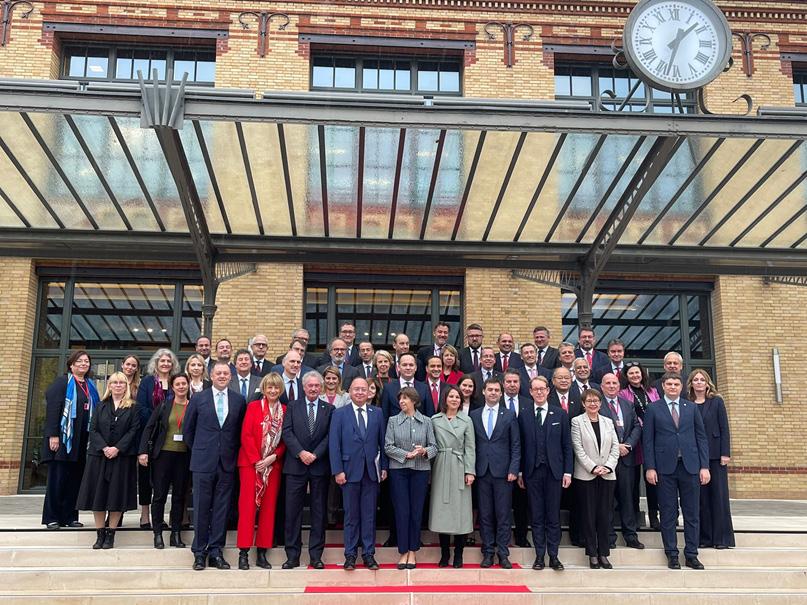
improving its resilience to major crises such as the COVID-19 pandemic and the war in Ukraine. Earlier this year, the EIB-managed Eastern Partnership Technical Assistance Trust Fund (EPTATF) and Swedfund jointly provided €1.5 million in grants to prepare a project for the construction of two hospitals , which the EIB and the Council of Europe Development Bank are currently
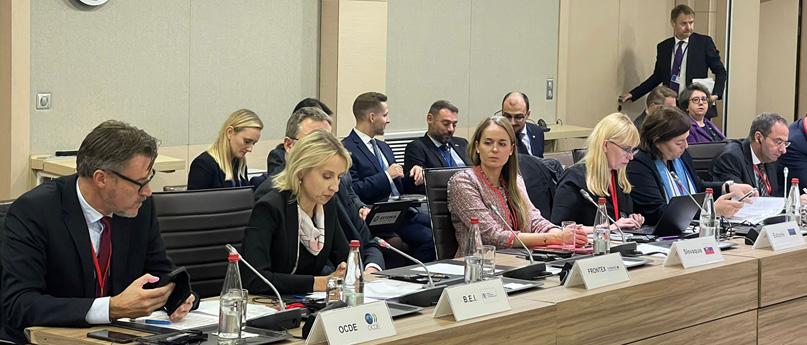
The European Investment Bank (EIB), the bank of the European Union, and the Ministry of Finance of Moldova today signed on 15 December 2022 an agreement for a €100 million increase to the original €150 million loan for the rehabilitation and upgrading of key national road sections. These sections are mainly on the extended trans-European transport network (TEN-T) and the Solidarity Lanes going through Moldova, contributing to better integration with the European Union.

With this loan increase, EIB Global plans to finance the rehabilitation of an additional 42 km of national roads and the construction of approximately 7 km of national roads in Moldova. The new operation will finance improvements to the Hîncești–Leova–Cahul–Giurgiulești national road, which
leads to Moldova’s only international port of Giurgiulești on the Danube River. The port enjoys a strategic position adjacent to Ukraine and to the European Union with Romania. The other segment involves the construction of a bypass around the town of Cimișlia to shift transit traffic on the TEN-T road away from the town centre.
The EIB loan supports the goals of the EU Economic and Investment Plan for Moldova in the transport sector by spurring regional and national economic growth, facilitating trade, and supporting private sector development. This financing is covered by the Neighbourhood, Development and International Cooperation Instrument — Global Europe (NDICI — Global Europe) comprehensive guarantee.
Minister of Finance of Moldova Dumitru Budianschi said: “
“By signing this loan with the EIB, we are demonstrating our commitment to the rehabilitation and upgrading of key national road sections, which is becoming increasingly important for the economic development of the country and the wider region. Moldova’s roads are vitally important for transport and for ensuring uninterrupted trade flows from Moldova and Ukraine to Romania, to the Danube River through the Moldovan port of Giurgiulești, and to other EU countries. A well-functioning transport system is critical for economic growth. Upgrading Moldova’s road infrastructure and promoting regional economic links while improving road safety and saving lives is a winning combination. The government appreciates the continued cooperation with the EIB and this timely investment.”
The EIB will continue to contribute towards an economically strong, energy-independent and green Moldova. So far, the EIB has done this by investing €280 million and mobilising a further €16 million in grants for projects in the public and private sectors in 2022 alone. Next year, the EIB’s priority will be investments in the energy and transport sectors, which will help Moldova achieve energy independence and integrate further with the European Union.
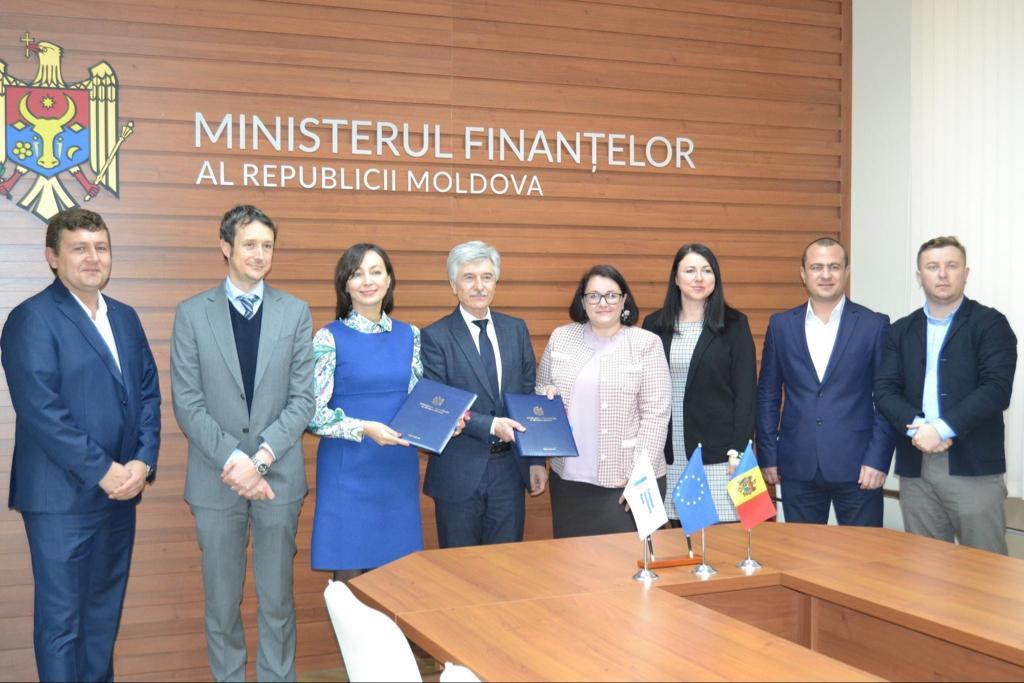
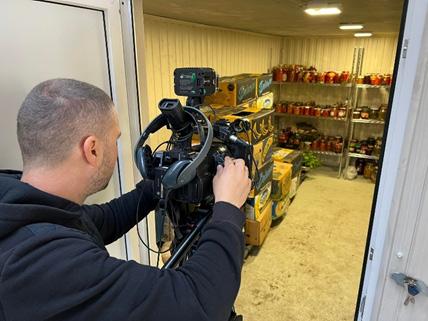
Within EU4Environment Green Economy project component, implemented by UNEP in close cooperation with the Public Procurement Agency under the Ministry of Finance of the Republic of Moldova and the PA EcoContact, is focussed on promotion of SPP and eco-labelling. This work aims to promote companies’/SMEs’ readiness to respond to public procurement tenders with sustainability criteria. The promotion of SPP and eco-labelling should in turn also help to motivate companies to produce/offer more greener and environmentally friendly products/services, thus contributing to the overall greening of the Moldova economy and market.

The conducted press tour aimed to raise the awareness of SMEs, and that of the broader population, on the benefits of ecoinnovation and sustainable production. It did so by bringing journalists to visit at least 5 enterprises who have already taken steps towards greening their value chains, thereby providing examples, best practices and lessons learned for other interested businesses. These visits and interactions with company representatives enabled to produce newspaper articles and social media content, while also improving the overall
capacity of journalists and influencers on communicating about topics related to the green economy. The study tour also shared additional experiences from SMEs outside of the Republic of Moldova. The tour also was an opportunity for national and local authorities to highlight what measures they have in place/in the pipeline to further motivate businesses to seek green, innovative solutions that will strengthen their market position and competitiveness in the long-term.


Resource Efficient and Cleaner Production (RECP) has been a long-acknowledged means to help enterprises improve their production without undermining the environment or human health. With an experience of over three decades, UNIDO has been a steering force in advancing the application of the RECP methodology in Small and Mediumsized Enterprises (SMEs), worldwide. This is also the case in the Republic of Moldova, where, as part of the EU-funded programme, EU4Environment, the RECP methodology is being introduced as a stepping stone in the transition to a circular and green economy. RECP represents a continuous application of preventive environmental strategies to processes, products and services to maximise efficiency and minimise the generation of waste and pollution. In Moldova, as well as other EU Eastern Partner countries, UNIDO trains around 15 professionals on the RECP methodology and works with SMEs selected to become RECP Demonstration Companies. The SMEs are in turn assisted to revise their business models, while their representatives are trained on the application of the RECP methodology. As a part of the hands-on training, the RECP experts conduct assessments of the selected Demonstration Companies and recommend individual action plans to help the companies increase productivity, product quality, and competitiveness.
On 21 December 2022, the training process was completed in the Republic of Moldova with the presentations of the RECP in-plant assessment reports and discussions on the best strategies on how to implement the suggested RECP measures. These were instrumental in fine-tuning the proposed recommendations and giving clear guidance to the management of each RECP Demonstration Company for their action plan.
The “European Union for Environment” (EU4Environment – Green Economy) Action helps the Eastern Partner countries preserve their natural capital and increase people's environmental well-being, by supporting environment-related action, demonstrating and unlocking opportunities for greener growth, and setting mechanisms to better manage environmental risks and impacts. It is funded by the European Union and implemented by five Partner organisationsOECD, UNECE, UNEP, UNIDO, and the World Bank – over the 2019-2024 period, with a budget of €20 million.
For more information about the Action, please visit: www.eu4environment.org.
For more information about RECP in the Republic of Moldova, please visit: www.odimm.md/en/home-recp
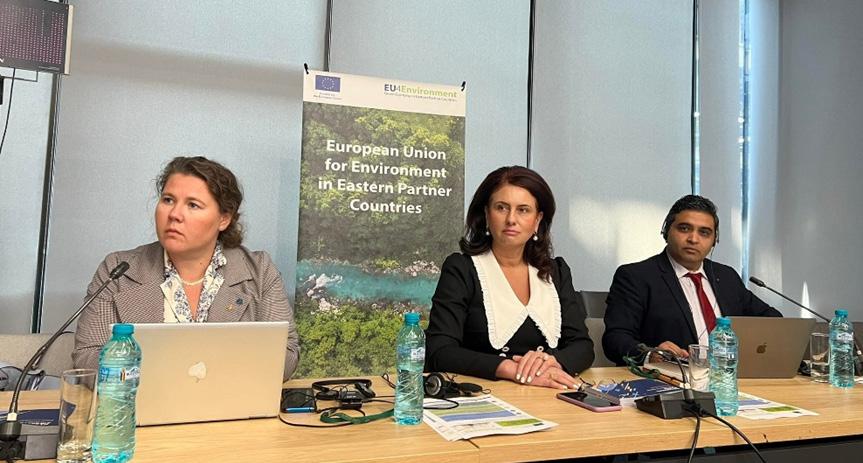
Industrial parks and free economic zones have long proved to be effective tools for attracting investments and advancing regional development. At the same time, their means of operation, despite the obvious economic and social benefits, have also led to damaging outcomes including a negative impact on the environment and human health. To respond to this, the creation of Eco-Industrial Parks (EIPs) would help address the negative impacts caused by industries and traditional Industrial Parks.
On a global level, the concept of EIPs is promoted by the United Nations Industrial Development Organisation (UNIDO), the World Bank Group, and Deutsche Gesellschaft fur Internationale Zusammenarbeit (German Development Cooperation) (GIZ) GmbH. Together, the three organisations defined the basic requirements and performance criteria needed for an industrial park to qualify as an Eco-Industrial Park (EIP). This assignment for undertaking the EIP feasibility assessment in two Industrial Parks in the Republic of Moldova falls under the implementation activities of the EU4Environment Action. The Action is funded by the European Union and implemented in this area by UNIDO, supported in its delivery by the International EIP Experts from Sofies as well as by National Industrial Park experts. In accordance with the National Action Plan for the implementation of the EU4Environment Action and in agreement with the Ministry of Economy and Ministry of Environment in Moldova, IP Tracom and FEZ Valkaneș are designated as pilot territories for testing the introduction of the methodological elements of an eco-industrial park using the international framework for Eco-Industrial Parks.
Over the past few months, the EIP feasibility assessment for both these parks has been undertaken through remote engagements with the International EIP expert team. This field mission will be used to follow up on these discussions, validate the findings until the current date and provide support for developing concrete next steps and an action plan to help the IPs progress towards becoming EIPs.
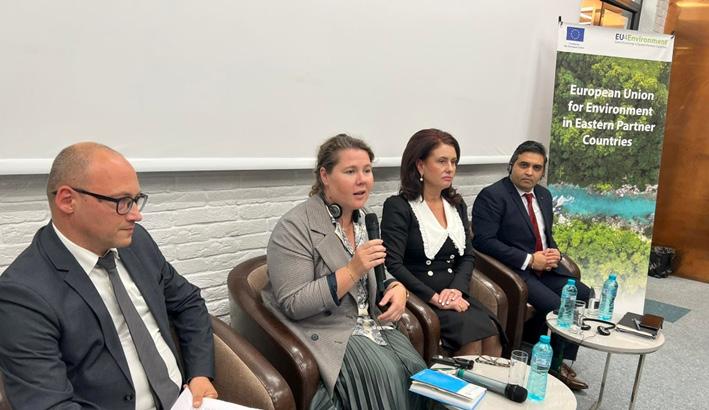
Clusters, existing companies, and start-ups in Cahul and Ungheni regions benefit from grants of more than €720,000.
On 13 December 2022, four clusters in Cahul and Ungheni regions were awarded grants worth €100,000 each, and 19 entrepreneurs from both regions received grants from €14,000 to €24,000 each, as part of “EU4Moldova: Focal Regions” programme, financed by the European Union and implemented by UNDP and UNICEF.
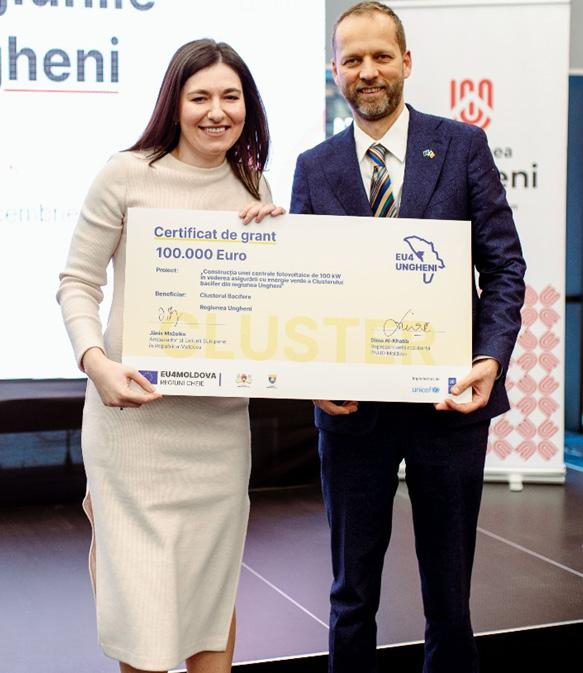
The financial assistance provided to clusters and the private sector will enable purchase of equipment, goods, works, and services, all these contributing to job creation and higher investment attractiveness of the regions.
“The assistance provided by the European Union to the Ungheni and Cahul regions of Moldova make them more attractive to locals, tourists and investors who establish companies here. The recent grant competitions, organised as part of the ‘EU4Moldova: Focal Regions’ programme, for Small and Medium Enterprises and for Clusters have attracted more than 100 applications, demonstrating increased interest from entrepreneurs from both regions to invest and develop their business, which will create new jobs and new opportunities for economic growth of the regions. I encourage the private sector, the civil society and the local authorities from both regions to keep the momentum and to stay actively involved in the process of transforming Ungheni and Cahul into prosperous regions, which will have an important role to play given the current status of Moldova as EU candidate country,” said Jānis Mažeiks, Ambassador of the European Union to the Republic of Moldova during the grants certificates awarding ceremony.
The non-reimbursable assistance for the clusters in Cahul and Ungheni aims at promoting and supporting the spirit of cooperation between urban and rural businesses.
Berries Group Association, which brings together five strawberry producers in Ungheni, is one of the beneficiaries of grants. The producers manage about 40-50 ha of land in the Sculeni and Petrești villages of Ungheni district. The €100,000 grant and their own contribution will be invested in the construction of a 100-kw photovoltaic plant to produce electricity from renewable resources.
“Once we become energy independent, we will be able to reduce the expenses for pumping irrigation water, as well as for fruit pre-cooling and cold storage. This will both contribute to the development of the Moldovan agricultural sector and ensure a higher energy independence of the country, which is such a pressing issue now,” says Zinaida Plămădeala, director of Berries Group Association.
Besides clusters, seven existing companies and 12 start-ups in Cahul and Ungheni regions will benefit from EU financial support. A wide range of businesses are supported: agriculture, tourism, pastry, tailoring, construction materials etc.
Overall, the 19 businesses will create over 74 new permanent and seasonal jobs in Cahul and Ungheni regions. The grant programme will also be accompanied by free mentoring and training activities to boost the entrepreneurial culture of the focal regions.
CAHULPAN JSC, local producer of bakery, pastries, confectionery, and non-alcoholic beverages in the municipality of Cahul, is one of the beneficiaries of grants. The company received a grant of €24,000 to upgrade its bakery unit.
The grants offered for supporting private sector in Cahul and Ungheni regions during 2020-2024 as part of the “EU4Moldova: Focal Regions” programme amount to approx. €1.7 million. The total value of the grants benefiting clusters in the Cahul and Ungheni regions are of € 800,000.
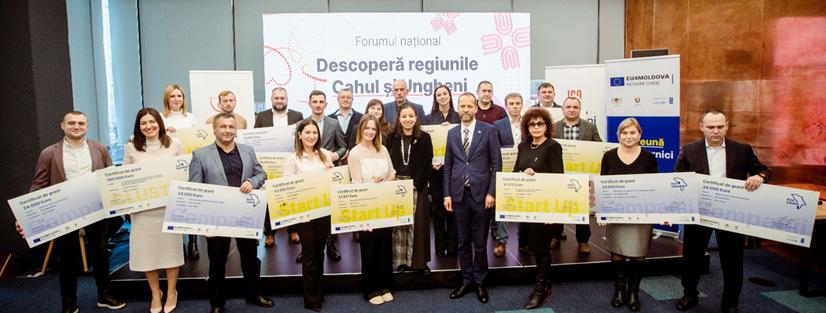
The grants certificates awarding ceremony took place during “Discover the regions of Cahul and Ungheni” National Forum, aiming to promoting the economic and touristic potential of Cahul and Ungheni regions and to improving the local and international perception of the focal regions, as two of the most dynamic regions of the Republic of Moldova.
The list of clusters in Cahul and Ungheni region that benefit from grants can be accessed here
The list of businesses in Cahul region that benefit from grants can be accessed here
The list of businesses in Ungheni region that benefit from grants can be accessed here.
“Thanks to ‘EU4Moldova: Focal Regions’ programme, we will make the first step in our company’s upgrading, by purchasing two ultramodern ovens. Thus, the EU financial support will have a beneficial impact on more than 180 company’s employees, as well as on the residents of the South region of Moldova,”
says Vadim Culidobri, Director of CAHULPAN JSC.
“EU4Moldova: Focal Regions” programme (2019-2024) supports smart, inclusive, and sustainable socio-economic development in Cahul and Ungheni regions, to bring a better quality of life to citizens. The programme has a total budget of €23 million, is financed by the European Union and implemented by the United Nations Development Programme (UNDP) and the United Nations Children's Fund (UNICEF).
For more details about the programme’s activities in Cahul and Ungheni regions, access www.eu4cahul.md and www. eu4ungheni.md
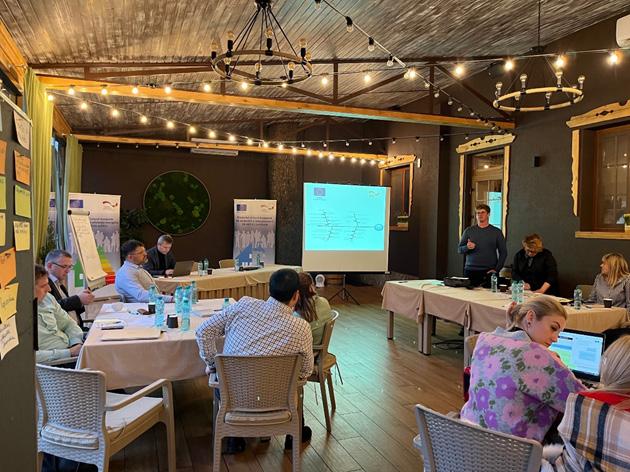
team and experts, participated in a workshop to discuss the next steps and procedures

» Organisation of the hand over procedures of the construction works and the transmission of investment costs to final beneficiaries;
» Risk management;
» Sustainability of investments;
» Inauguration events and visibility activities.
In a collegial environment, MIRD, RDA and GIZ representatives agreed on follow-up actions and next steps to finalise the infrastructure projects, and organisation of the final hand over procedures of the infrastructure to the final beneficiaries, local public authorities. Also, the participants were informed about the financial and narrative reporting of the results in line with the signed Financing Agreements.
The event was organised with the project “Construction of water supply and sewage infrastructure and energy efficiency in public buildings”. The project is funded by the European Union and implemented by the German Development Cooperation through GIZ (Moldova) in partnership with the Ministry of Infrastructure and Regional Development. The total budget of the project is €39.8 million.
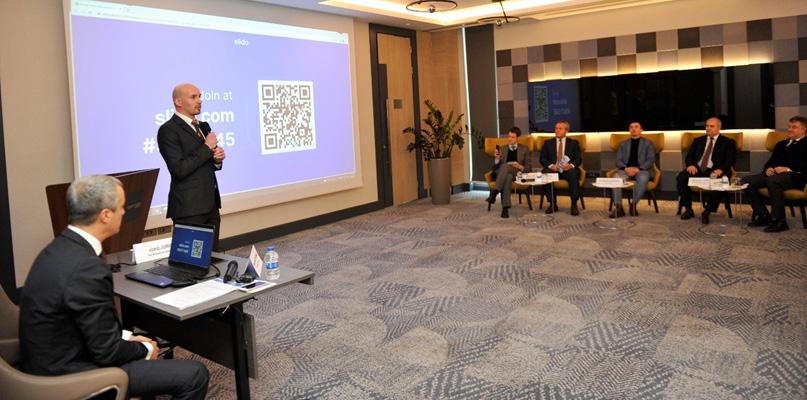
The workshop on Private sector participation in infrastructure & financial market development was successfully held on the 8 and 9 December in Chișinău. The event was organised by the EU Project “Support the Moldovan Government in Identifying and Preparing Projects Linked to the Implementation of the Association Agreement” (PPF Project) and supported by the EU Delegation to Moldova.
The workshop gathered more than 80 participants from government institutions and other public bodies, international financial institutions operating in Moldova, investors, private sector associations and university students in an interactive discussion on the prospects for private sector investment in the country.
The first day of the workshop focused on the large infrastructure projects supported by the private sector. After opening words by Magdalena Mueller-Uri, Head of Cooperation at the EU Delegation to Moldova, Tigran Krmoyan form RENCO Armestate from Italy/ Armenia shared the successful experience of a private investment case in the energy sector of Armenia. Jose-Luis Gomez Pasqual from Premier Energy brought the discussion closer to home by speaking about
Premier Energy’s experience in Moldova. Final keynote speech of the day delivered by Dr. Mathias von Tucher focused on Danube Logistics experience in Giurgiulești Port, owned by the European Bank for Reconstruction and Development (EBRD). The panel discussion that followed included State Secretary from the Ministry of Finance, Ion Gumene; State Secretary from Ministry of Infrastructure and Regional Development, Constantin Borosan; Head of European
Investment Bank Representation in Moldova, Alberto Carlei; EBRD Associate Director and Senior Banker, Alexandru Cosovan; and PPF Project expert Spyros Valatas.
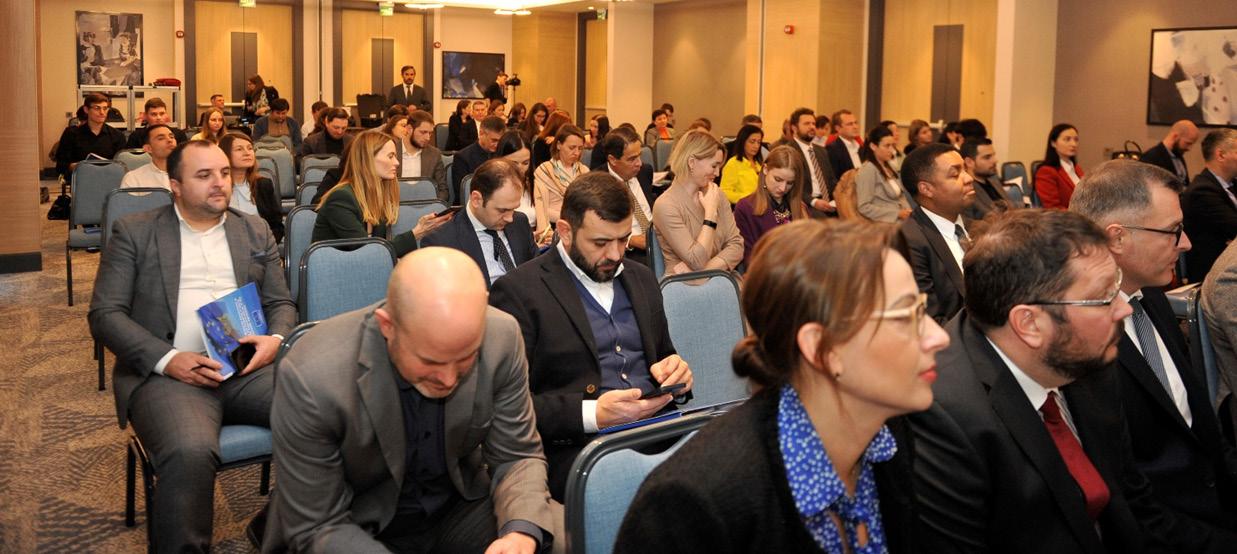
The Victoriabank CEO Bogdan Plesuvescu opened the second day discussion about financing options in Moldova, followed by Paul Swoboda from Grawe Carat, part of Grawe Group from Austria, who spoke about their experience as international insurance company operating in Moldova. The panel discussion welcomed Governor of the National Bank of Moldova, Octavian Armașu; Resident Representative at International
Monetary Fund, Rodgers Chawani; Vice President of National Commission for Financial Markets, Vitalie Lemne; MAIB CFO, Macar Stoianov; OTP Bank CEO, Bogdan Spuza; and PPF Project expert Constantinos Kyriakopoulos. In conclusion of the day Yiannis Skeparnias from Synergy Asset Management Wealth Group in Switzerland discussed international experience in investment finance.
One common takeaway shared by speakers, panellists and participants alike is the importance of predictability for private investments regardless of the sector.
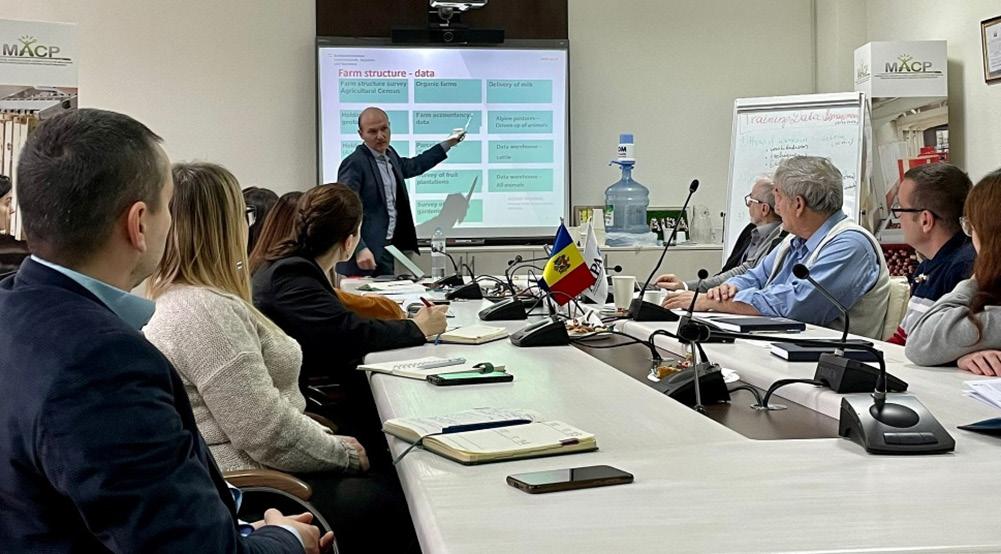
As the Twinning Project "Further support to Agriculture, Rural Development and Food Safety in the Republic of Moldova” finalised its activities in December 2022, these two last months it implemented its last missions through which it continued assisting the Ministry of Agriculture and Food Industry (MAFI) and Agency for Payments and
Interventions in Agriculture (AIPA) on topics regarding Data Management and Institutional Development in line with EU standards for a paying agency. Short-Term Experts from Austria and Poland fruitfully engaged in trainings and meeting which ensured a constant exchange of expertise and transfer of know-how.
For safeguarding that the agricultural and rural development information is efficiently collected, of high quality, reliable, and accessible to the relevant stakeholders, the Twinning Project equipped the relevant staff in MAFI with templates, examples of data collection and comparative analysis, excel tables and specifics about the required IT systems. Furthermore, trainings were organised for relevant staff in MAFI and AIPA during which the importance of data management systems were explained and the participants were trained on the
elaboration of standard reports, the tools which can be used, data interpretation and description. The participants communicated that these sessions were very helpful in the context of advancing capacity building and digitalization processes in the institutions. Since Moldova became an EU candidate country, it is imperative to improve the operating structures’ monitoring and evaluation capacity and advance on evidence-based policy making.
Additionally, during this period, two workshops were conducted on LEADER
administration and documentation as well as on Simplified Costs Options. Discussions were held with the Beneficiaries on how to optimise essential processes and improve implementation. The EU methodology was explained and working examples from Austria were provided. Representatives from MAFI and AIPA were advised on how to reduce bureaucracy in the future and recommendations were given on how to adapt the LEADER regulation for the next years.
The team of Polish and Austrian experts finalised the second accreditation audit in AIPA and all their findings and recommendations were included in an Audit Report. The implementation of recommendations was constantly tracked and support in reviewing AIPA’s procedure and policies was provided as needed. The Final Audit Report was presented during a high-level meeting attended by the Minister, representatives of AIPA, MAFI, State Chancellery, Ministry of Finance, and the Parliament. The participants reiterated their commitment towards strengthening AIPA since a strong Paying Agency is imperative
for Moldova to have access to pre-accession EU funds. The Twinning Project is confident that AIPA was equipped with the needed expertise and know-how for it to continue its institutional development in line with EU standards.
As stated before, the Twinning Project finalised its activities in the end of December 2022. During the closing meeting on 15 December, the completed goals and objectives were presented to honourable guests. The Ambassadors of Austria, Poland and Lithuania as well as the Head of EU delegation to the Republic of Moldova reiterated their commitment to further support the country in its reform process. The Beneficiary Institutions reported tangible results achieved with the support of the RTA and short-term experts and highlighted their willingness to continue to progress and continue the adjustment to EU standards of the elaborated policies. The Twinning Team and the EU delegation representatives stressed their appreciation for the dedication and work done by their counterparts and expressed their believe in a European future for Moldova.
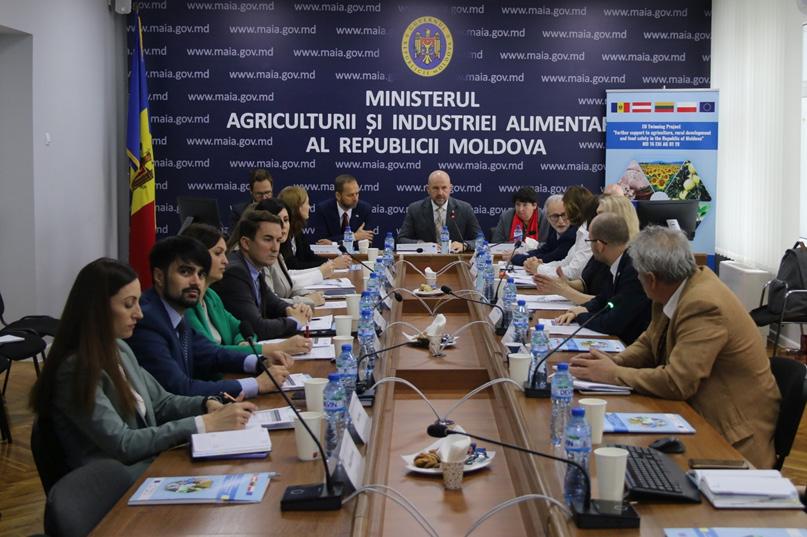
Journalists from the Republic of Moldova are invited to participate in a competition of media articles on debunking myths in the energy sector, launched by the European Union’s programme "Addressing the impacts of the energy crisis in the Republic of Moldova", implemented by UNDP Moldova. The competition is open from 23 November 2022 until 31 March 2023. Submitted articles should cover in a professional manner topics related to the energy sector, with an emphasis on debunking myths which refer to the use of electricity, natural gas, fuels, and renewable energy, as well as its impact
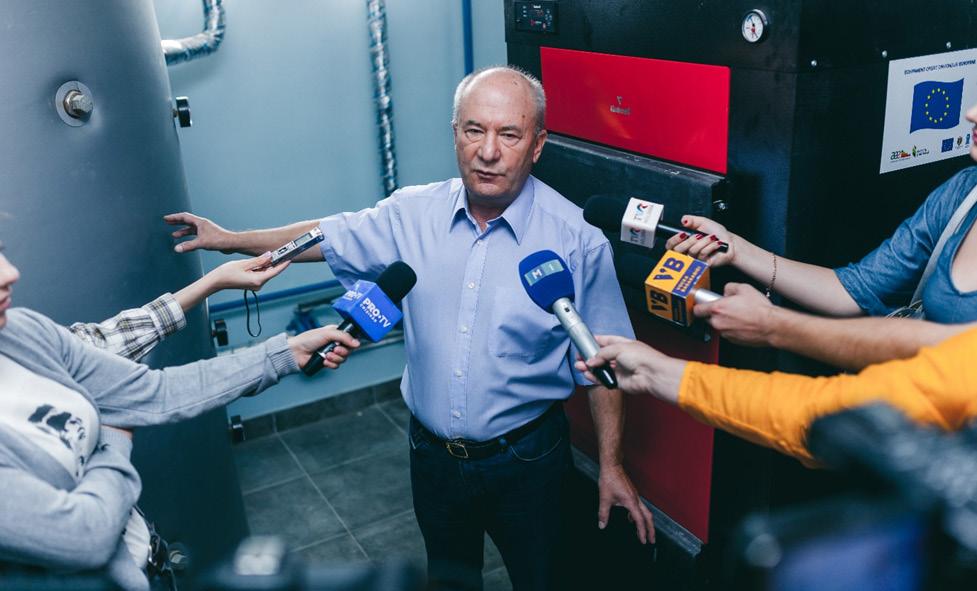
Each submitted portfolio should contain at least three materials published between 1 January 2022 and 31 March 2023, the CV of the author or authors, if a team of journalists will participate in the competition.
A jury formed by media professionals and experts in the energy field will examine the works admitted to the contest and will select the winning articles.
For more information, please access: https://euneighbourseast.eu/opportunities/ moldova-eu-media-competition-to-debunkmyths-about-the-energy-sector/
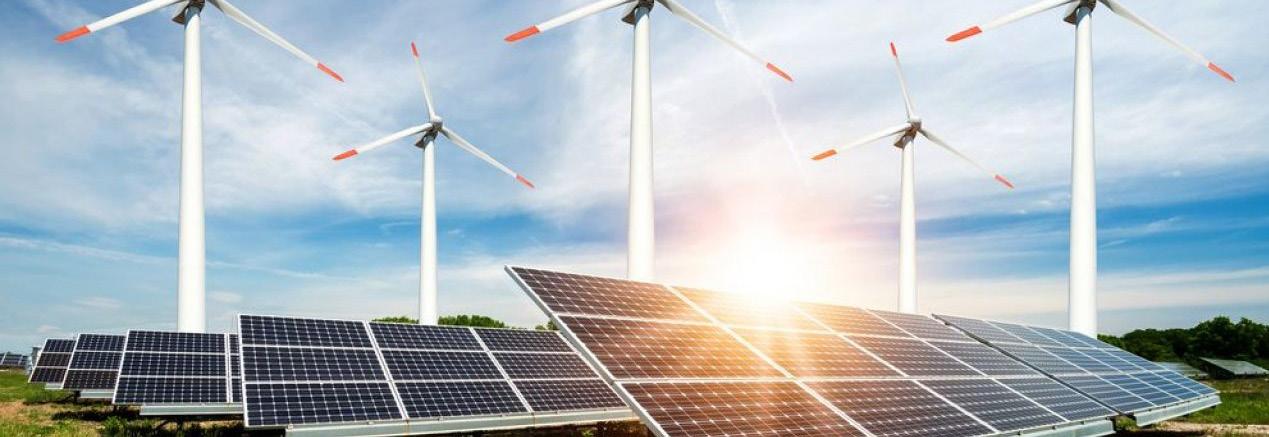
Biomass boilers in over 100 public institutions are being tested and prepared for the cold season and boiler operators trained by a team of experts contracted by the “Addressing the impacts of the energy crisis in the Republic of Moldova” programme funded by the European Union and implemented by UNDP Moldova, in partnership with the Ministry of Infrastructure and Regional Development.
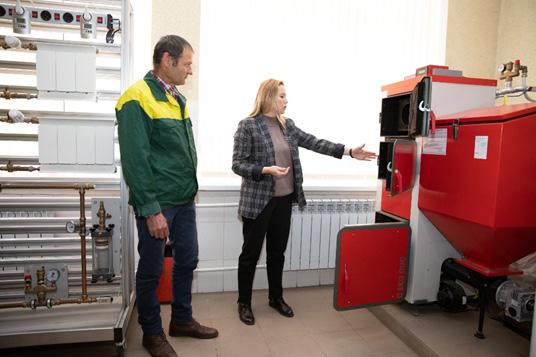
By the end of the year, 100 boilers will be checked. Sixty-nine boilers were detected as not functional or with various technical issues. Out of them, fifty-one have already been inspected and verified. The programme’s experts found that besides maintenance and operation, the main issues relate to the lack of a service agreement with a company that would be authorised to carry out the maintenance works before the cold season and the lack of the needed amount of solid biomass fuel contracted by the authority that owns the boiler. At the same time, there are public institutions that made budget allocations for energy resources, but these are used to purchase natural gas for heating and not biomass.
At the same time, a series of trainings for
institutions started in October, at the Centre of Excellence in Construction. The first group, 20 people, graduated the training on 30 October. Until the end of the year, 100 operators are going to be trained via this Centre. Other 100 people, who have been previously trained or have the respective qualifications, will be trained across the country.
To protect biodiversity from illegal and misused forest biomass burnt for energy and ensure the quality of solid biofuels placed on the market, the programme will support the re-accreditation of the Laboratory for testing biofuel quality, regulation of market placement and quality verification. Investment is planned to be made in operator training centres, involving biomass boiler operators. For the European Union, accelerating the uptake of renewables and energy efficiency remain the best solution for energy security and climate ambitions. With a budget of €10 million, the “Addressing the impacts of the energy crisis in the Republic of Moldova” programme helps fight climate change by reducing the impact of the energy crisis and mitigating the burden
By using biomass boilers in public institutions, the gas consumption may be reduced by up to 20 million m3 of gas a year
The winners and finalists of the drawing competition for children dedicated to energy efficiency and renewable energy and reducing the impact on the climate
were awarded by the European Union (EU) and UNDP at a ceremony conducted on 14 December. Twelve drawings were included in a calendar for the 2023 year.
The drawing competition, conducted during EU Sustainable Energy Week, was organised by the "Addressing the impacts of the energy crisis in the Republic of Moldova" programme, financed by the European Union and implemented by UNDP.
“Saving energy is all about protecting the environment and saving money. I want to congratulate all the children who participated in the drawing competition and reassure them that they are the Ambassadors of a future Greener and Safer Planet. A greater energy efficiency may be achieved by each one of us separately and all together as a team. The European Union remains committed to support the Republic of Moldova in tackling the energy crisis and stimulating green transition through investments in renewable energy,“ stated Jānis Mažeiks, Ambassador of the European Union to the Republic of Moldova.
More than 370 pupils from 56 schools aged between 10 and 16 participated in the competition, with works in oil, watercolour, pencil, pen, collage. The drawings were evaluated by a jury comprising of visual artists and representatives of the EU-funded programme.
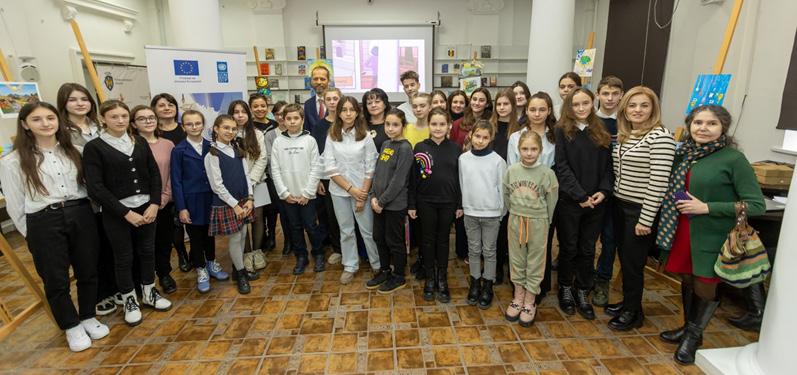
“I was very nervous working on this drawing because it is a complicated and important subject and I am impressed by my colleagues’ works, with whom I competed. I want to thank my art teacher for the inspiration and the European Union for initiating this competition,” said Bianca Mateiciuc, 14, “Ginta Latină” high school in Chișinău.
With a budget of €10 million, the programme "Addressing the impacts of the energy crisis in the Republic of Moldova" contributes to the fight against climate change by reducing the impact of the energy crisis and alleviating the burden of energy poverty.
The importance of energy efficiency has probably never been clearer than these days. The Republic of Moldova in particular is facing enormous challenges, especially in view of the upcoming winter. The country is almost entirely dependent on gas supplies from Russia and has been in a gas crisis since the fall of 2021. Against this background, improving energy efficiency plays an enormously important role in the country. This is precisely where one of many measures of the European Union comes in. Besides this, the EU also makes sure that more Moldovan people get access to water and sanitation systems.
With a total budget of €39.8 million, the European Union is financing the “Construction of Water Supply and Sanitation infrastructure as well as Energy Efficiency in public buildings” project which is implemented by the German Development Cooperation through GIZ in Moldova in partnership with the Ministry of Infrastructure and Regional Development of the Republic of Moldova. As a result of this project, more than 5,000
staff enjoy improved education conditions and a comfortable teaching environment. Thanks to the energy efficiency measures, the annual normalised energy consumption and the annual normalised CO2 emissions have been reduced. Within the framework of the water supply and sanitation infrastructure measures, more than 100,000 people have access to reliable drinking water and centralised sanitation services.
Between October and December 2022, partners from national, regional and local level celebrated other four inauguration events for five projects: in Flămânzeni on 2 October, in Ungheni on 9 November (for two projects), in Edineț on 23 November, and in Călărași on 8 December.
The relevance of these events was made clear by the high-level participation of President of the Parliament of the Republic of Moldova Igor Grosu, Prime Minister Natalia Gavrilita, Deputy Prime Minister and Minister of Infrastructure and Regional Development Andrei Spinu, as well as of the ambassadors and representatives of the European Union
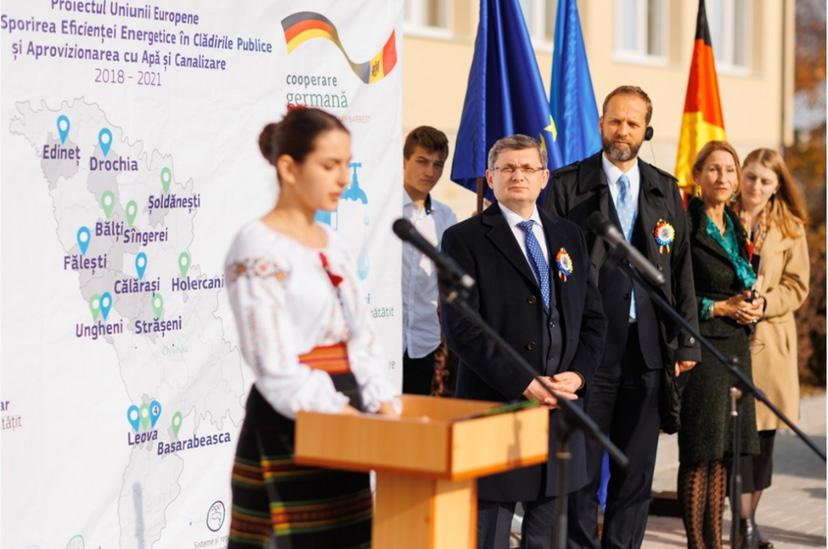
EU and German support for Moldova in improving energy efficiency in schools and ensuring access to water and sanitation
On the occasion of the inauguration of the renovated gymnasium from Flămânzeni village, Igor Grosu, the President of the Parliament of the Republic of Moldova, said:
“Ensuring energy security is a government priority. Investing in the energy efficiency of public buildings, homes and businesses will help us lower the cost of energy resources, as well as respond to environmental challenges that become increasingly more frequent due to climate change. I am glad that, thanks to our development partners, similar projects are being carried out in dozens of localities across the country and will change the lives of thousands of people for the better.”
In Edineț, at the celebrations for the finalised water project, Natalia Gavrilița, Prime Minister of the Republic of Moldova said:
“The development of rural settlements, the rehabilitation of roads and the water and sewage infrastructure are among the priorities of the Cabinet I lead. As an example, in this sense, the project initiated by the Government - the European Village, launched in the summer of this year. We want to witness the launch of the 500 projects, which are being implemented in the localities selected through the competition, and to see the construction of new water supply and sewage systems, street lighting projects or photovoltaic parks in a year's time. We want to attract investments in the villages, and for people to have well-paid jobs, modern living conditions and thus stay in the country, at home, with the whole family.”
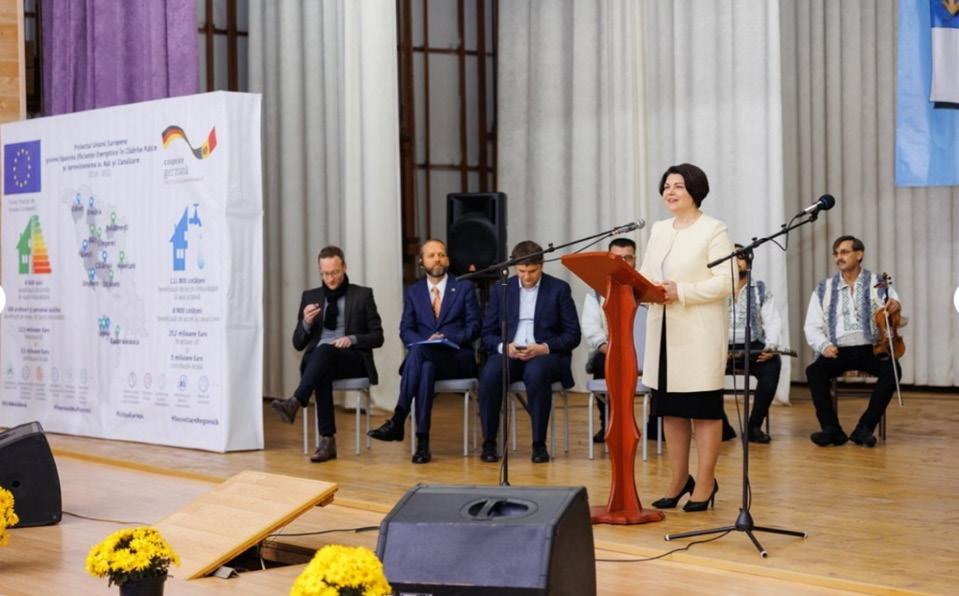
In Ungheni, two projects have been finalised and celebrated in November. Jānis Mažeiks, Ambassador of the European Union to the Republic of Moldova:
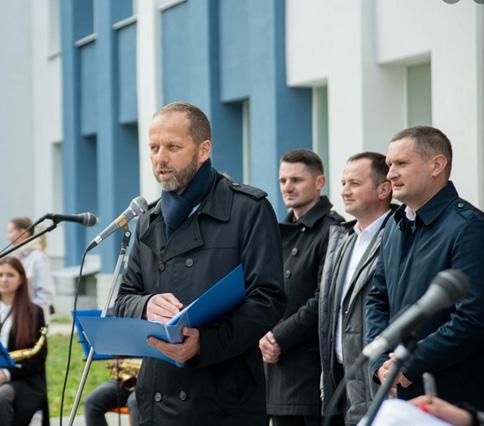
“The EU has contributed almost €40 million to support increased access to public services at the local level in the Republic of Moldova, and I am proud to see the results here in Ungheni, because investing in the younger generation is the best investment for the future. I am glad to see that the efforts made to increase energy efficiency yielded results, and today the ‘Mihai Eminescu’ Theoretical Lyceum can serve as an example for other public institutions in this regard. In addition to energy efficiency measures, today we are also marking the completion of the extension and rehabilitation of the water supply and sewage system. Both projects are aimed at improving people's quality of life and protecting the environment, and the EU is with Moldova on this journey.”
The construction works in the 8 schools include, inter alia:
» renovation of the roof,
» insulation of the exterior walls of the building,
» rehabilitation of the interior heating system,
» installation of photovoltaic systems for the production of electricity,

» provision of domestic hot water and
» renovation of interior bathrooms of the institution.
The EU-funded infrastructure projects were accompanied by capacity development measures and energy management measures supported by the German Government, and a vast array of energy related curricula features for the pupils for which the teachers mobilised efforts. In cooperation with the Centre of Continuous Education in the Energy Efficiency in Public Buildings of the Technical University of Moldova, training modules were developed, piloted, institutionalised and delivered. In cooperation with the Chamber of Commerce and Industry, EUREM European EnergyManager Trainings were delivered. The construction works within the EU-funded infrastructure projects on water supply and / or sanitation included for example:
» improved or extended water supply network systems,
» Installation of water reservoirs,
» improved quality of drinking water,
» renewed technical infrastructure and
» improved or extended sanitation network.
Accompanying measures supported by the German Government included the development of strategic documents in water supply and sanitation, an increase of the service capacity of the water suppliers. Also, new leakage detection equipment for improving the technical efficiency has been procured, drinking water quality laboratories have been upgraded and service workers received equipment and clothing in support of increased labour safety.
The remaining four inaugurations for the renovated schools with increased energy efficiency in Bălți, Basarabeasca, Leova and Șoldănești will be organised in 2023.
Which are the most vulnerable population groups in need of emergency interventions to overcome the energy crisis and how has the current increase in energy prices affected their living standards? What impact has the energy crisis had on personal debt growth and what are the measures to mitigate the negative effects of the energy crisis?
Answers to these and other questions can be found in a study on the indebtedness of the most vulnerable households in Moldova in the context of the energy crisis, carried out by People in Need Moldova in partnership with the Institute for Development and Social Initiatives (IDIS) “Viitorul”, with the support of the European Union.
The research includes information on the impact of the energy crisis estimated on the basis of open data, the opportunity and risks of loans to individuals to overcome the energy shock in 2022, the measures of the Government of the Republic of Moldova to mitigate the negative effects of the energy crisis, as well as a synthesis of qualitative measurements – structural interviews with people from vulnerable groups on the impact of the energy crisis.
The results and recommendations of the study, prepared by economic expert Veaceslav Ioniță, were presented at a round table held at the end of November,
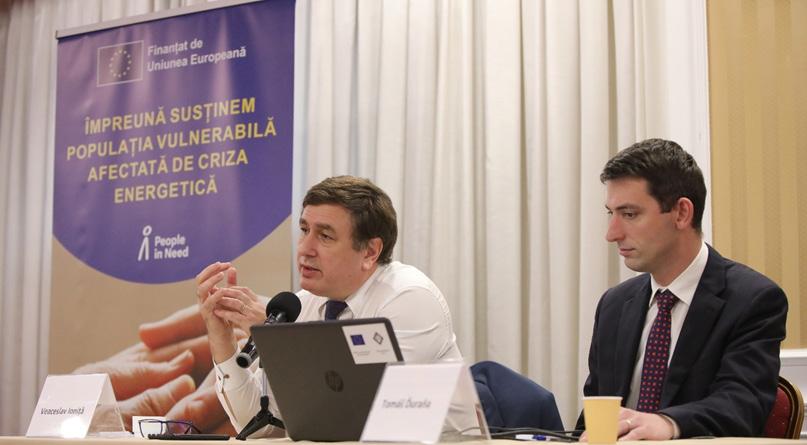
attended by representatives of central public authorities, non-governmental and international organisations working in the Republic of Moldova.
Tomáš Ďuraňa, Head of Programmes at People in Need Moldova, said at the presentation of the study:
“The issue of energy indebtedness is becoming more and more acute in the Republic of Moldova and requires huge financial costs not only from the Government but also from all actors involved in this
support to the most vulnerable people in Moldova. It is very important for us to analyse and understand the data and trends in indebtedness related to high energy costs and see how the situation can be improved in the long term.”
During the event, Veaceslav Ioniță noted that the measures to support the population, announced by the Moldovan Government and adopted by law by the Parliament, provide feasible solutions for most of the vulnerable population in rural areas, who heat in the cold season with wood and coal, provide partially satisfactory solutions for vulnerable population groups in urban areas with central heating, but have an insignificant impact on urban and rural households connected exclusively to natural gas, without the possibility of accessing energy alternatives.
“Ninety percent of the rural population is dependent on wood and coal, with only 10% of them having access to natural gas heating. Considering that the rural population in the Republic of Moldova is, according to data from 2022, about 1.5 million (the population with ordinary residence, at the beginning of the year), or 58% of the total population, this means that the vast majority of the rural population is in a situation of extreme energy poverty,” said the expert, referring to the study data.
According to him, the energy crisis will force people to borrow to overcome the difficulties of the cold season. This objective trend is taking place against the backdrop of restrictive monetary policies of the National Bank, which have already led to higher credit prices and tighter lending conditions from banks. Citizens are forced to migrate from banks to non-bank institutions and moneylenders, which are more expensive, tougher and more complicated to administer. According to the survey, at least 35,000
families have already found themselves in a financial trap, with no prospect of being able to repay the money they borrowed, and about 3% of citizens said they had debts from at least 3 sources.
Veaceslav Ioniță notes in the study’s recommendations that the government’s policy to support the population in the context of the energy crisis must be based on two dimensions: support for socially vulnerable groups, depending on their income, and differentiated support for certain categories of the population, depending on the source of energy consumed. These policies must be implemented by capping the price of energy resources up to a certain level of consumption, with compensation for differences to the supplier of wood –5-pound metres for the heating season, and to the supplier of natural gas – 150 m3 per household per month, while providing additional financial support to certain vulnerable groups.
The author of the study concluded that under the policies proposed by the Executive, wood at the capped price is not issued per household but per person, so that the most affected segments of the vulnerable population – the solitary elderly people – will benefit from less wood than other vulnerable categories with higher incomes, such as couple families. In the expert’s view, the price cap policy should be targeted at the household and the financial compensation at the individual. The cumulative impact of these instruments, the author believes, will create a differentiated effect on the population: all consumers will benefit from price caps, and the most vulnerable will also benefit from financial support to cope even with already capped tariffs.
The study on the indebtedness of the most vulnerable households in Moldova in the context of the energy crisis was carried out in the framework of the project “Supporting together the vulnerable population affected by the energy crisis”, implemented by People in Need Moldova and funded by the European Union through the Service for Foreign Policy Instruments (FPI).

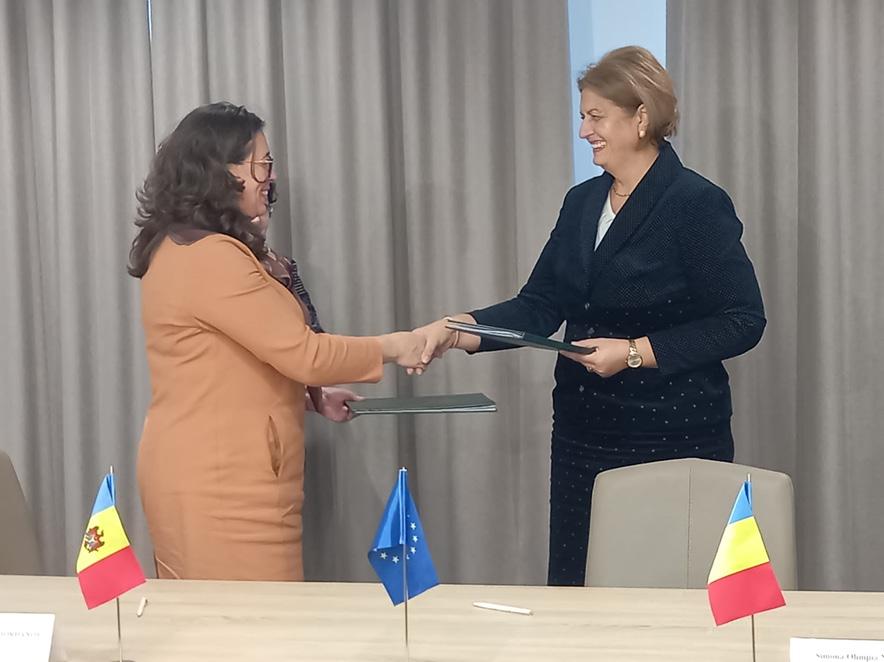
With support of the EU4Environment Water Resources and Environmental Data Programme, on 2-3 November 2022, in Chișinău was conducted the 2nd Ordinary Session of the Intergovernmental
Hydrotechnical Commission for the implementation of the Agreement between the Government of the Republic of Moldova and the Government of Romania regarding cooperation for the protection
and sustainable use of the Prut and Danube waters, signed in Chișinău on 28 June, 2010. After more than 11 years, the Intergovernmental Commission for the implementation of the Agreement on cooperation for the protection and sustainable use of the Prut and Danube waters held its 2nd regular session from 2-3 November 2022, in Chișinău. The meeting was possible to organize thanks to the EU4Environment Water resources and Environmental data Programme, and was jointly organised with the Ministry of Environment of the Republic of Moldova.
The cooperation Agreement between Moldova and Romania was signed in June 2010 and applies to the Prut River, joint sector of the Danube River, the transboundary aquifers and the Costești–Stânca hydrotechnical node on the Prut River. Its purpose is to establish the legal cooperation framework for, among others, the following activities:
» operation of the Costești-Stânca hydrotechnical node on the Prut River;
» joint consultations and activities in order to implement the EU Water Framework Directive and Floods Directive;
» operational exchange of data and information;
» creation of a common warning system about dangerous phenomena (floods, droughts, ice).
At the meeting, the Moldovan delegation presented the initiative to enlarge the collaboration between countries. Thus, Moldovan delegation proposed to extend the collaboration from managing only common transboundary waters to the entire river basin, as well as involving Ukrainian experts to work on the entire Prut River Basin and Danube Delta. This, trilateral initiative would work at the expert level, under the International Commission for the Protection of the Danube River (ICPDR) umbrella. EU4Environment Water and Data Programme will support the countries to establish this collaboration and will support organisation of the first trilateral working meeting next year.
EU will continue to support and develop the transboundary cooperation of Republic of Moldova with its neighbours on managing and protection of the international river basins. Thus, helping Moldova fulfilling its international commitments and getting closer to the EU family.

Under the framework of the EU4Environment Water Resources and Environmental Data Programme, on 7 and 8 December 2022, in Chișinău was conducted the meeting of the Working Group for monitoring and information exchange within the “Commission for the sustainable use and protection of the Nistru River basin”.
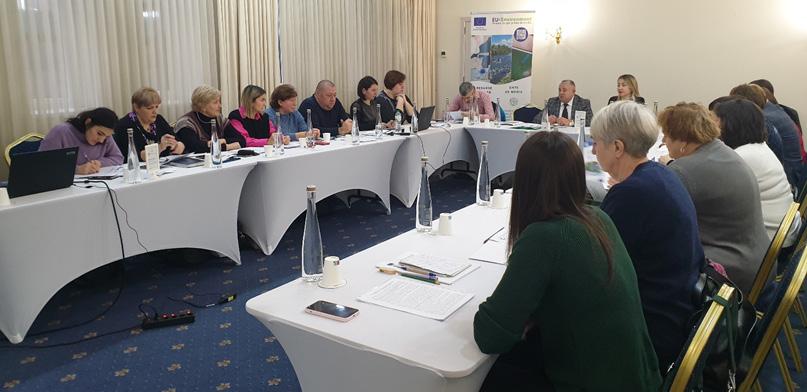
On 7-8 December 2022, in Chișinău, the Environment Agency from Moldova hosted the meeting of the MoldovanUkrainian Working Group for Monitoring and Information Exchange within the "Commission for the sustainable use and protection of the Nistru River basin (Nistru Commission)".
The event was attended by the members of the national working group and the institutions with responsibilities regarding monitoring in the Nistru River basin from both countries.
Based on the cooperation agreement signed between the Republic of Moldova and Ukraine, the Environmental Agency is responsible for monitoring of the water quality of the Nistru River basin at the points established by mutual agreement between Moldova and Ukraine. Thus, during the meeting, both countries presented information on the quantity and quality of surface waters, both according to hydrochemical and hydrobiological parameters, groundwater monitoring, progress, but also the problems
encountered in the joint activity of using and protecting the water of the Nistru River basin.
Finally, the revised version of the Collaboration Regulation on monitoring and exchange of information for the Nistru River basin, in a cross-border context, was approved. Also, the Working group approved the Work Plan for the years 2023-2024.
One of important subjects of discussions was the discharge of high volumes of water from the Novodnestrovsk reservoir (urgent need of electricity due to bombing the infrastructure by Russia), which is located in Ukraine, on the Nistru River upstream Moldova. The Ukrainian hydro-energetical authority did not informed Moldavian
authorities regarding the discharge of huge volumes of water, thus the authorities in Moldova did not have time to react to these volumes. Fortunately, high waters in Nistru River have not damaged or flooded critical sites or localities in Moldova. However, due to lack of timely information exchange in critical situation and thus the delay of Moldavian authorities to react, can lead to catastrophically floods in Moldova.
Thus, to avoid any possible emergency situations in Moldova, EU will continue to support Moldova’s effort in strengthening its collaboration with Ukraine on monitoring of surface and groundwater, as well as timely sharing the available data, in the Nistru River Basin.
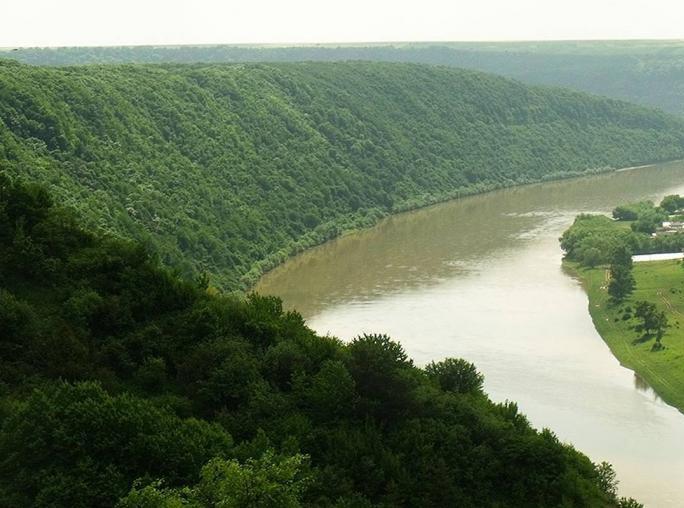
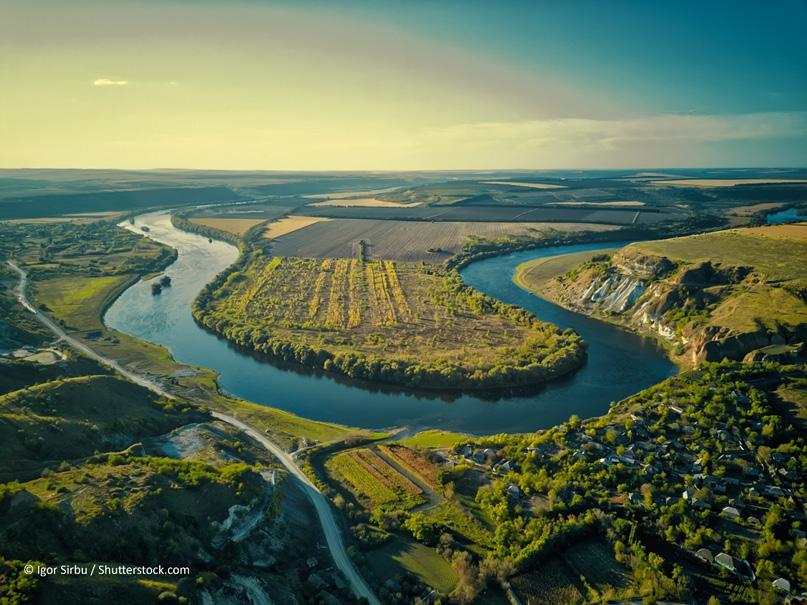
Moldova shares the Nistru river basin with Ukraine and the Prut sub-basin to the Danube River with Romania and Ukraine. The three countries have signed treaties to foster cooperation and find solutions to their shared water quality problems, declining biodiversity and increasingly frequent floods and droughts. Over the past months, the three neighbours have made some progress to advance the protection of their shared waters.
The third meeting of the working group on water monitoring and information exchange of the Commission on Sustainable Use and Protection of the Nistru basin took place in Chișinău, Moldova on 7-8 December 2022,
and Data programme. Moldova and Ukraine presented information collected during joint water surveys on the quantity and quality of surface and groundwater. Participants shared the lessons learnt and discussed the possibilities to improve this joint monitoring process in the future. The working group approved its work plan for 2023-2024.
Moldova and Romania are resuming cooperation on the Prut and Danube rivers
After a long break, the intergovernmental commission for the implementation of the Agreement on cooperation for the protection and sustainable use of the Prut and Danube waters held its 2nd regular session from 2-3 November 2022. The meeting was organised by the Ministry of Environment of the Republic of Moldova with the support of
About 25,000 inhabitants of the Edineț district will have access to drinking water quality in their households. The new Water Treatment Plant will be built within the European programme EU4Moldova: Local Communities, a Team Europe initiative, which includes a joint effort of the

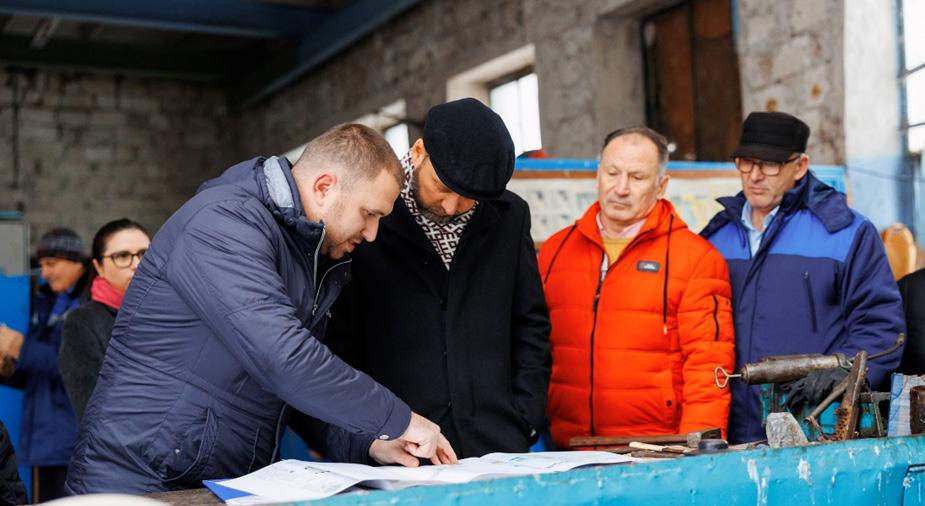
In this context, Jānis Mažeiks, the Ambassador of the European Union to the Republic of Moldova, paid a site visit to the area where the new Water Treatment Plant in Edineț and the intake will be built. Along with representatives of relevant Moldovan institutions, the Ambassador Mažeiks visited the construction area to discuss about the status of the technical design of the project, and also about the major and long-term impact of this regional project and the budget constraints.
The construction will be carried out in compliance with all international and national relevant standards. Qualified international and local experts are involved in the design of the new Water Treatment Plant in Edineț. The project is implemented by the Austrian Development Agency.
The "EU4Moldova: Local Communities" programme is financed by the European Union, the German Federal Ministry for Economic Cooperation and Development (BMZ), the Austrian Development Cooperation (ADC), and the Ministry of Foreign Affairs of the Republic of Poland –Polish aid; and jointly implemented by the German Development Cooperation through GIZ, the Austrian Development Agency (ADA) and the Solidarity Fund PL (SFPL) in Moldova.
A comparative analysis of the Long-Term Low Emissions Development Strategies in the Eastern Partnership countries (EaP) was presented on 10 November 2022 at a COP 27 side event hosted by the United Nations Development Programme (UNDP).
As countries come together to take action toward achieving the world’s collective climate goals agreed under the Paris Agreement and the United Nations Framework Convention on Climate Change (UNFCCC), Long-Term Low Emissions Development Strategies (LT-LEDS) are recognised as one of the key national planning exercises for the implementation of Nationally Determined Contributions (NDCs).
“Helping our Eastern Partners to mitigate climate change and to advance on the path towards carbon neutrality is a clear priority for the EU”, said Lawrence Meredith, Director for the EU`s Eastern Neighbourhood and Institution Building at the European Commission. “With the regional programme EU4Climate, we are facilitating this process by helping our partner countries to develop Low-Emissions Development Strategies as the foundation for building a resourceefficient, low emission, and climate-resilient economy.”
The comparative study presented at the event focuses on the targets set in the draft LEDS, particularly on additional NDCs targets regarding adaptation and gender equality, and on the EU role in assisting the region with increasing long-term ambition in EaP countries. With their ambitions, Armenia and Georgia state that climate neutrality is the goal for 2050. Gender-responsive energy policy in Azerbaijan through the usage of hydropower, solar and wind energy,
and energy efficiency empowers women and leads to improved well-being, gender equality and social justice. In Moldova, the LEDS covers only the time until 2030 and lays down the action plan to implement the NDC2. Here, it should be noted that Moldova’s NDC2 target for 2030 is the one with the highest ambition. Ukraine’s ambition is to achieve climate neutrality by 2060.
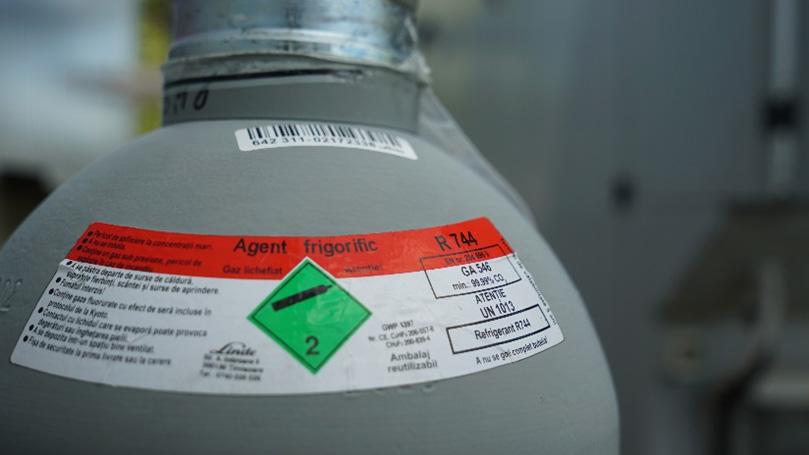
EU4Climate helps governments in the six EU Eastern Partner countries (Armenia, Azerbaijan, Belarus, Georgia, the Republic of Moldova and Ukraine) to take action against climate change and towards a lowemissions and climate-resilient economy. Funded by the European Union (EU) and implemented by UNDP, EU4Climate supports countries in implementing the Paris Agreement and improving climate policies and legislation with an ambition of limiting climate change impact on citizens’ lives and making them more resilient to it.
For more information, please access: bit.ly/EU4Climate_study
On 27 December 2022, jointly with the EU-funded “European Union for Environment (EU4Environment)” Programme and AO EcoContact, organised a consultative debate workshop on the final draft Ecolabel Regulation.
The event was held online and brought together representatives of national certification and standardization bodies and representatives of business associations. In the framework of the consultations, involved parties discussed the implementation of the Ecolabel system in the Republic of Moldova and the application of Regulation (EC) No 66/2010 of the European Parliament and of the Council of 25 November 2009 on EU Ecolabel.
Essentially, the Regulation aims to establish a voluntary eco-labelling scheme and to promote products and services with a reduced environmental impact during their entire life cycle, compared to other products and services that are part of the same product and service group. The document also sets out the procedure for accreditation and registration of conformity assessment bodies, the requirements for conformity assessment bodies, the procedure for evaluating the conformity of products and services and providing the certificate of conformity, the criteria for providing the ecolabel, the inspection of eco-labelled products and services.
The regulation shall not apply to: medicinal products for human use; veterinary medicinal products; medical devices; food and feed products; products containing substances, mixtures and preparations that can be classified as toxic, dangerous for the environment, cancerogenic or mutagenic for reproduction (CMR) in accordance with Law No 277/2018 on chemical substances.
The eco-label symbol submitted to the State Agency for Intellectual Property for registration was also presented at the event.

At the next phase the Ecolabel Regulation will be consulted publicly before being submitted to the Cabinet of Ministers for approval.
The “European Union for Environment” (EU4Environment) aims to help the Eastern Partnership countries preserve their natural capital and increase people's environmental well-being, by supporting environmentrelated action, demonstrating and unlocking opportunities for greener growth, and setting mechanisms to better manage environmental risks and impacts.
The Action is funded by the European Union and implemented by five Partner organisations: OECD, UNECE, UN Environment, UNIDO and the World Bank based on a budget of some €20 million. The Action implementation period is 2019-2024.
For further information:
https://www.eu4environment.org
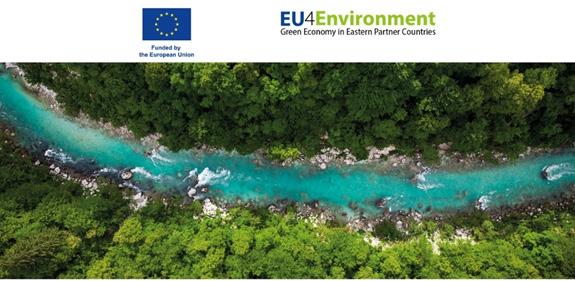
Within EU4Environment Green Economy the Meeting of the Inter-ministerial Working Group on the promotion of Sustainable Development and Green EconomyEU4Environment Green Economy National Implementation Committee in the Republic of Moldova, which marked this year 7 years of its activity since foundation, took place to review the performances of the green economy promotion in Moldova.
Meetings of Moldova’s Inter-ministerial Working Group on the promotion of Sustainable Development and Green Economy (also acting as the National Implementation Committee (NIC) for the EU4Environment programme) aim to review progress in greening the national economy and discuss the necessary activities by all relevant stakeholder to accelerate this process.
These meetings are supported by the EUfunded EU4Environment programme, as part of its component Output 1.1 on “Green economy ownership, policy coherence and cross-sectorial coordination”, which is implemented by the UN Environment Programme (UNEP). Thanks to the EU’s and UNEP’s support, the Inter-ministerial Working Group has recently marked 7 years of activity (2015-2022).
The previous Meetings of the WG/NIC took place on 9 September 2021 and 18 February 2022. The meetings were in a virtual format and attended by the EC, EUD, all EU4Environment Implementing Partners, EU4Environment NFPs and NIC/ WG members and NGOs from Moldova. The implementation of the EU4Environment
programme in Moldova in 2021 and presentation of detailed plans/activities under EU4Environment sub-components for September-December 2021 and general plans for 2022, including regional EU4Environment events were discussed and approved. At the meeting on 18 February 2022 the GGIs report and Web Platform on GGIs was launched and the workplans for 2022 presented and discussed.
Meeting objectives:
» progress of EU4Environment in Moldova so far (all EU4Environment Green Economy IPs),
» preparations for the EU4Environment Regional Assembly (OECD),
» national BIG-E objectives (Nicosia EfE Ministerial Conference) (MoEnv),
» process of drafting of the Program on the promotion of Green Economy for 20232027 (UNEP),
» process of drafting of the Law on payments for pollution and taxes for natural resources (OECD),
» World Cleanup Day 2022 in Moldova (national campaign - 01-17.09.2022 and Cleanup Day, September 17) (all partners), and
» synergies with other projects.
The products we buy and consume, the food we eat, the homes we live in, how we move around, what we do for leisure and how we handle our waste – all have an impact on the planet. Governments and businesses have a crucial role in driving sustainability, but our everyday choices are also very important.

In the Republic of Moldova, improved waste management and sustainable mobility have been identified as strategic priorities through which citizens can actively minimise
environmental degradation while improving their health and wellbeing, while also saving money.
EU4Environment Green Economy, funded by the European Union, works with Eastern Partner countries to deliver policy and legislative changes, make planning and investment greener, stimulate the uptake of innovative technologies, adopt new business models, and create green jobs.
The European Commissioner for the Environment, Oceans and Fisheries, Virginijus Sinkevicius met on 25 November, 2022 with the Minister of the Environment, Iordanca-Rodica Iordanov. The high level
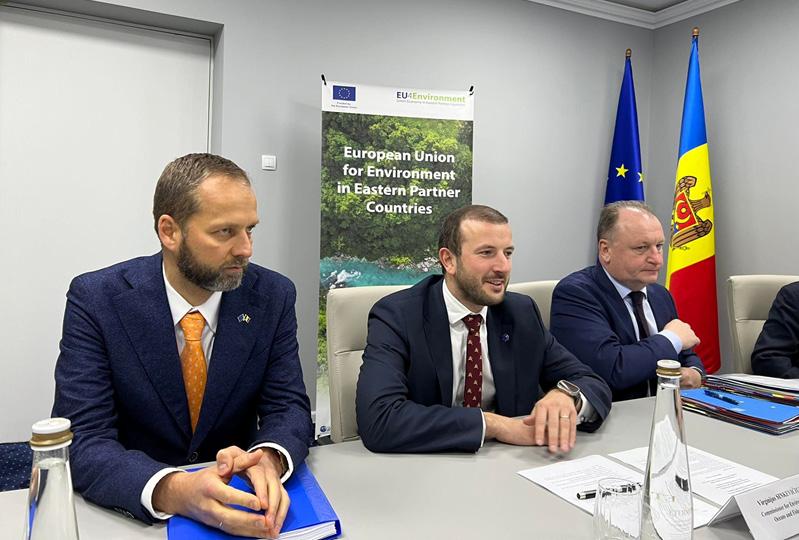
visit denotes the desire of the Republic of Moldova to become more resilient in the face of climate change and to align as soon as possible with European environmental legislation.
Minister Iordanov appreciated the visit of the European Commissioner for the Environment, Virginijus Sinkevicius to Moldova as a great support both for the environment and for the country's political agenda.
The environmental crisis affects us all. Drought, floods, wastes have a global impact, the environment has no borders. Neglecting the long-term risks, we will fight the consequences, but without getting rid of the reasons for the problem, that's why we need to act now",
said the Minister of the Environment, Iordanca Iordanov.
"When reality requires us to make quick decisions in crisis situations, the support of European partners in creating resilience in the face of climate change is a chance for us and the future generation.
The European Commissioner for the Environment, Virginijus Sinkevicius, assured that the EU will continue to provide the Ministry of the Environment with technical assistance in order to strengthen institutional capacities.
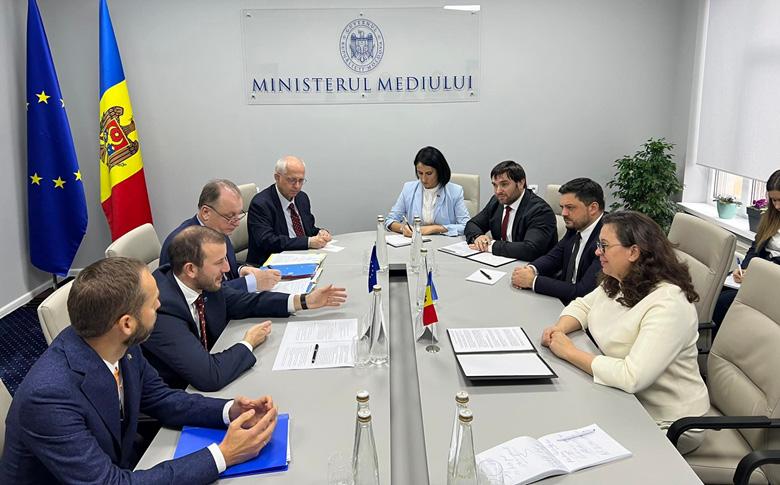
At the same time, the European Commissioner for the Environment, Virginijus Sinkevicius, spoke about the challenges of the country in the process of accession and harmonization with EU legislation: "Implementation of the Community Aquis is not a simple process, but with the right partners everything is possible".
At the moment, the Ministry of the Environment is working on the development of cross-sectoral policies and the integration of EU environmental standards in different sectors, on a series of strategic documents and normative acts to be harmonized with the European Green Pact, focusing on the commitments in the Association Agreement: transposition, implementation and enforcement.
"Advocacy for the field of water resources will continue to remain a priority, especially in the context of the impact of climate change,"
said Virginijus Sinkevicius.
Virginijus Sinkevičius, Commissioner for Environment, Oceans and Fisheries, visited the main EU Information Center in the Republic of Moldova on the occasion of his two-day visit to the Republic of Moldova. The Commissioner met the Young European Ambassadors who used the opportunity to
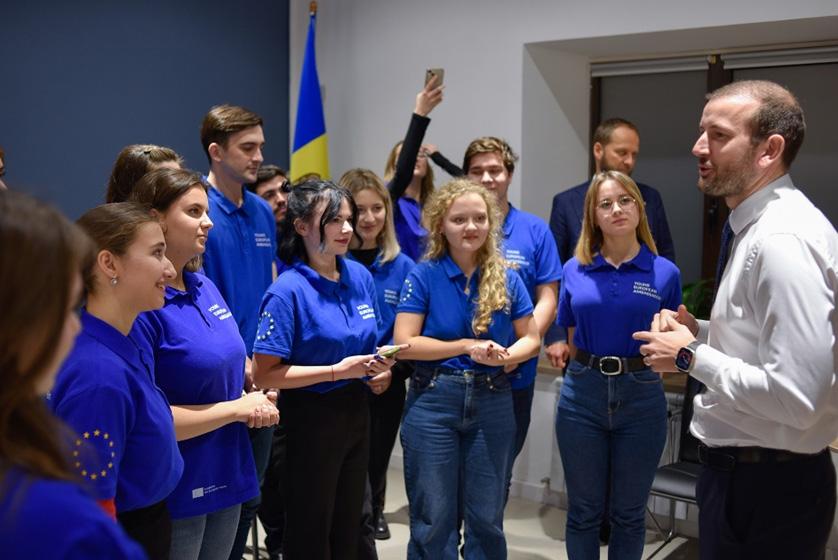
address questions related to the steps to take by the country in the field of environment protection in the context of the EU candidate status of Moldova, the impact of the war in Ukraine on the environment, repercussions of the environmental damages in Ukraine in the long run and other topics.
Virginijus Sinkevičius was a member of the Lithuanian parliament and leader of the Lithuanian Farmers and Greens Union group. Since November 2017, he has been Minister of Economy and Innovation in Lithuania. In 2018, he was included in the list of the 100 most influential young people in the Government and won the award for the best solution for a better business environment.
“Make your voice heard, push politicians for solutions to reduce damages and effects of their decisions on the environment. You have to ask questions and keep them responsible for their actions”.
Virginijus Sinkevičius: “Make your voice heard, push politicians for solutions to reduce damages and effects of their decisions on the environment”
Commissioner Sinkevičius encouraged the Young European Ambassadors to take action and introduce a new behaviour model in their communities. “It all starts at home. When we choose to use the bike instead of a car, when we chose to recycle and give up the use of plastic. The small creates the big and every single step in our communities matter” mentioned the European Commissioner. The meeting with the Young
European Ambassadors was followed by a dialogue of the European Commissioner with representatives of the Civil Society on topics related to approximation of policies in the field of environment in the context of Moldova’s EU candidate status.
On the occasion, Commissioner Sinkevičius also offered interviews to local media outlets.

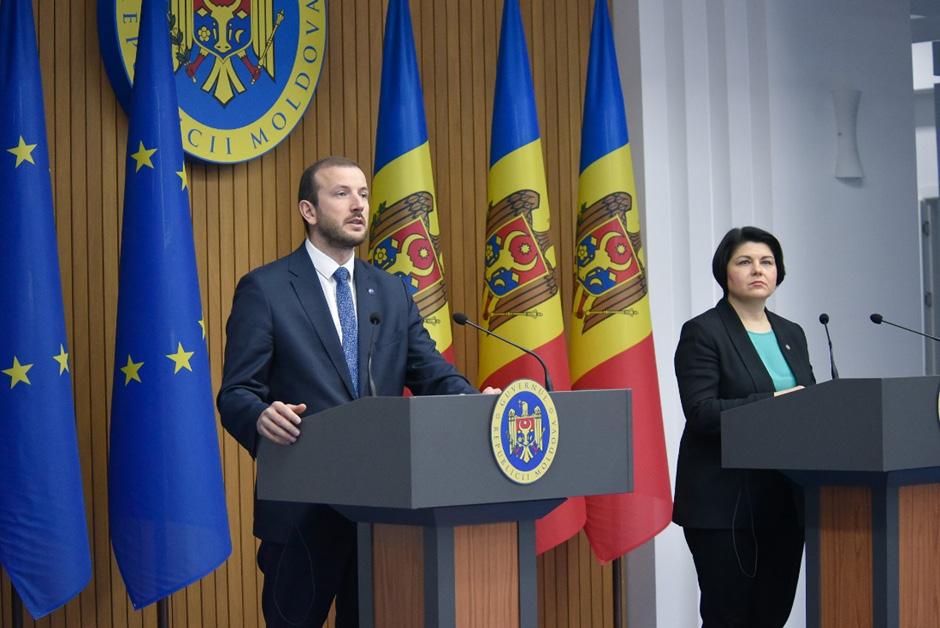
The European Commissioner for the Environment, Oceans and Fisheries, Virginijus Sinkevicius, and the Prime Minister of the Republic of Moldova, Natalia Gavrilița, signed on 26 November 2022 the Agreement on the participation of the Republic of Moldova in the European Union Programme for the Environment and Climate Policies “LIFE” (hereinafter – LIFE).
LIFE is the only EU funding programme exclusively geared towards the support of environmental projects aiming at contributing to the transition to a sustainable and efficient economy based on renewable energy sources and circular economy principles, as
well as protecting the nature, improving the quality of air and water, increasing treatment of wastewater.
LIFE includes the European Union's initiatives and projects for research, innovation and large-scale funding programmes.
non-EU countries, including the Republic of Moldova, to the LIFE, allowing these countries to join the program through bilateral association agreements. Joining LIFE will help Moldova to promote innovative environmental and climate techniques, approaches and good practices that will
contribute to a circular economy, resilient to climate change and that protects and restores nature.
By participating in the LIFE Programme, Moldova will be able to access financing for several projects, which refer to biodiversity, circular economy, transition to clean energy, as well as climate mitigation and adaptation.
Project proposals may be submitted by public entities, private enterprises, NGOs or civil society organisations.
The total budget of the LIFE program for 20212027 is of €5.4 billion. It has co-financed more than 5,800 projects throughout the EU and beyond.
After signing the LIFE Agreement, the officials participated in the planting of 12 maple trees, symbolising the flag of the European Union, in the Chișinău Botanical Garden. By this action, the European Commissioner for the Environment, Oceans and Fisheries, Virginijus Sinkevicius, expressed his solidarity with the “Plant your Future” initiative - a campaign to green Moldova, conducted under the auspices of the country's state authorities.
More information about the Programme for Environment and Climate Action (LIFE) can be accessed at the following link: https://ec.europa.eu/info/funding-tenders/find-funding/eufunding-programmes/programme-environment-and-climate-action-life_en
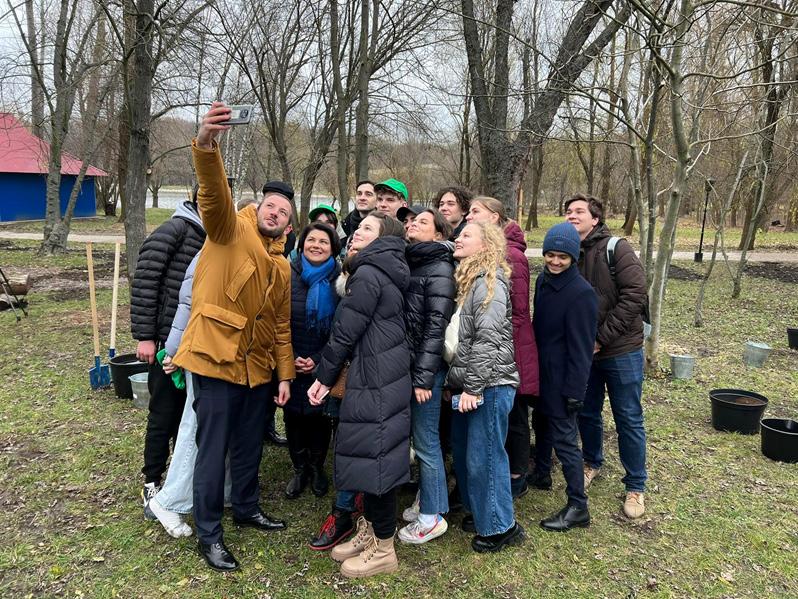

EU4Moldova: Startup City Cahul: Nine entrepreneurs from the south of the country participated in the Digital Upgrade programme to develop their digital skills and learn more about innovations in business development
Nine entrepreneurs from the south of the country, who have businesses in agriculture and the food industry, participated in the Digital Upgrade programme to learn how they can transform their businesses with the help of innovations. At the end, the programme provided SME representatives with knowledge and information that will enable them to acquire, generate and disseminate technological and digital solutions related to process automation, sales, marketing, etc.
Thanks to the Digital Upgrade training sessions, entrepreneurs have already started implementing various work tools and applications.
"In order to keep our businesses afloat, it is necessary to keep up with modern technologies. We, today's entrepreneurs,
are lucky to be able to attend free training courses with valuable mentors. These opportunities to learn and obtain new information take us out of the daily operational routine in which we are caught and help us see our business from a different perspective, help us find viable solutions for current challenges and find opportunities for development. As an entrepreneur, I am amazed how much effort is made by the organizers to inform and support us. I hope there will be as many entrepreneurs as possible who will benefit from these opportunities and who will be brave enough and determined to participate in the proposed projects and implement the knowledge gained in their companies"
says Natalia Arman-Matas, entrepreneur from the Cahul town.The participants showed a particular interest in process automation solutions, as they allow them to save time and money, but also to increase the productivity index.
For some entrepreneurs, digitisation platforms were a real novelty, and for others – it appeared the need to raise the level of digitisation of employees. At the same time, Digital Upgrade focused on the importance of social networks as a tool to promote and increase sales.
At the same time, representatives of SMEs from the south of the country were helped to create business development strategies and had information sessions provided by experts in the field.
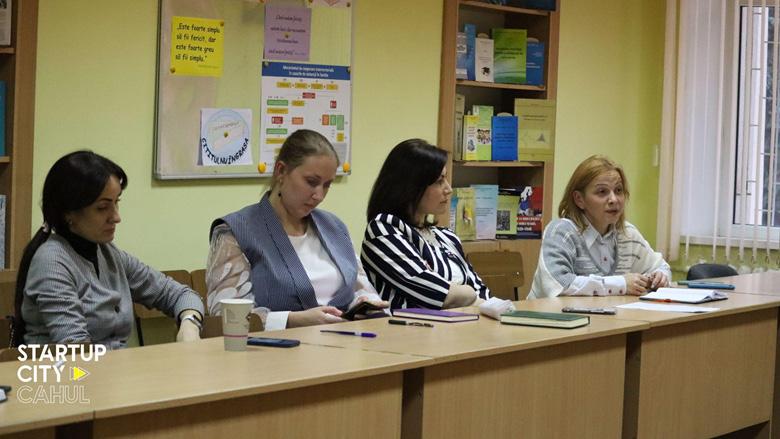
The totalisation of the results of the Digital Upgrade programme took place in Cahul, aiming to identify the needs of entrepreneurs.
Together with the participants of Digital Upgrade, the event was attended by Liliana Ceclu, the dean of the Faculty of Economics, Engineering and Applied Sciences of the "Bogdan Petriceicu Hasdeu" Cahul State University, who highlighted the role of the institution in supporting entrepreneurs, through counselling, offering the workforce, and creation of intelligent software for process automation.
"The universities of the Republic of Moldova are one of the important elements of the triangle of knowledge: education, research, innovation. This is a priority in the process of forming the current society, which allows the development of entrepreneurial teaching-learning and perfectly combines education with research-developmentinnovation, contributing to the development of a sustainable economy",
says Liliana Ceclu."There are many useful things that I learned during the tracking sessions. I definitely recommend such sessions, especially to those who are really determined to learn something new",
says Veaceslav Burlacu, beneficiary of the Digital Upgrade programme.
The Digital Upgrade programme was carried out within EU4Moldova: Startup City Cahul, a project implemented by ATIC and financed by the European Union in partnership with Sweden.
The programme aimed to provide a framework for learning and exchange of experience that would contribute to
the development of human capital by strengthening the capacities of SMEs in the Cahul region, to stimulate the demand for innovative digital products and services in the region, as well as to encourage SME owners and managers to initiate digitisation programmes by attracting investments and grants offered for this purpose.
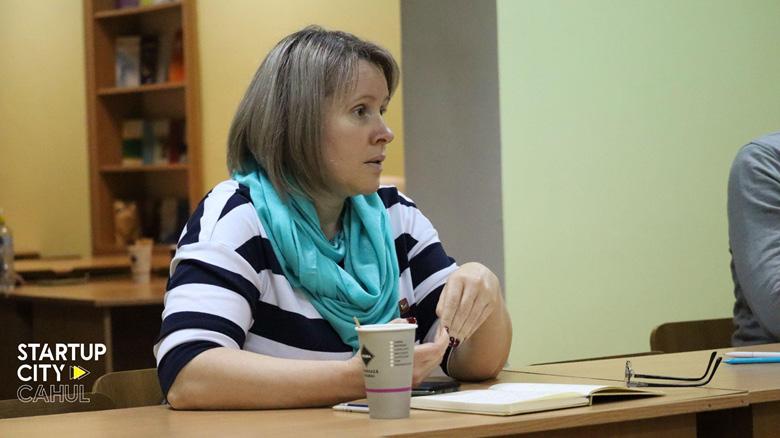
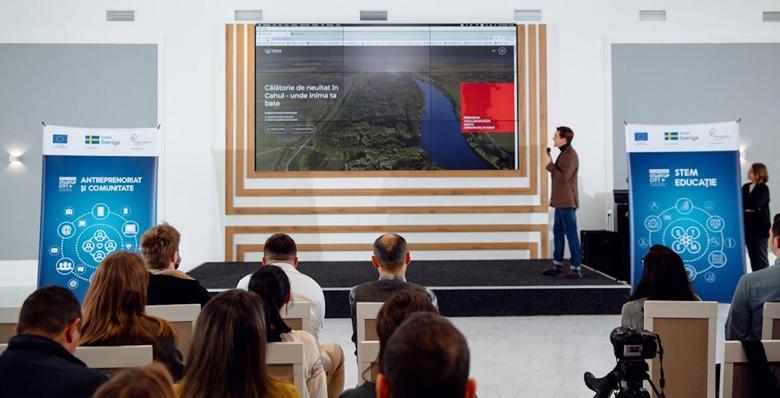
The Cahul region is one of the most visited tourist areas in the Republic of Moldova and offers guests from the country and abroad numerous natural, anthropological, ethnographic and recreational resources. In order to fully highlight the tourism potential of the region, EU4Moldova: Startup City Cahul launched the first Tourism Accelerator in Moldova, in which 15 guesthouse and
hotel owners from Cahul participated. They founded the Cahul.travel website, a joint online platform of guesthouses in the south of the country, which will facilitate the choice of accommodation for tourists. At the same time, the participants of the Tourism Accelerator created a concept of an annual event to promote tourism in the Cahul region.
The south of the Republic of Moldova surprises with attractive places, where the beauty of nature and millennial traditions intertwine to offer visitors an authentic experience. The Museum of Bread from Văleni village, the hundred-year-old oak trees from Doina village, Traian's Wall, the Golden Hills and Petru Rareș's Road from Văleni village, numerous churches, monuments, wineries and recreational areas are just some of the attractions on the map of the Cahul region.
Also here is the Lower Prut scientific reserve, registered in the UNESCO World Network of Biosphere Reserves. Beleu Lake, the largest natural lake in Moldova, is also part of the reserve.
Digital technologies are able to promote these unique destinations on a large scale. Aware of this, the owners of guesthouses and hotels in Cahul make efforts to use innovative tools for the benefit of their own businesses.
As part of the first Tourism Accelerator in Moldova, they took part in thematic workshops, created pages on social networks, had audits and recommendations, external mentoring from experts, as well as professional photo sessions of hotels and pensions.
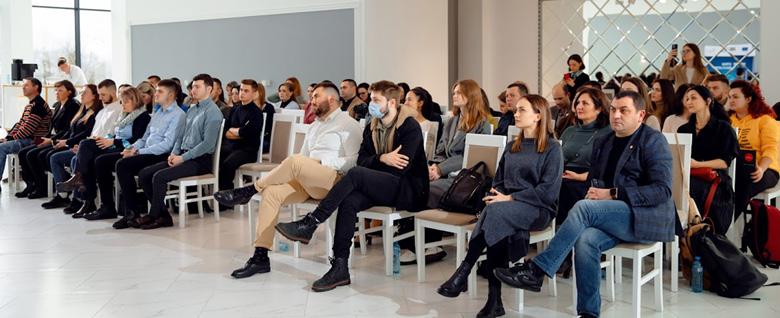
One of the participants in the programme is Ana Capraru, the owner of the "La Cotihana" recreation guesthouse. Located near the town of Cahul, it offers tourists seven gazebos and a wooden house, all decorated in a traditional style.
One of the attractions of the guesthouse is the wooden hot tub, in which the water is heated by means of fireplace, fed with wood through the upper part, providing hot water for guests who want to relax, especially in the cold season of the year.
Due to the accelerator, 13 participants have diversified their offers, four participants have adjusted their prices and six participants are in the process of integrating online payment methods.
"The tourism accelerator put my ideas in order, because I collaborated with tourism and marketing experts and because it united us on one platform. We are not competitors, but partners. We offer tourists the opportunity to choose, according to their preferences, the services they want to benefit from, starting from the type of accommodation, meals, but also the activity they want to practice. Thanks to the accelerator, we as service providers
have become much more competitive and motivated to improve services, exchange experience with other guesthouses and, at the same time, accommodate a large group of tourists", said Neagu Lorina, the founder of the "Potcoava Verde" agricultural pension from Slobozia Mare village.
Along with the owners of guesthouses and hotels, representatives of a balneary sanatorium in the region also participated in the accelerator.
"At first glance, it seems that we have nothing to do with tourism, because our patients come for balneary procedures, but the today's patient becomes the tomorrow's tourist, being interested in beautiful places outside the territory. Thus, thanks to the Tourism Accelerator, we formed potential partners, we benefited
from many informative workshops, tourist visits, workshops with experienced people, who explained to us techniques for attracting visitors, methods of promotion and digital marketing",
said Natalia Munteanu, representative of the "Nufărul Alb" Sanatorium from Cahul.
The official opening of the programme took place on September 7. In the Republic of Moldova, the Tourism Accelerator for the Cahul region is the first of its kind, being a programme that contributes to the development of the region, offering innovative solutions that can help overcome the difficulties in the sector and increase the regional potential.
XY Accelerator V was carried out by XY Partners within EU4Moldova: Startup City Cahul, a project implemented by ATIC and financed by the European Union in partnership with the Embassy of Sweden.

Women’s entrepreneurship and innovation in Eastern partner countries was the focus of the Women4Digital Future virtual networking event on 28 November 2022. EU4Digital ICT Innovation hosted the meeting, which gathered together more than 70 participants from around 60 women-led innovative businesses and Eastern Partnership ecosystem organisations and experts working on women’s entrepreneurship.

Ministerial level representatives, agencies coordinating the development of innovation ecosystems and other players such as innovation, financial support and consultancy organisations that empower start-up ecosystems, ICT business associations and women’s support organisations joined the call. The discussion explored existing gaps in empowerment as well as available support opportunities within the EU.
EU4Digital Facility Team Leader Mr. Artūras Piliponis opened the event and introduced the EU4Digital programme. Mr. Thibault Charlet, Programme Manager on Digital and Economic Development at DG NEAR (European Commission) then gave the keynote speech, presenting the EU priorities and introducing some of the EUfunded programmes that address women’s entrepreneurship, financial inclusion and digital skills, and which are accessible to organisations in the Eastern Partnership region. For example, WEgate supports women entrepreneurs in starting and building up their businesses; the Womenat platform is the European network for professional women in the digital economy; and the European Bank for Reconstruction and Development (EBRD) Women in Business programme provides financing
“The smart thing to do”
and business advice. His key message was that gender equality has a strong positive impact on GDP and supporting women’s economic empowerment, financial inclusion and innovation is vital for economic growth, prosperity, and competitiveness.
Participants were then introduced to Women Go Tech – a successful mentorship programme started in Lithuania, which encourages women to choose careers in ICT and engineering.
The Women Go Tech experience inspired the EU4Digital Facility to develop its guidebook on Setting up mentorship programmes to bridge the gender gap in ICT in the Eastern partner countries.
The non-profit, non-political professional organisation Women Business Angels (WBA) featured in the second part of the event. This enables women and men to become ‘angel investors’ (individuals who provide capital for a business or start-up) and internationally competitive entrepreneurs.
WINGATE is a project implemented jointly with WBA. It offers an innovative online knowledge centre for women-owned enterprises, providing a unique opportunity for angel investments, including in some of the Eastern partner countries such as Moldova.
The co-CEO of Female Founders presented this 65,000-strong community of investors, operators, business professionals and entrepreneurial leaders, as well as a variety of opportunities for female-led start-ups.
The thematic presentations can be accessed at the following links:
» European Commission
» Women Go Tech
» Women Business Angels
» Female Founders
For more information, please access: https://eufordigital.eu/awareness-to-actiondeveloping-womens-entrepreneurship-inthe-eastern-partnership/
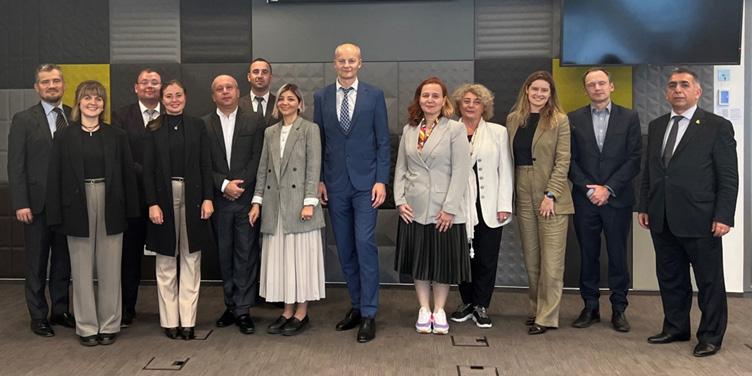
Learning, networking and cooperation are key to the success of the EU4Digital Initiative’s Telecom Rules activities. This was agreed when recent achievements and future goals in the Telecom Rules thematic area were presented to the Eastern Partnership Electronic Communications Regulators Network (EaPeReg) in Bucharest, Romania, on 13 October 2022. This was the first Telecom Rules meeting in the context of the new EU4Digital Facility Phase II.
Around 25 experts from the EU4Digital Telecom Rules team and the EaPeReg, Eastern partner countries (Armenia, Azerbaijan, Georgia and Moldova) and EU Member States (Czech Republic, Ireland Lithuania, Latvia and Romania) joined the event in person or online. They reviewed the Telecom Rules achievements of the EU4Digital Facility Phase I project and plans for Phase II. Reflection on Phase I activities revealed the importance of learning from best practices, building a strong internal network and cooperating with national stakeholders. Given the ongoing conflict in Ukraine, participants acknowledged that Phase II activities will require flexibility and an ad-hoc approach.
Telecom Rules activities in EU4Digital Facility Phase II will continue to focus on international
roaming, broadband and spectrum topics. They will build upon the groundwork laid in Phase I, namely, monitoring and supporting the implementation of the Regional Roaming Agreement (RRA) and Regional Spectrum Agreement (RSA), drafting roaming agreements between Eastern partner countries and EU Member States, and preparing a broadband market analysis, among others.
During the event, the Eastern partner countries’ representatives confirmed their willingness to sign RRA and RSA agreements. The RSA agreement signing is potentially planned to take place in December; more details about the RRA will be confirmed subsequently. Signing of the agreements will enable EU4Digital to support and monitor the implementation of the agreements throughout the duration of Phase II.
Since 2019, the European Union’s EU4Digital Initiative has supported efforts to achieve a secure and sustainable digital and telecommunications infrastructure across the countries in the Eastern Partnership. The EU4Digital Facility is the central programme of the EU4Digital Initiative. Phase II of the EU4Digital Facility officially kicked off on 25 October 2022 and is planned to continue into 2025.
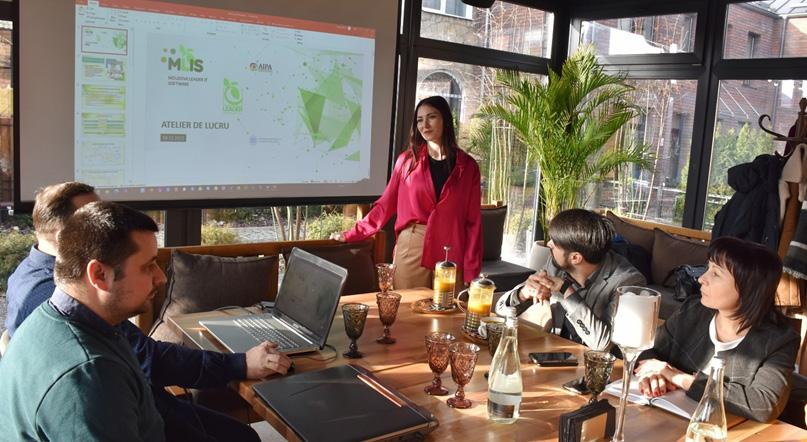
On December 19, 2022, a working group on the development of the Moldova LEADER IT Soft (MLIS) participated in a workshop facilitated by the contracted IT company, to discuss the elaboration, testing and launching of the software that will digitalise the LEADER approach in Moldova. During the workshop, the working group consisting of representatives of the Ministry of Agriculture and Food Industry (MAFI), the Agency for Intervention and Payments in Agriculture (AIPA), the National LEADER Network (NLN) and members of 5 Local Action Groups (LAGs), alongside Solidarity Fund PL in Moldova have analysed the general prototype of the MLIS platform
and addressed the functionality of the software at different stages of the LEADER Program implementation. Following the workshop and the validation of the action plan, the IT company will develop and test the functionalities of the software with key members of the MLIS working group to ensure proper operation of the system. At the same time, the MLIS working group will continue to consult the software concept with LAGs to inform them about the system functionalities and how it will facilitate the application and evaluation process within the LEADER Program, while also explaining how the system will allow for Local Development Strategies’ (LDS) completion monitoring.
The Moldova LEADER IT Soft represents an IT solution that will facilitate the operational synergy between all actors involved in the LEADER Program. Once developed, the software will enter in the property of MAFI and will be administered by AIPA. The development of the software is financed within the “EU4Moldova: Local Communities” programme, while its’ maintenance will be ensured with money from the state budget allocated within the Medium-Term Expenditure Framework 2023-2024 and other sources allowed by the national legislation. The MLIS platform will be launched in autumn 2023, with a pilot phase scheduled for June-August 2023.
The MLIS platform is supported within the “EU4Moldova: Local Communities” programme, financed by the European Union, the German Federal Ministry for Economic Cooperation and Development (BMZ), the Austrian Development Cooperation (ADC) and the Ministry of Foreign Affairs of the Republic of Poland –Polish aid; and jointly implemented by the Deutsche Gesellschaft für Internationale Zusammenarbeit (GIZ) GmbH, the Austrian Development Agency (ADA) and the Solidarity Fund PL (SFPL) in Moldova.
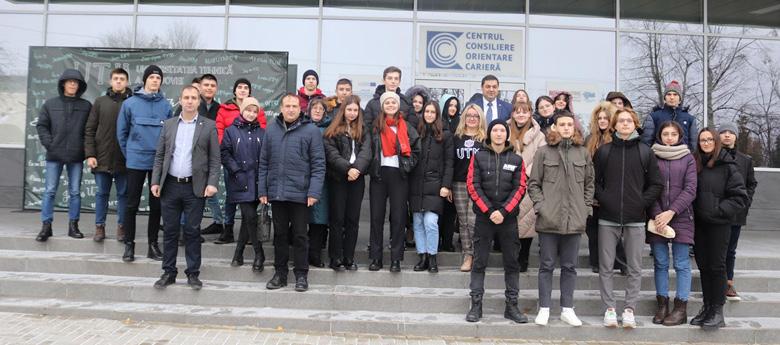
Digital labs, coworking spaces, robots and innovative programmes. These are just some of the attractions that 33 students from the south of the country had the opportunity to discover in Chișinău. Accompanied by
teachers, they went on a study visit to Tekwill and the Technical University of Moldova, where they explored the most daring projects and the newest technologies in the country.
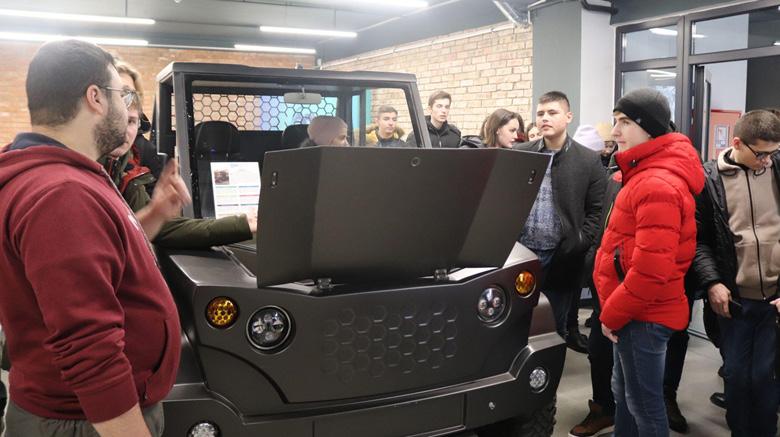
The 33 young people of high school grades visited the TUM laboratories, the Youth Maker Club spaces, Fab Lab Chișinău, as well as Tekwill Academy Kids, which is the most equipped robotics and electronics laboratory in the Republic of Moldova, but also the place where more than 30,000 mechanisms, robots, design works and functional programmes were created.
students about the opportunities offered by the IT field, but also about the trends on the labour market.
After visiting Tekwill, the digital laboratories, as well as the Faculty of Computers, Informatics and Microelectronics of TUM, which today has more than 2,600 students, the young people told us that the visit inspired them a lot, and some of them became even more interested in choosing a career in IT. "We were pleasantly surprised by the opportunities that the fields of the future offer us. We are extremely satisfied and happy with the spent day. We can say with all our hearts that IT deserves our attention",
says Simona Andreea Russu, a student of the "Mihai Eminescu" Theoretical High School in Cahul.
At the same time, the representatives of the Moldovan Association of ICT Companies (ATIC), as well as the teachers from the Technical University of Moldova told the
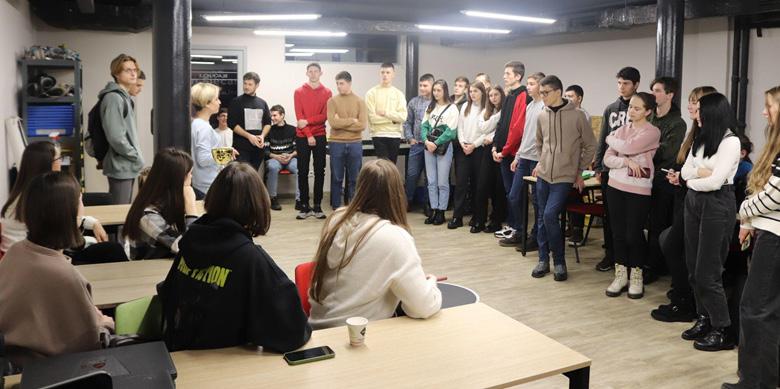
"I would like to thank the EU4Moldova: Startup City Cahul project for the opportunity to visit Tekwill and TUM. Together with my colleagues, I spent a valuable day and found out interesting and useful things, increasing our interest in choosing a career related to the field of informational technologies",
says Xenia Scripnic, student of the "Dimitrie Cantemir" Theoretical High School in Cahul.
The study visit was organised within the EU4Moldova: Startup City Cahul, a project implemented by ATIC and financed by the EU in partnership with the Embassy of Sweden.
The EU4Moldova: Startup City Cahul and "Tekwill in Every School" projects presented the "Digital School" concept, which is to be implemented in 25 educational institutions in the Republic of Moldova, out of which six are from the Southern region, being selected

The "Digital School" initiative comes to support the vision of digitisation of education in the country. The concept involves guiding institutions in the process of transformation and digitisation, during one academic year.
Leova, Cantemir, Taraclia, Cahul, Vulcănești, Briceni, Fălești, Florești, Călărași, Hîncești, Ialoveni, from the Chișinău and Bălți municipalities, as well as from ATU Găgăuzia.
During their digital transformation, they will implement Microsoft Office 365 for Education, which will enable teachers to communicate, collaborate and evaluate student projects more effectively.
At the same time, the licensed Windows software will be installed on all computing equipment in the schools. The institutions will be connected to the high-speed internet network assured by local providers.
Schools will implement the OECD Learning
Compass model during lessons, which involves competency-based learning. Also, the institutions will be able to offer interactivity to the study of subjects such as chemistry, physics, biology, geography, by integrating the 3D models from the Corinth bookstore.
Among the institutions that will go through this process is the Theoretical High School, D. Cantemir" from the Cantemir town, where the first transformations are already being felt. The institution was equipped with a Digital Laboratory, where 95 students can study graphic design, algorithm programming in C/C++, web design and development, entrepreneurship.
Ten computers and ten laptops, a projector with an interactive whiteboard and a highperformance printer have already been installed in the laboratory.
"The digital development of the institution involves the transformation of students into curriculum co-designers, the formation of digital competence of students, teachers and a strong, innovative, competitive and secure ICT environment. The implementation of the strategy will form a digitally developed, innovative and inclusive educational community, a collaborative environment that encourages the innovative work of all people and ensures sustainable development in all fields",
said Elena Macaria, director of the Theoretical High School "D. Cantemir",
The 25 schools will be helped to develop STEAM projects, and teachers will be assisted in the integration of the "Flipped Classroom" methodology. An important element is also the fact that the students of the institutions will be able to study optional subjects related to the professions of the future, offered by the "Tekwill in Every School" programme.
"This year, six other schools in the Southern region will be able to open a Digital Laboratory on their premises. These innovative learning spaces are perfect for those students who do not own a digital device at home, as they provide access to equal opportunities to develop and advance digital skills. I am pleased to know that six schools from the EU4Moldova: Startup City Cahul project are also part of the Digital School initiative and thus on the way to developing and adopting a digital and pedagogical transformation strategy", said Boris Filipov, Project Manager, Delegation of the European Union to the Republic of Moldova.

For one year, the institutions will be assisted by educational experts, both local and international, with the aim of developing the digital transformation strategy, improving the infrastructure, the computing technique, as well as the communication and collaboration processes between students, teachers and parents.
“Sweden is a big supporter of STEM education because it has had a big impact on our economy and has met the strong demand for a skilled STEM workforce in
the country. I am glad to see that STEM education is also supported by the "Digital School" initiative in Moldova", said Katarina Fried, Ambassador of Sweden to the Republic of Moldova.
The "Digital School" initiative is developed by EU4Moldova: Startup City Cahul and "Tekwill in Every School" programme. EU4Moldova: Startup City Cahul is a project implemented by ATIC and financed by European Union in partnership with the Embassy of Sweden.
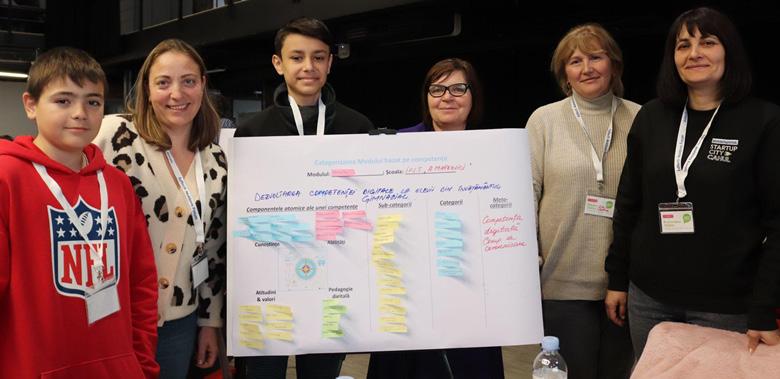
Companies, organisations and public institutions in the south of the country can benefit from grants worth up to 780 thousand lei, offered for business digitisation. The Digital Impact Programme 2022-2023 will be
implemented by EU4Moldova: Startup City Cahul and has a total budget of 7.8 million lei, being financed by the European Union through Sweden.
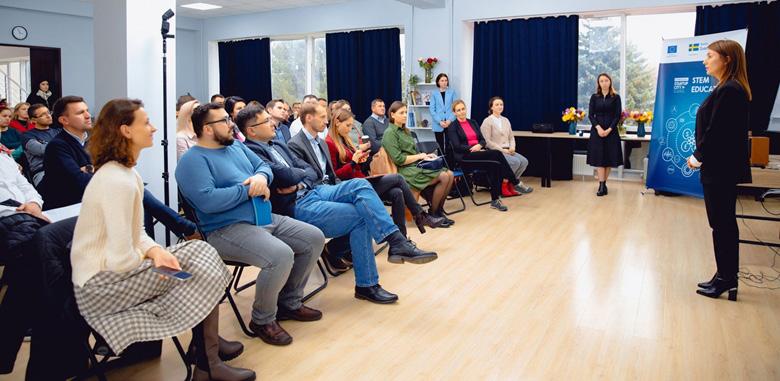
The aim of the programme is to accelerate digital transformation in the public and private sectors by testing and scaling up innovative products, services or solutions in the region.
Studies show that digital transformation has a positive effect on business. This impact on performance and quality provides additional value to services so that:
» small businesses report an increase in consumers due to digital tools,
» there is an increase in income,
» these enterprises end up creating more jobs, and
» small businesses using digital tools report that they have helped drive innovation.
Depending on the quality of the project, the amount requested and the relevance for the Cahul region, grants of up to 780 thousand lei will be awarded, the amounts being nonrefundable. They can constitute a maximum of 80% of the total budget of the project, and a co-financing of at least 20% of the total budget is to be provided by the applicant.
Entities that can access a grant are those in the following fields:
1. Tourism: Sites or programmes that target tourists and aim to increase the visibility of the Cahul region from the touristic point of view;
2. Agriculture: digital solutions with impact on the agricultural sector and potential for growth. Sub-sectors: viticulture, traditional agriculture, etc.;
EU grants for digitisation. Businesses in the Cahul region will benefit from funding totalling 7.8 million lei
3. Logistics: digitisation of logistics services, positioning the Cahul region as a Logistics Hub of the southern region of the country;
4. Governance: digitization of community services;
5. Commerce: solutions to provide financial inclusion and boost e-commerce in the region.
Other areas with strong evidence of project impact are also applicable (e.g., digital and financial literacy).
Eligible applicants are private entities, which carry out their entrepreneurial activity in the Cahul region (Cahul, Leova, Taraclia, Cantemir districts) or groups of co-applicants, which may include public institutions, organisations, associations or other legal entities.
Digital Impact is a programme developed by Startup Moldova as part of the EU4Moldova: Startup City Cahul project, financed by the European Union in partnership with Sweden and implemented by ATIC.
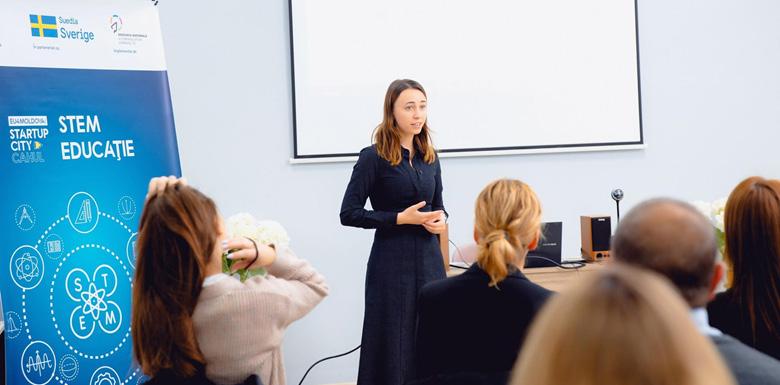
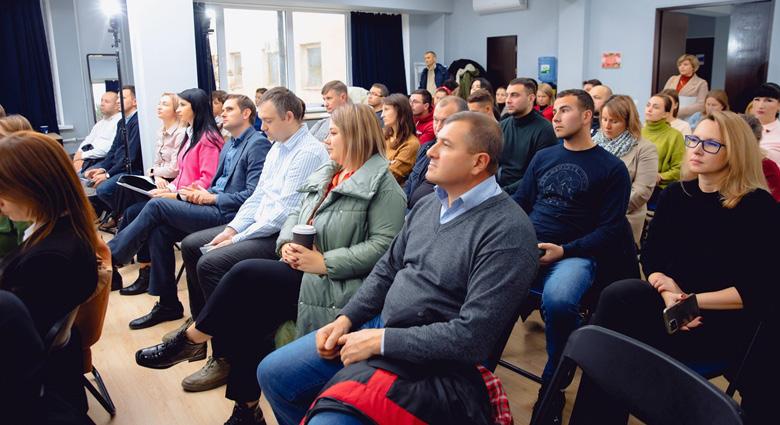
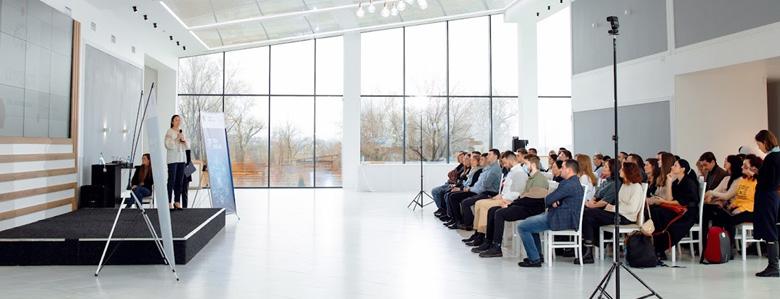
After three months of intense work, the finalists of the XY Accelerator V programme are just one step away from seeing their dream come true. The programme launched by EU4Moldova: Startup City Cahul has ended, and the ten teams that remained in the competition are now ready to present their business ideas to investors to attract
Seventeen small teams with big ideas enrolled in the XY Accelerator V programme and went through several stages where they gained valuable experience as well as practical advice on how to develop a successful startup.

At the moment, ten teams are active in the programme, of which three are from the Cahul region. Two teams are at the ideation stage, three have a minimum viable product and five teams have managed to record sales.
The participants attended entrepreneurship courses, workshops approaching product development, effective marketing, sales and negotiations, and customer support, had office hours with mentors such as Traian Chivriga, Olga Melniciuc and Alexandru Lebedev, thematic workshops, bootcamps, external mentoring with access to over 30
Among the participants of the accelerator are several girls and women, motivated to succeed in the business world. One of them is Mariana Pascal, English teacher and entrepreneur from Cahul. She decided to capitalize on her experience in both fields and set up the Center for Teaching Business English Courses for Entrepreneurs, CELT Moldova, a startup that she hopes to develop thanks to the XY Accelerator V programme.
A participant in the programme is Maria Cerkas from Cahul, the founder of the TWINK platform, which involves connecting large companies with freelancers by
concluding contracts, instant payments, tax consultations and in case of conflictsmediation. All to give freelancers insurance and a guarantee in case the client goes bankrupt.
"The accelerator gave us the opportunity to invent an interesting idea. At the accelerator I learned many things: setting the strategy, calculating the budget, etc. The team and mentors motivated us a lot. Thanks to them, we accelerated the implementation of the idea", says Maria Cerkas.
In the previous editions of XY Accelerator V, out of 96 accelerated startups, 15 teams obtained investments worth $393,000, worked with more than 80 mentors and gained access to an extensive community of local experts and investors.
XY Accelerator V was accomplished by XY Partners within EU4Moldova: Startup City Cahul, a project implemented by ATIC and financed by the European Union in partnership with the Embassy of Sweden.
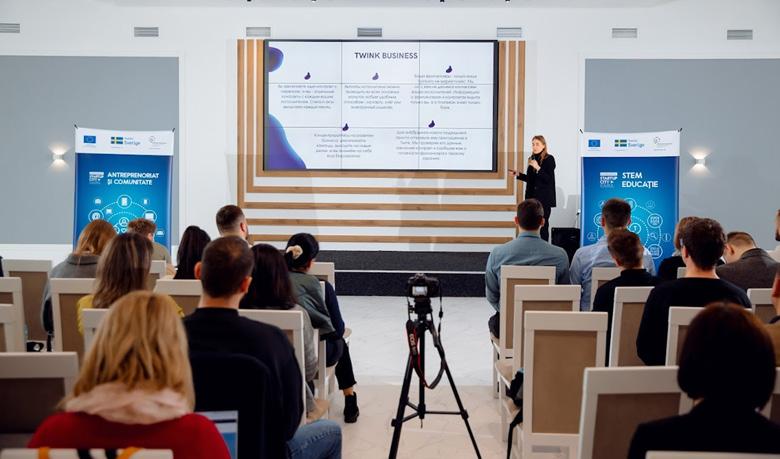
This newsletter is produced within the framework of the project “Visibility of EU and EU assistance in 2022 in the Republic of Moldova”. The project is funded by the European Union and implemented by the Particip GmbH.
Contact data:
The European Union Delegation to the Republic of Moldova: Delegation-Moldova@eeas.europa.eu
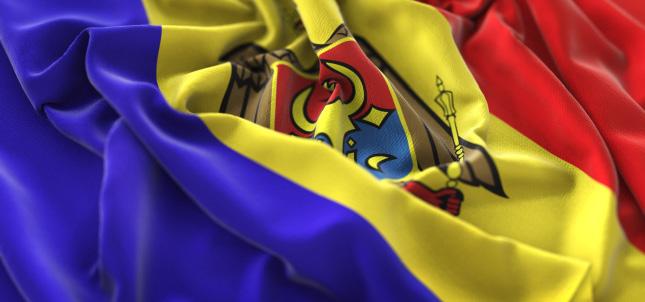
Editorial team:
Svetlana Japalau, Team Leader, Particip GmbH svetlana.japalau@particip.com
Natalia Ionel, Key Expert, Particip GmbH natalia.ionel@particip.com
The content of this publication is the exclusive responsibility of Particip GmbH and the editorial team, and it does not in any way reflect the official opinion of the European Union.
